Review: Memorable performances highlight Colburn SongFest program
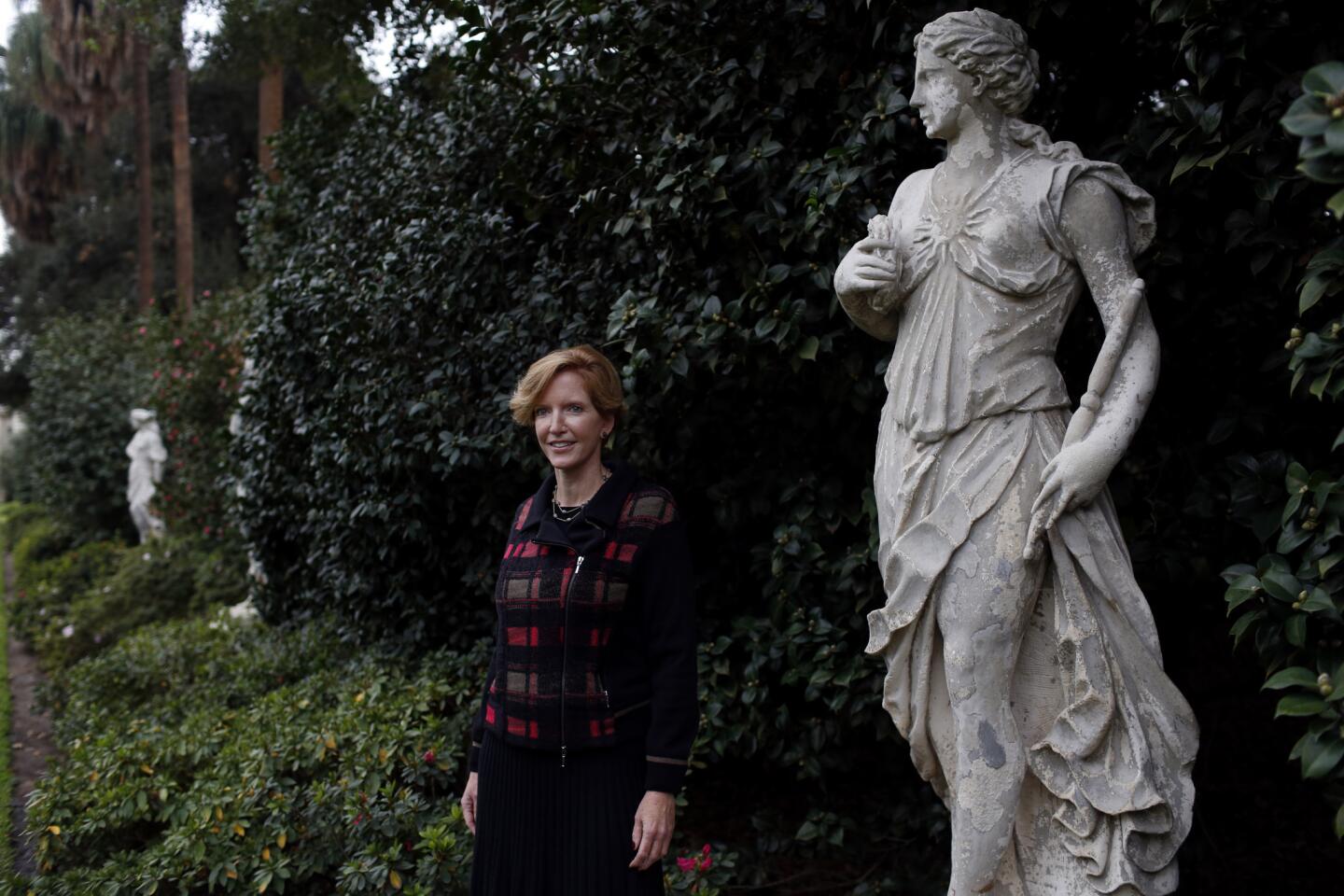
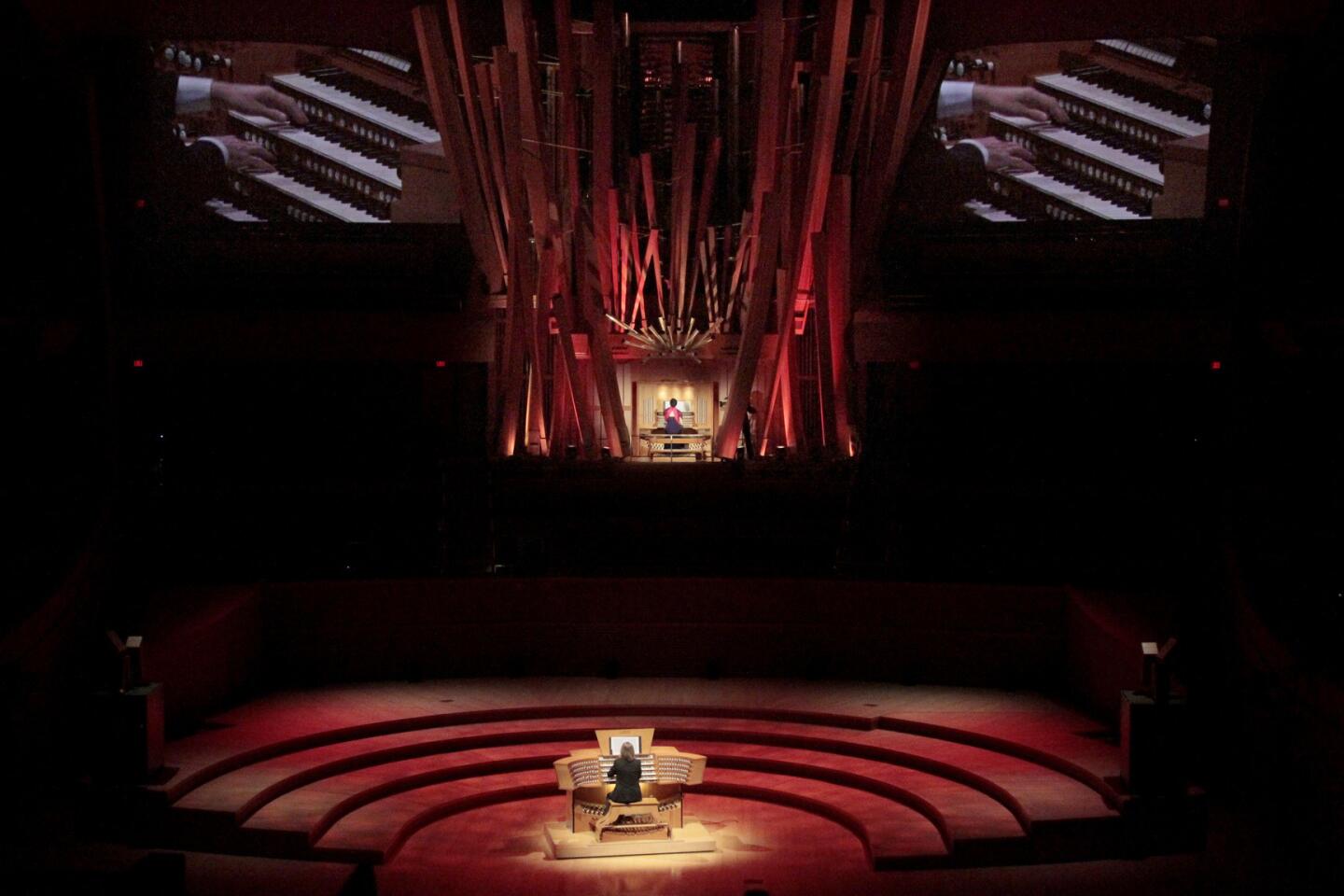
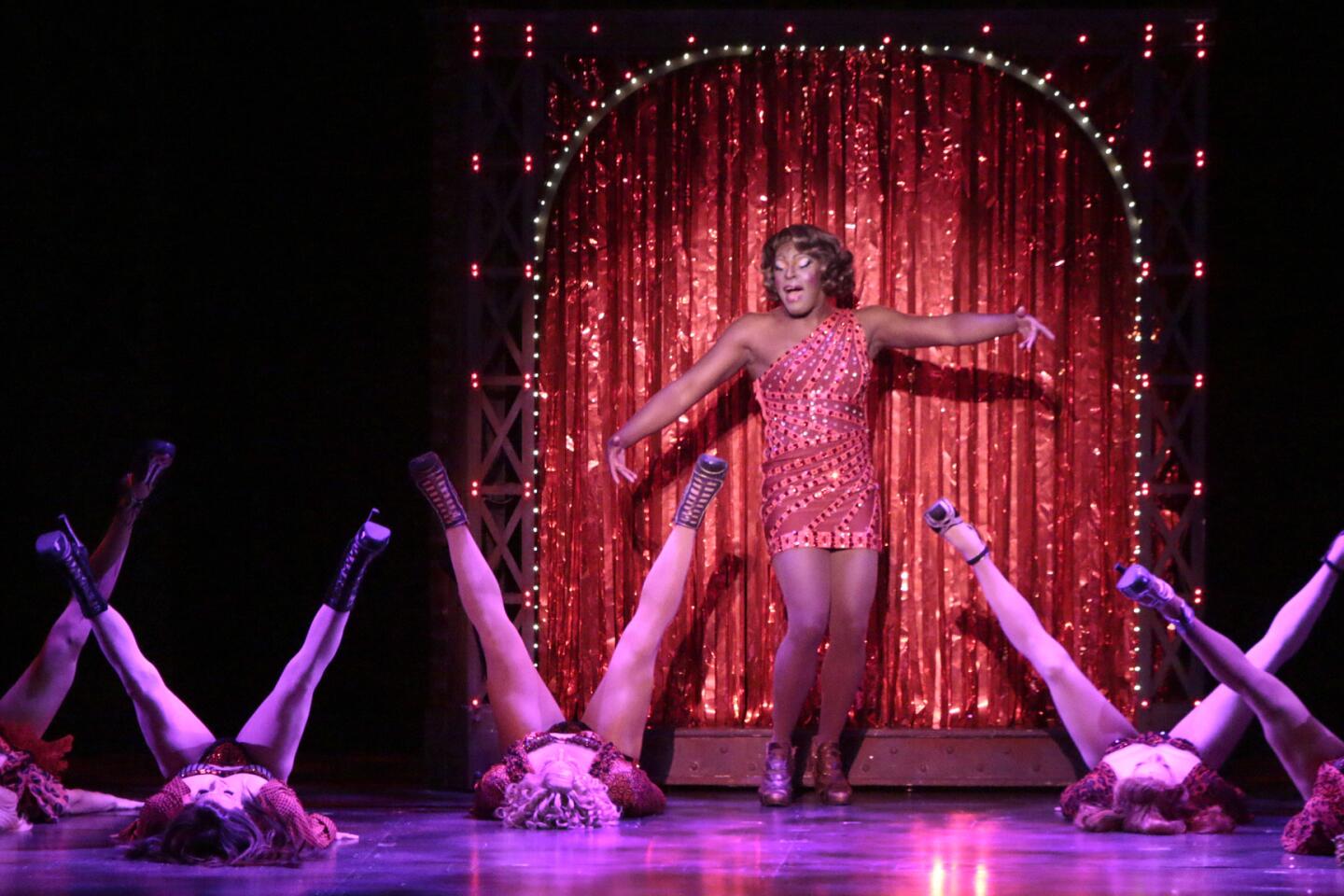
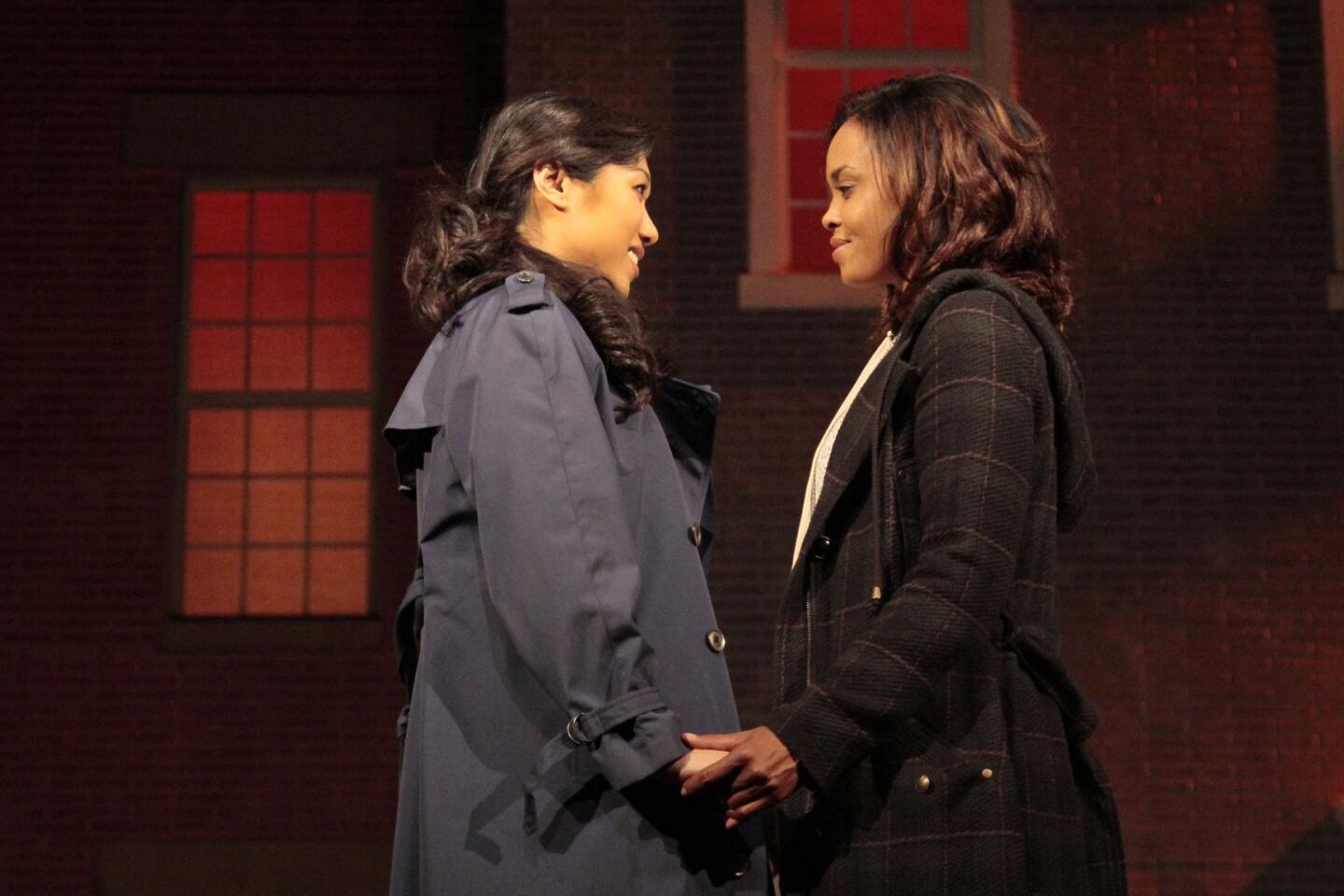

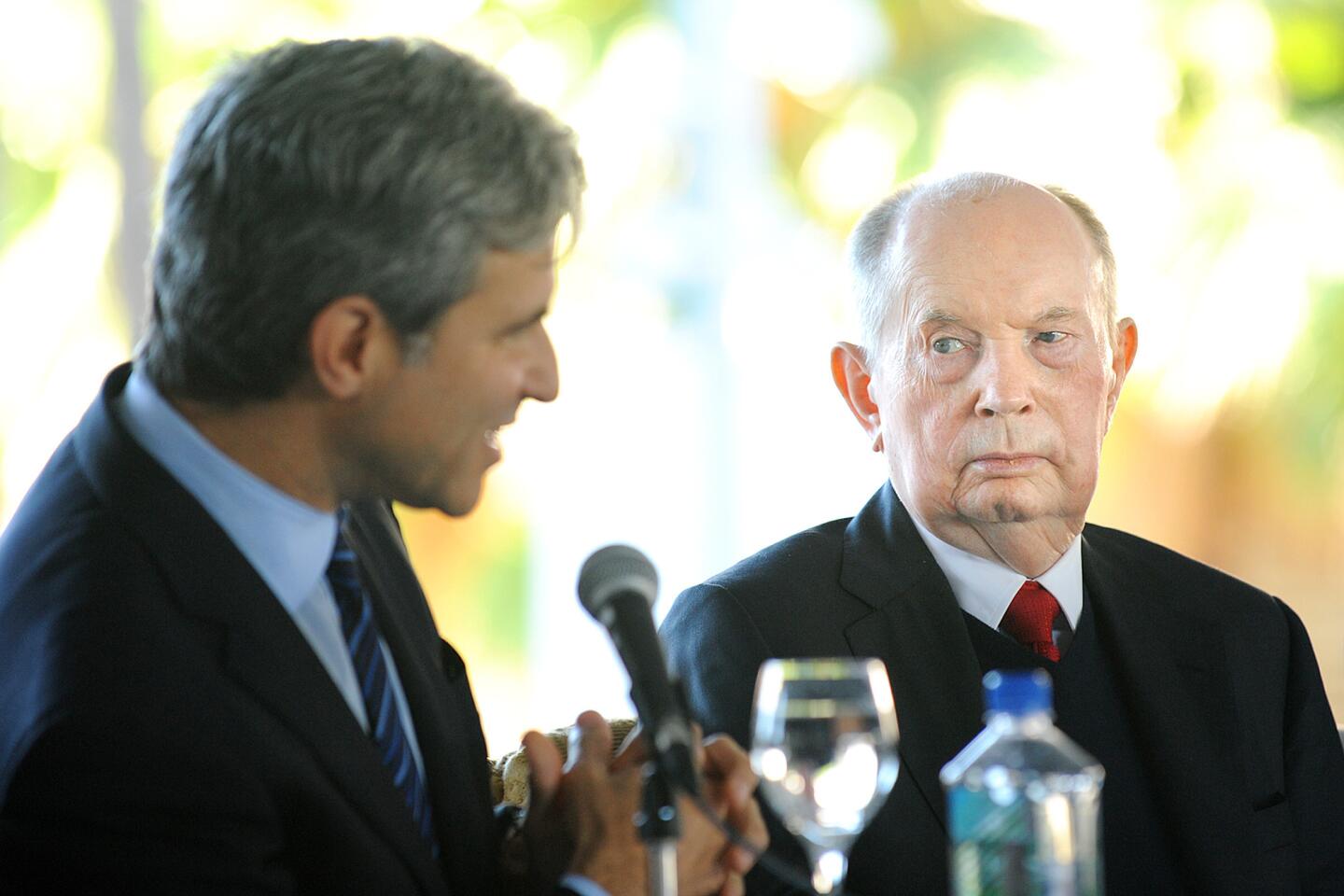

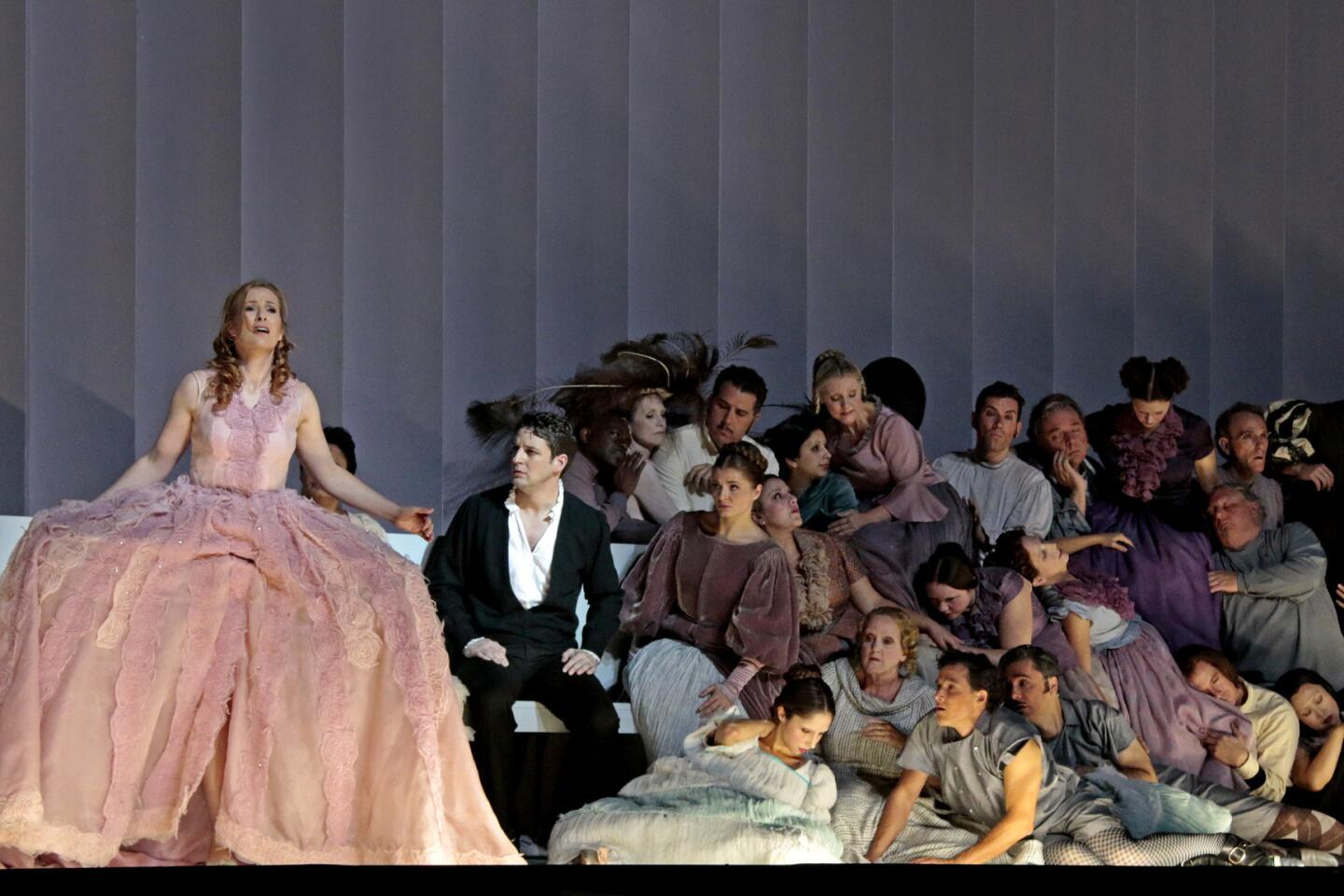
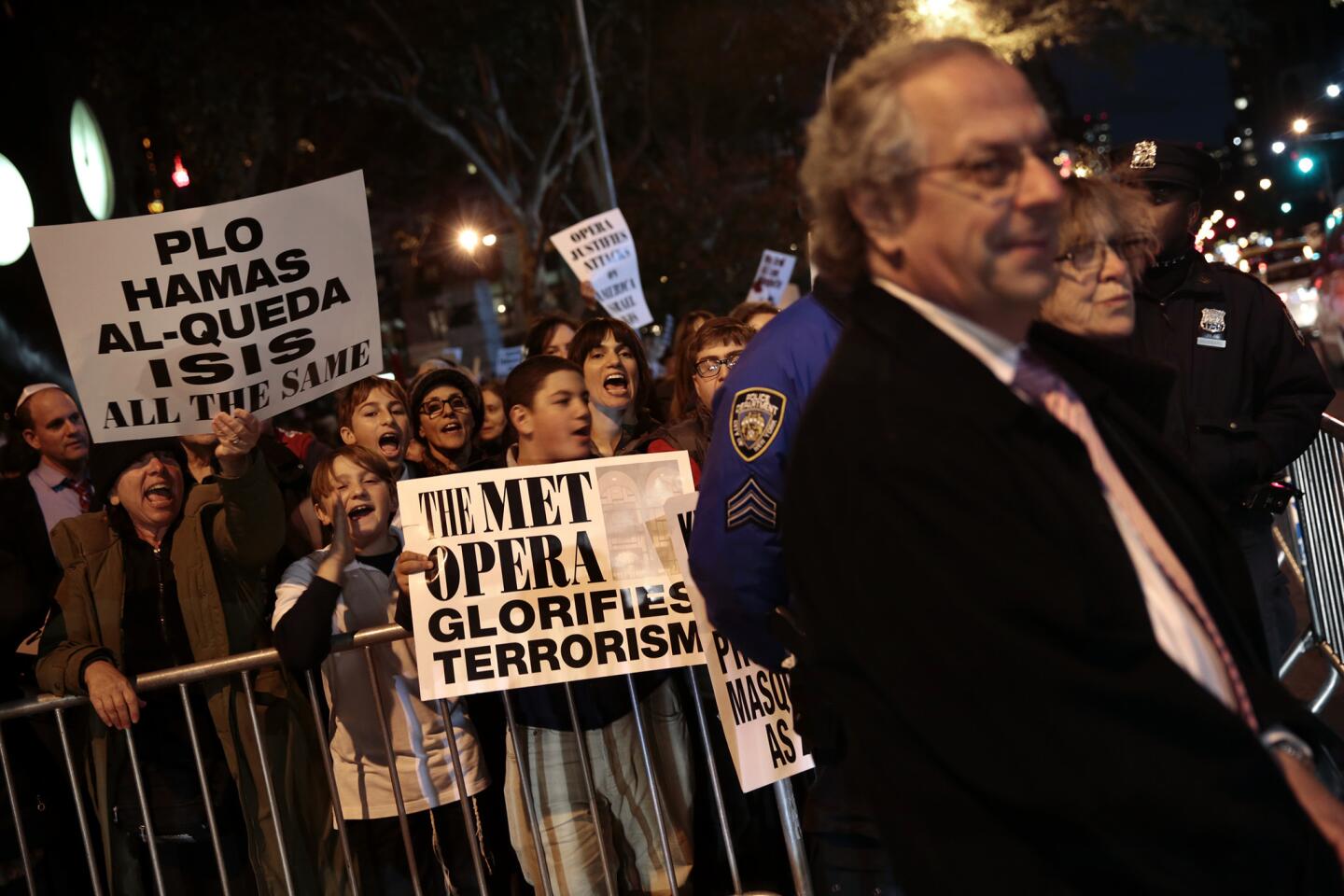


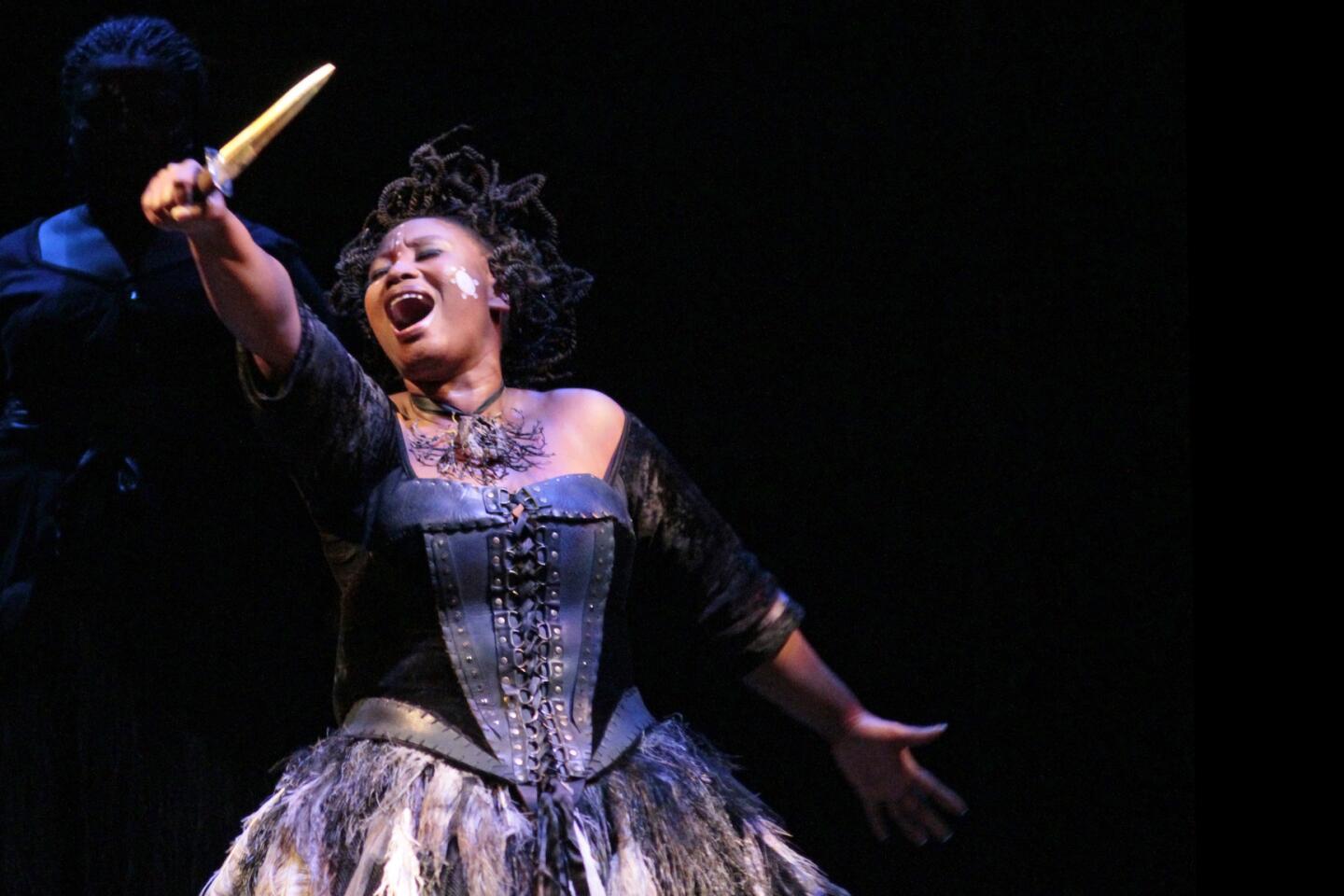
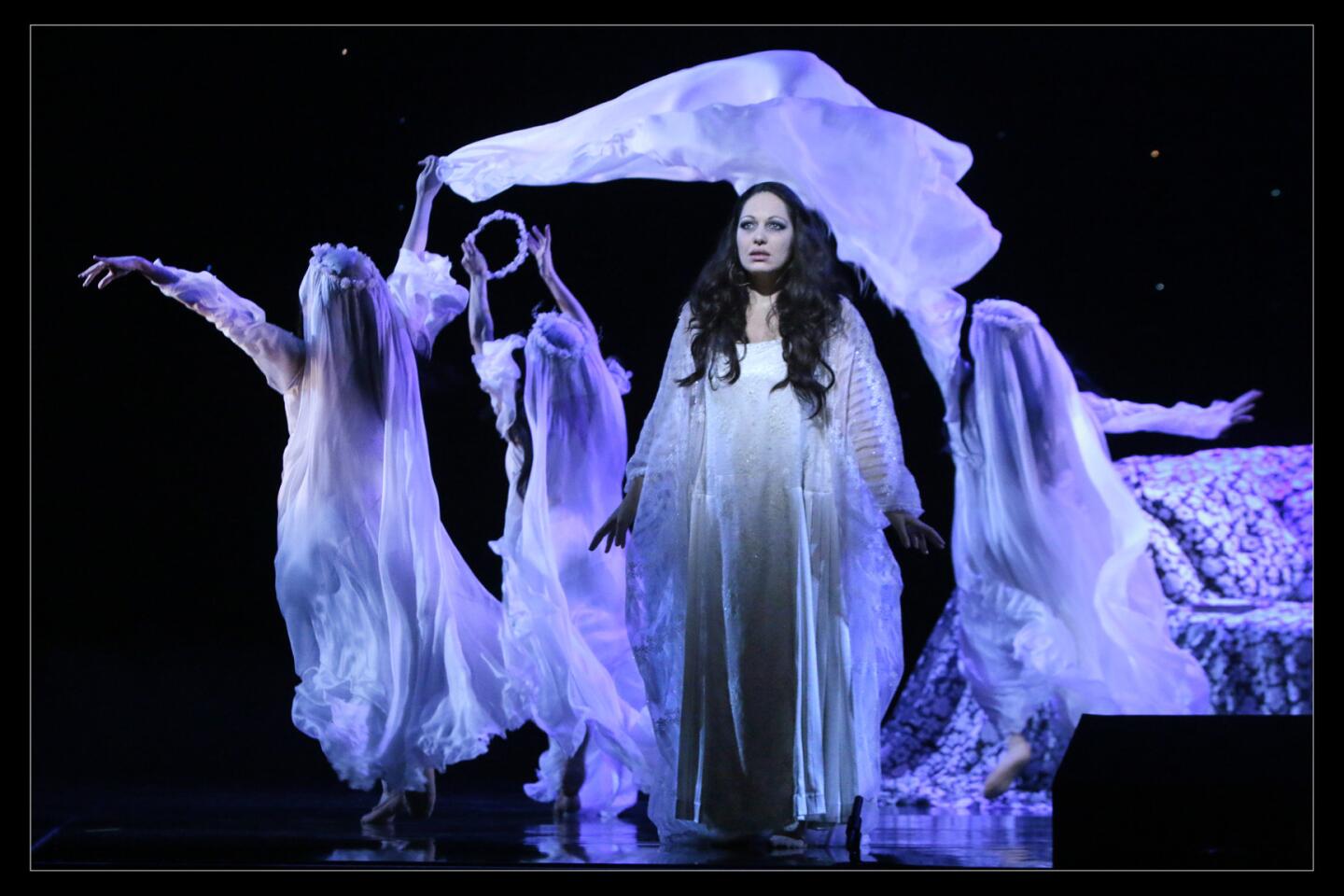
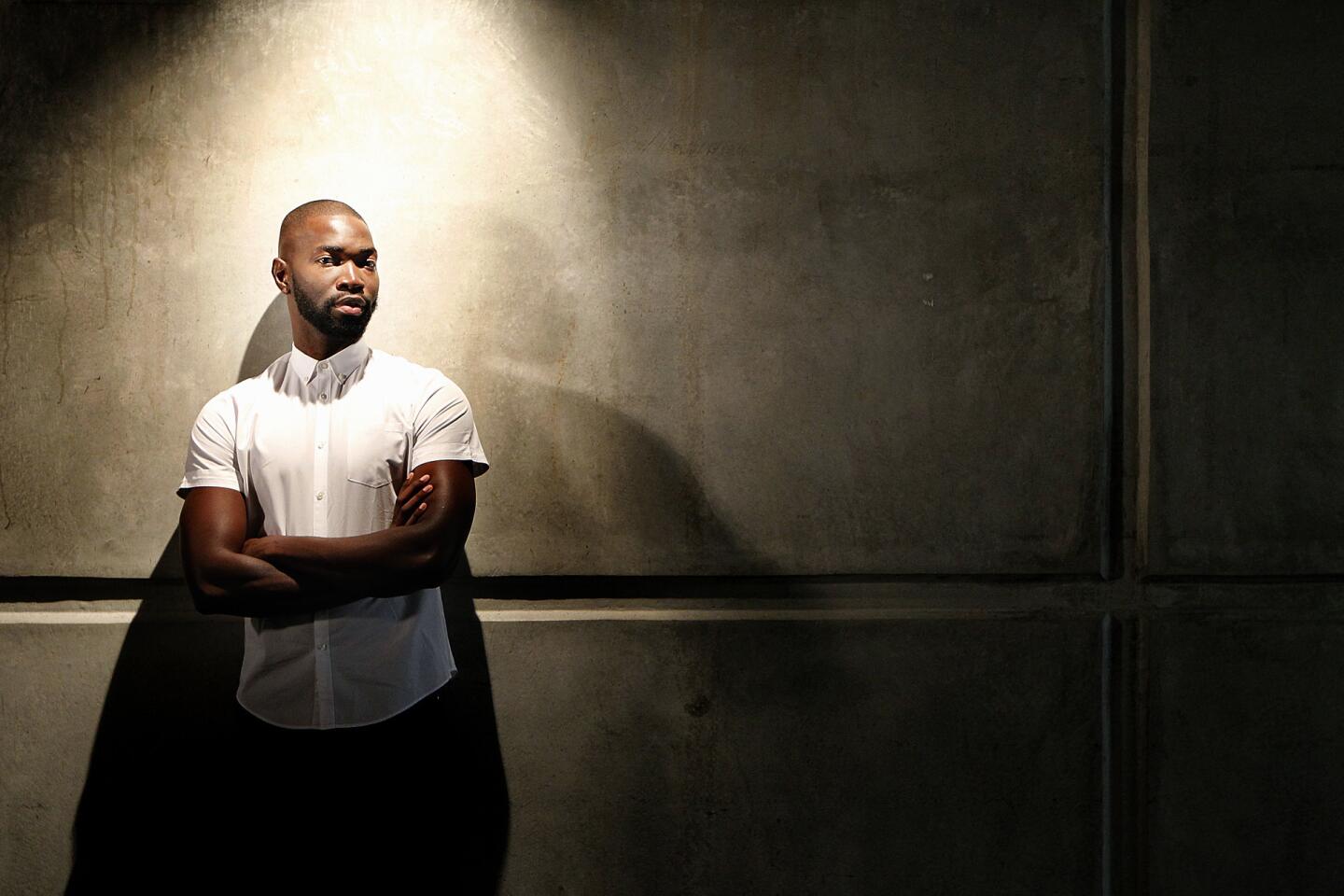
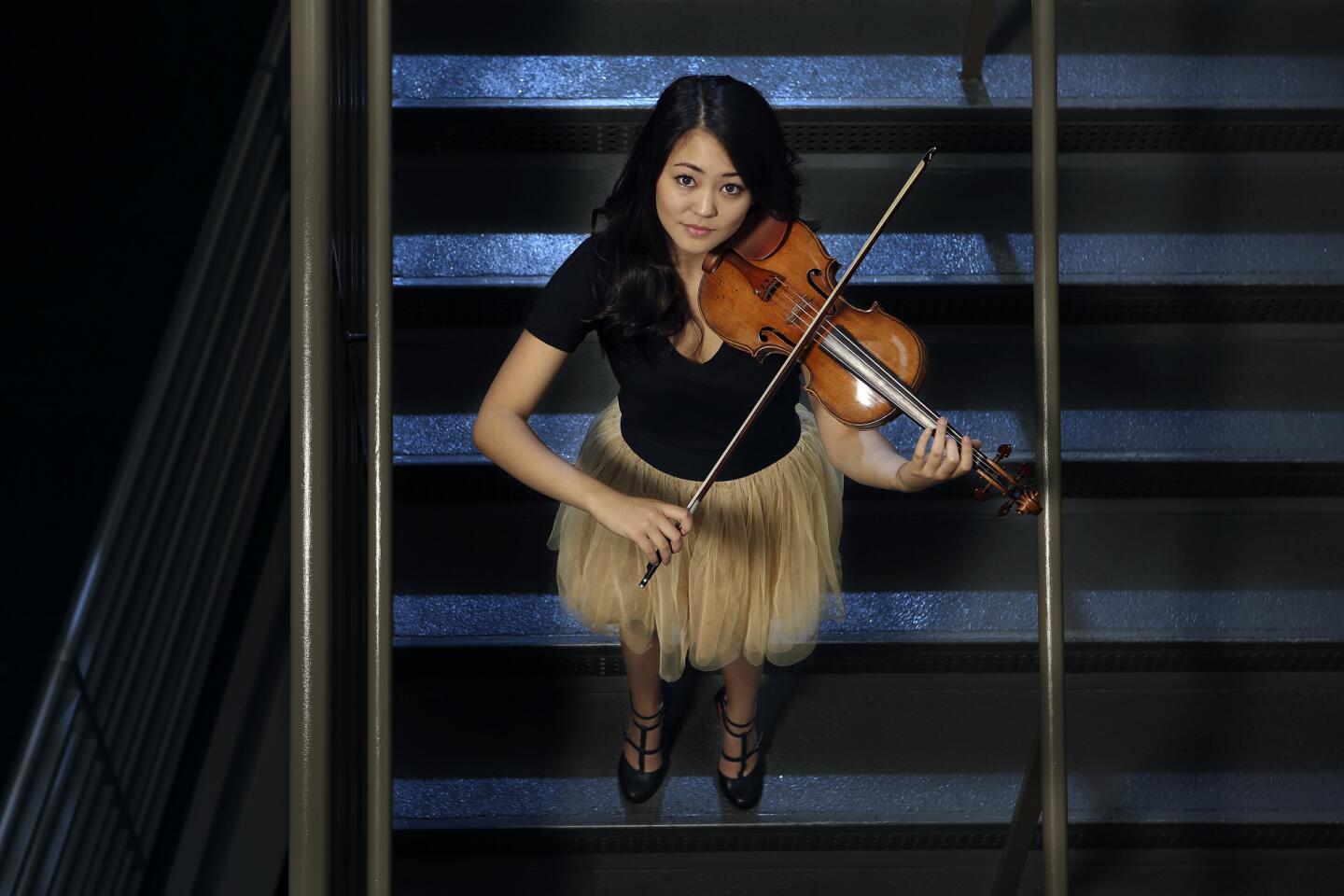
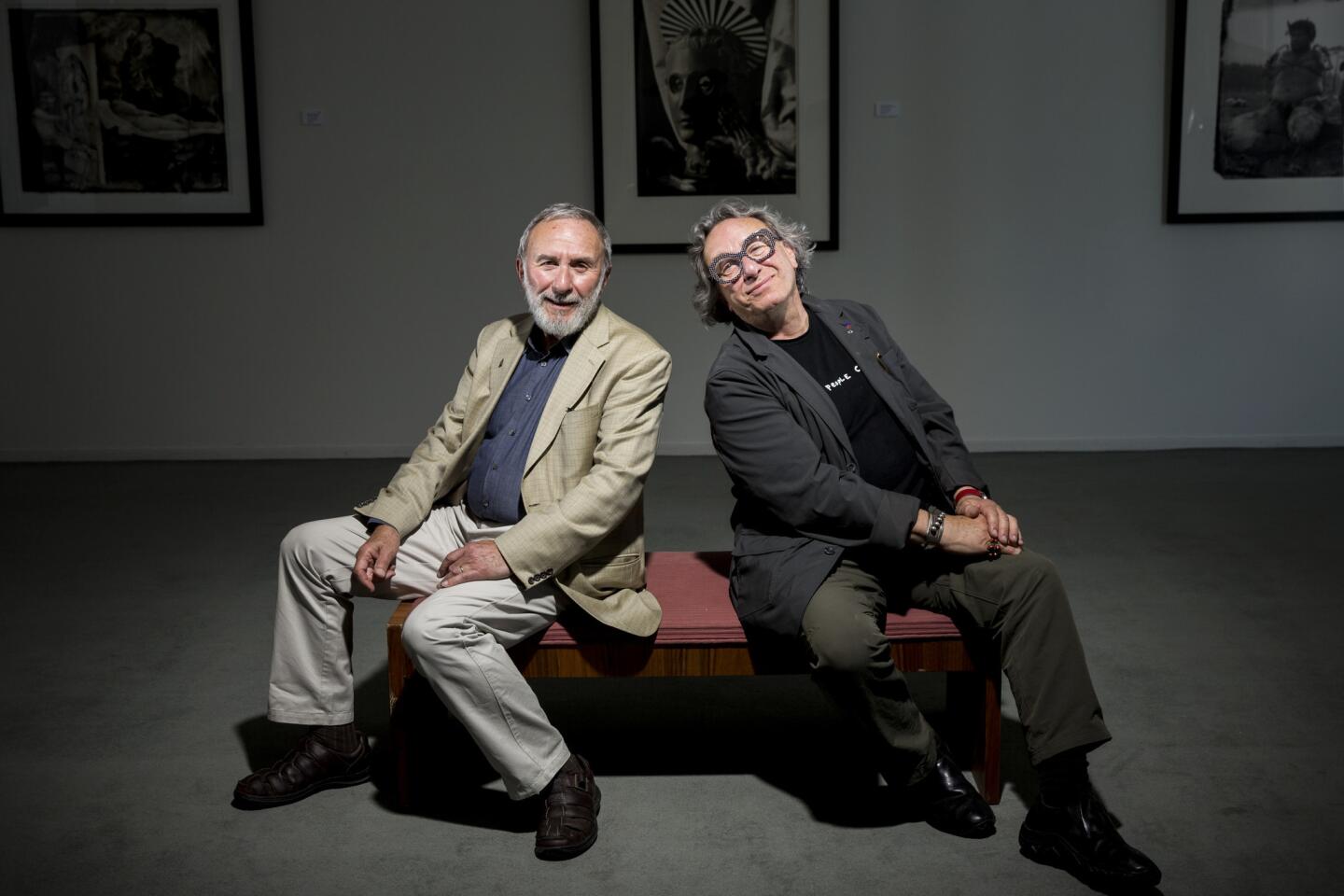
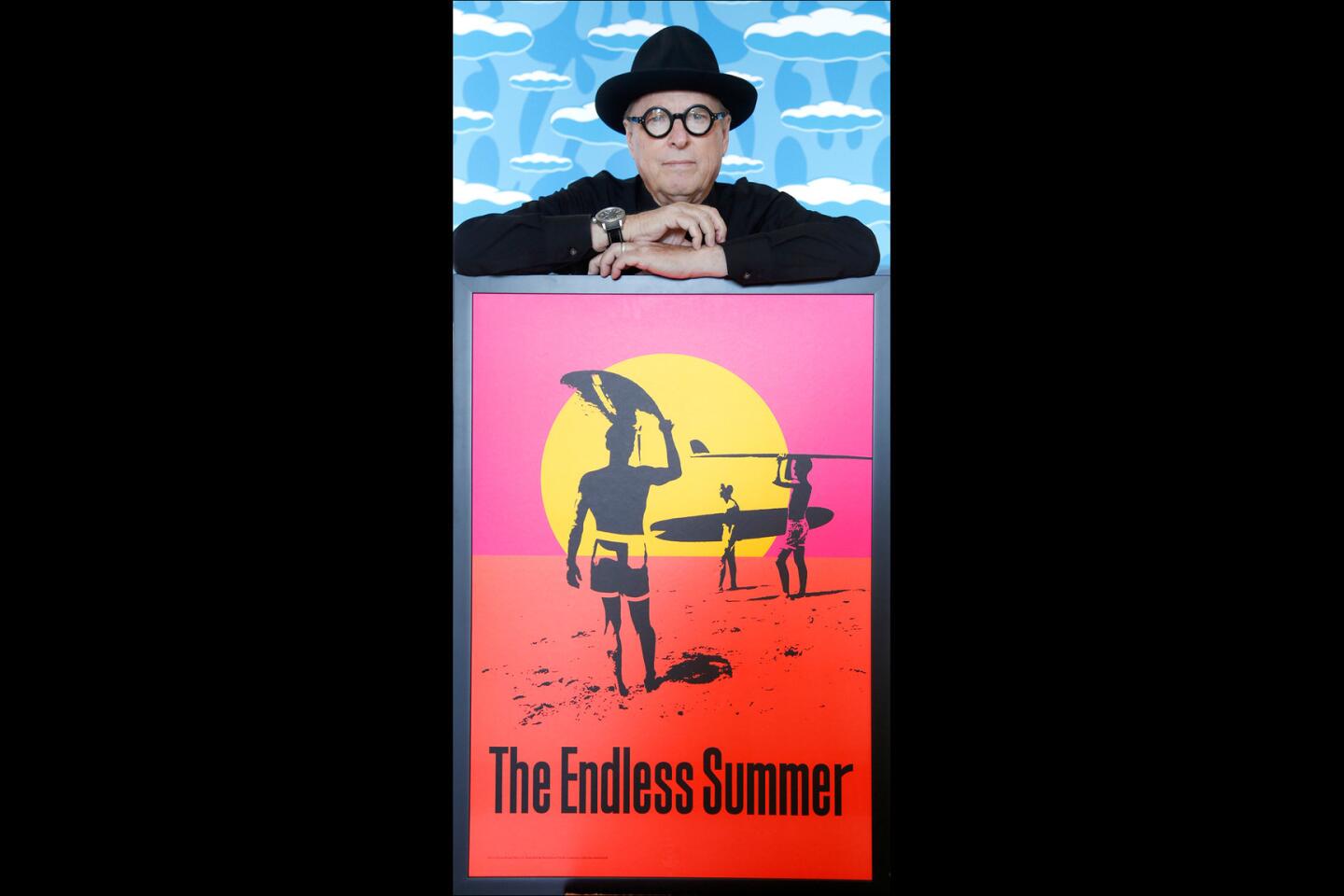
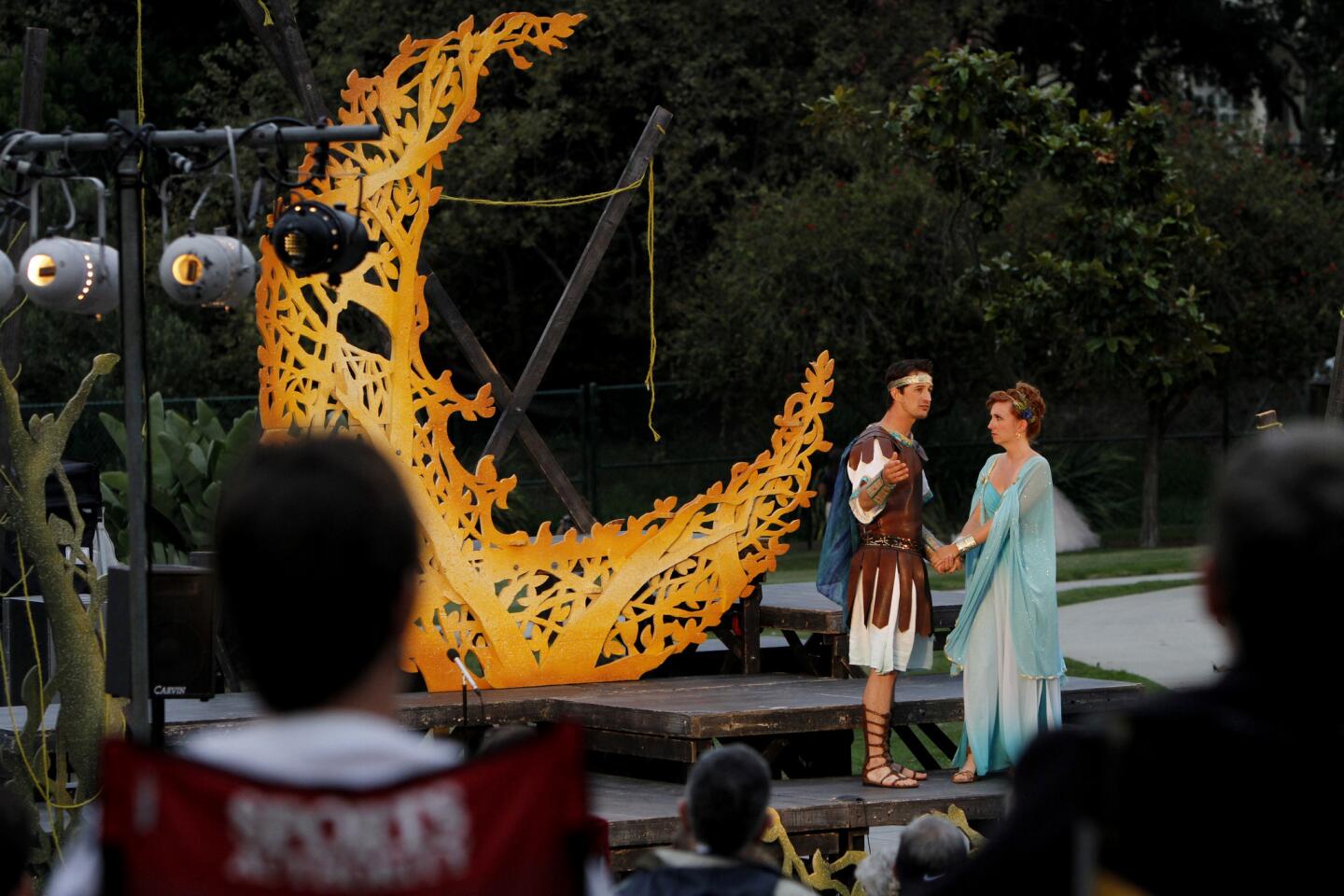

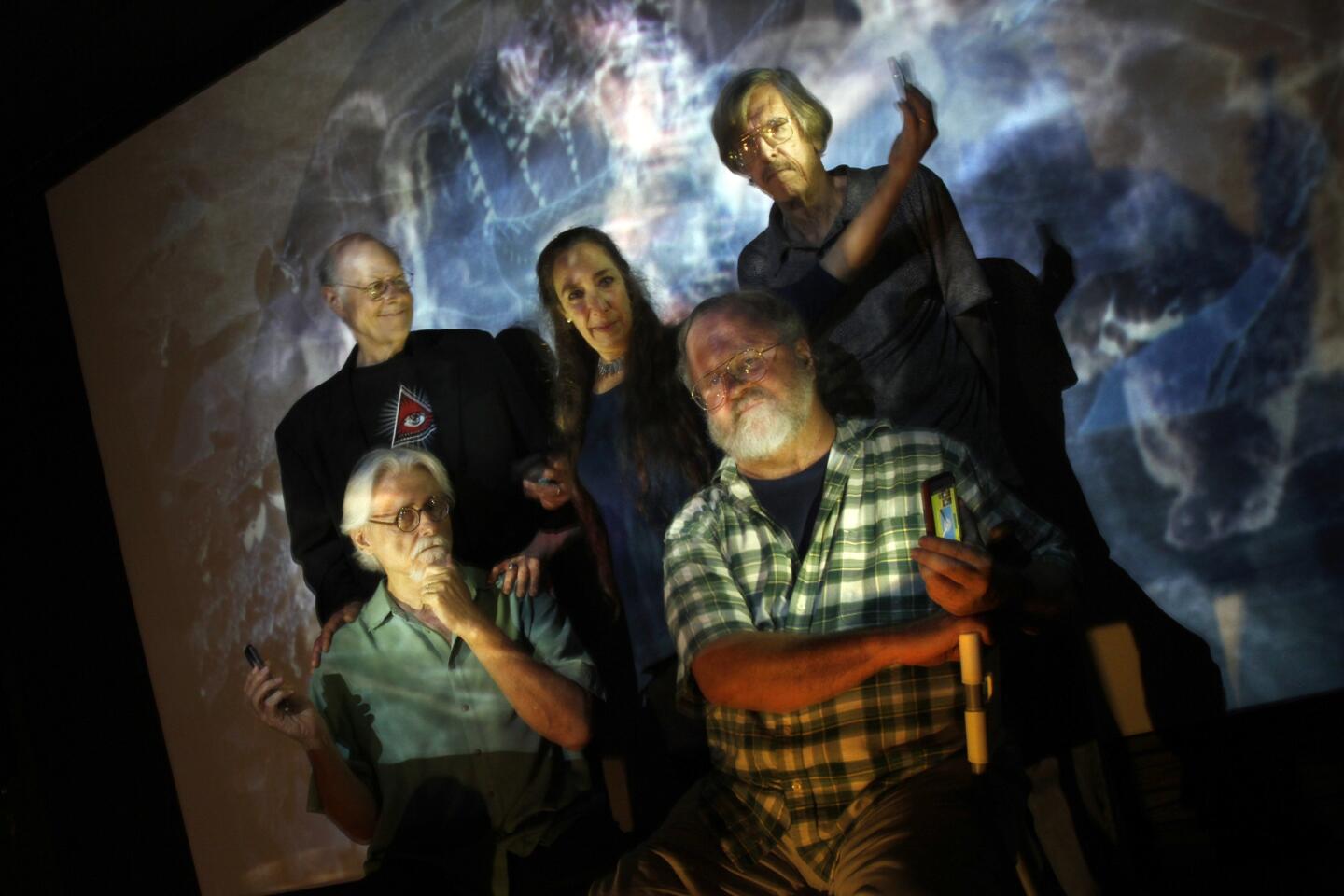


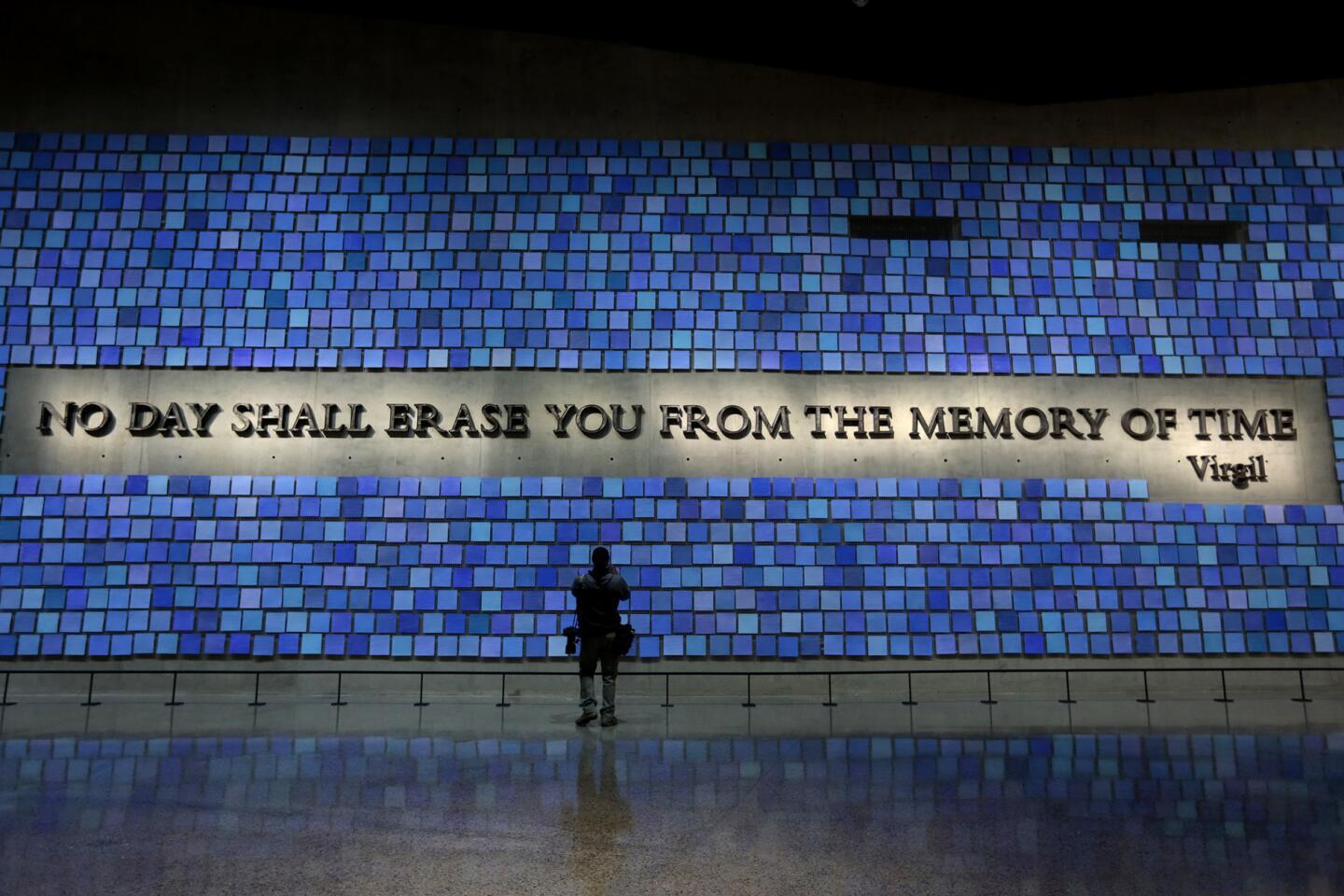
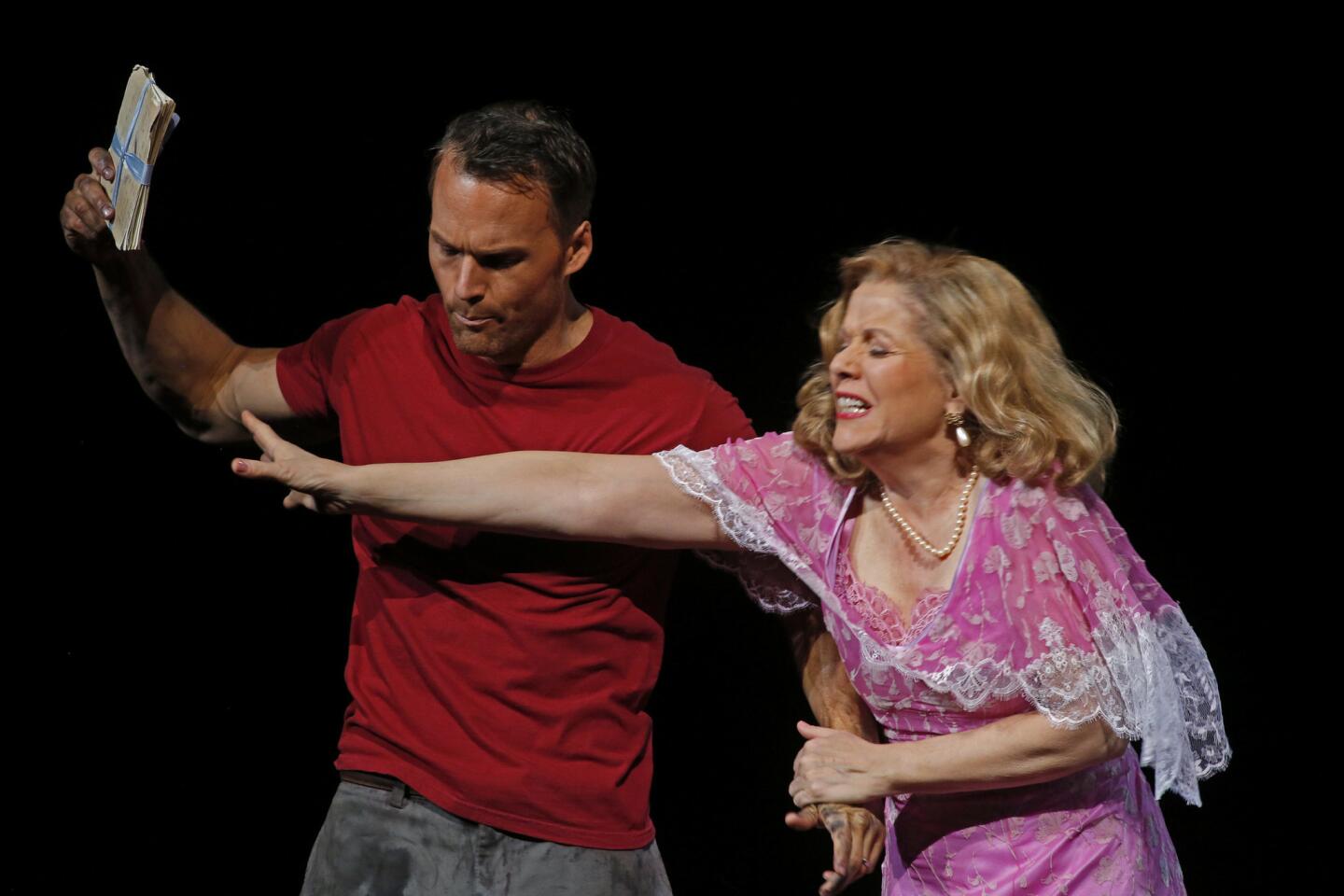
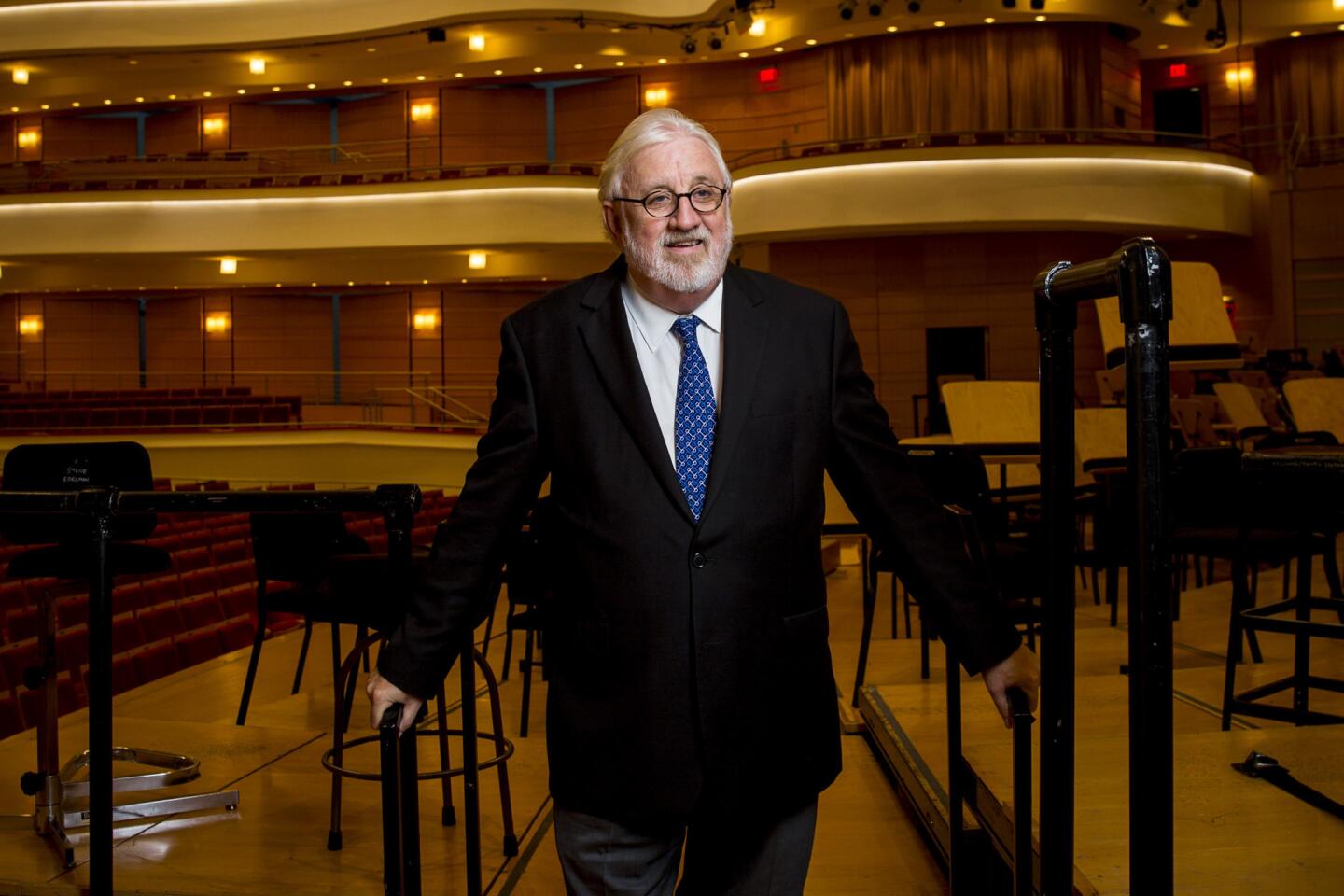
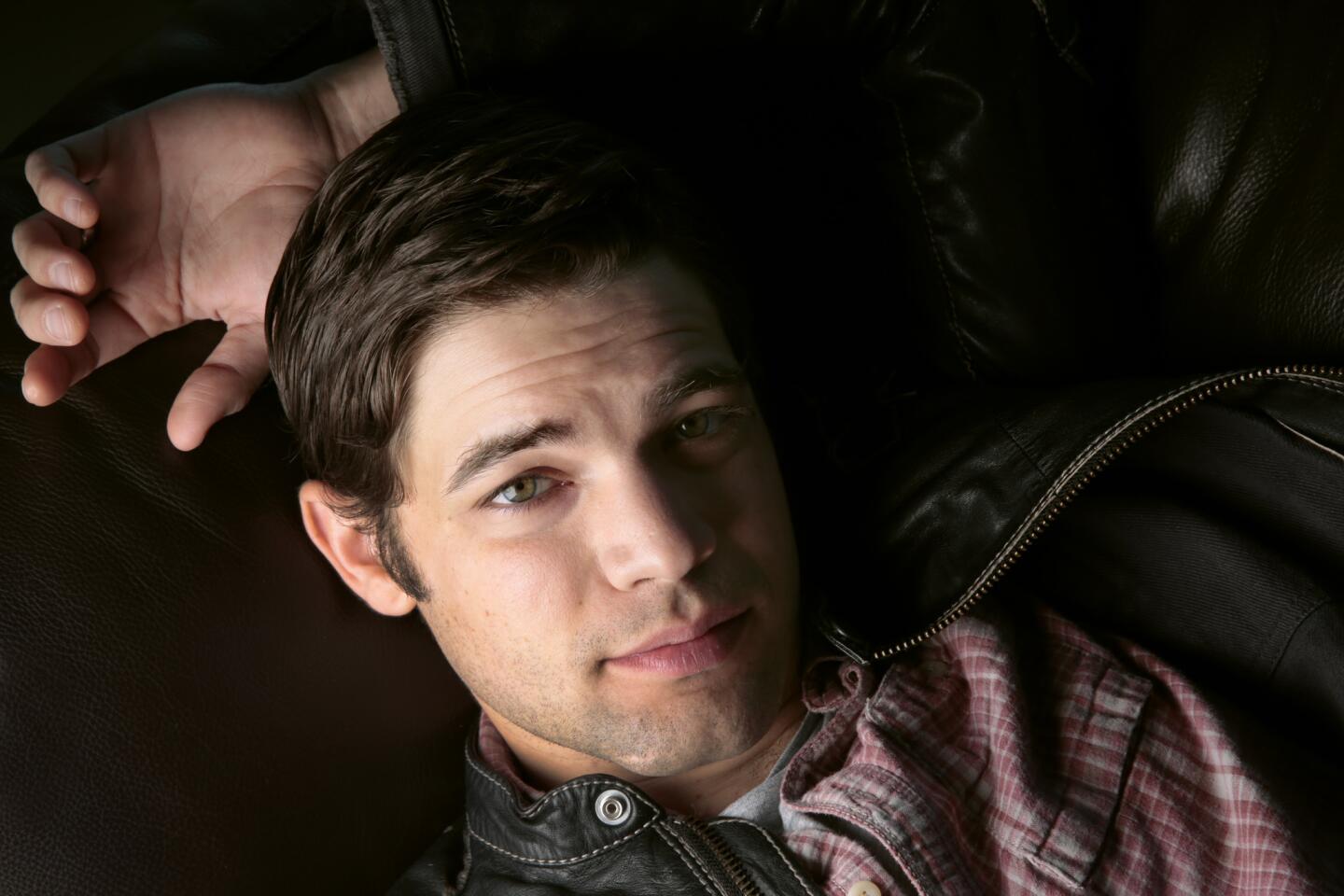

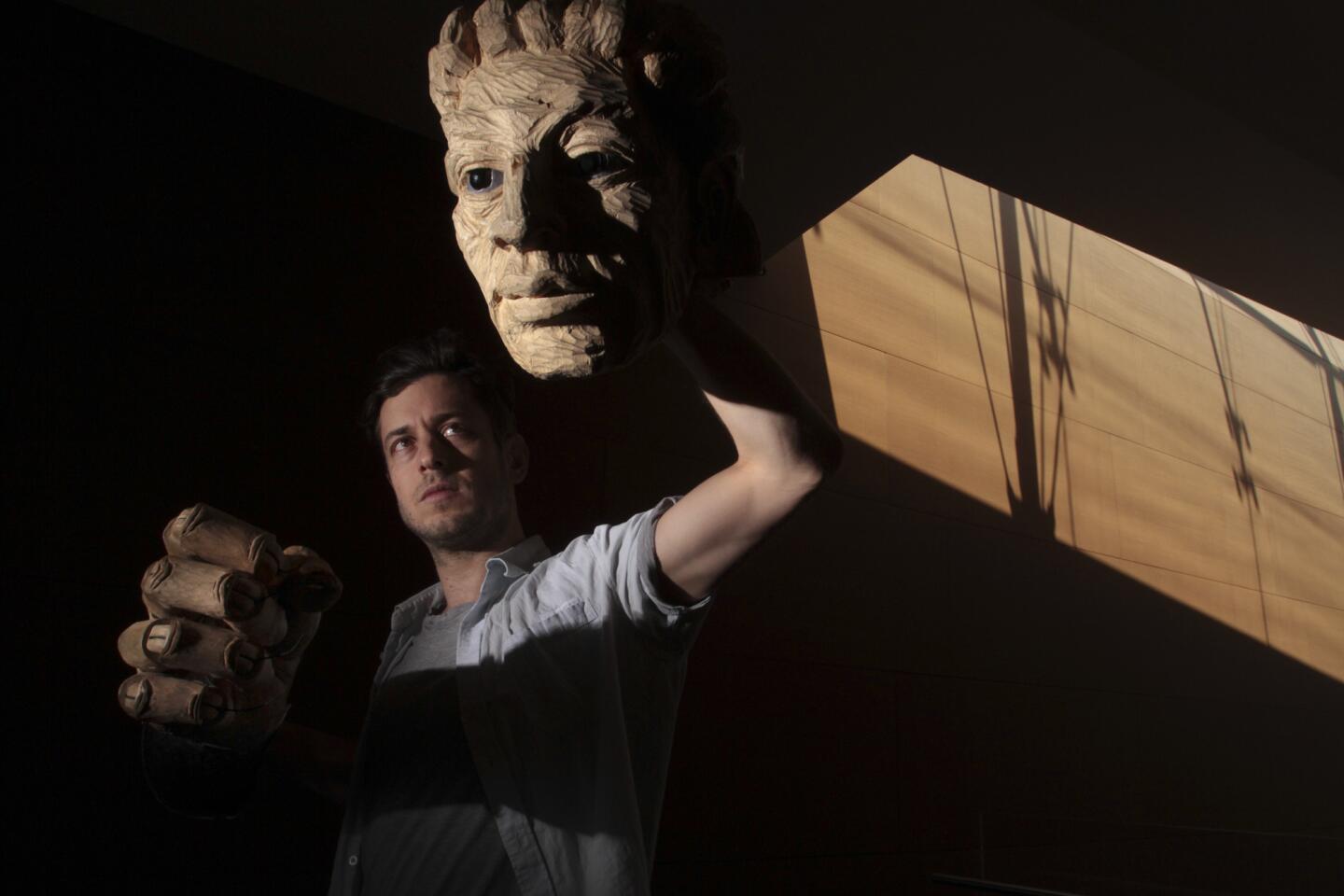
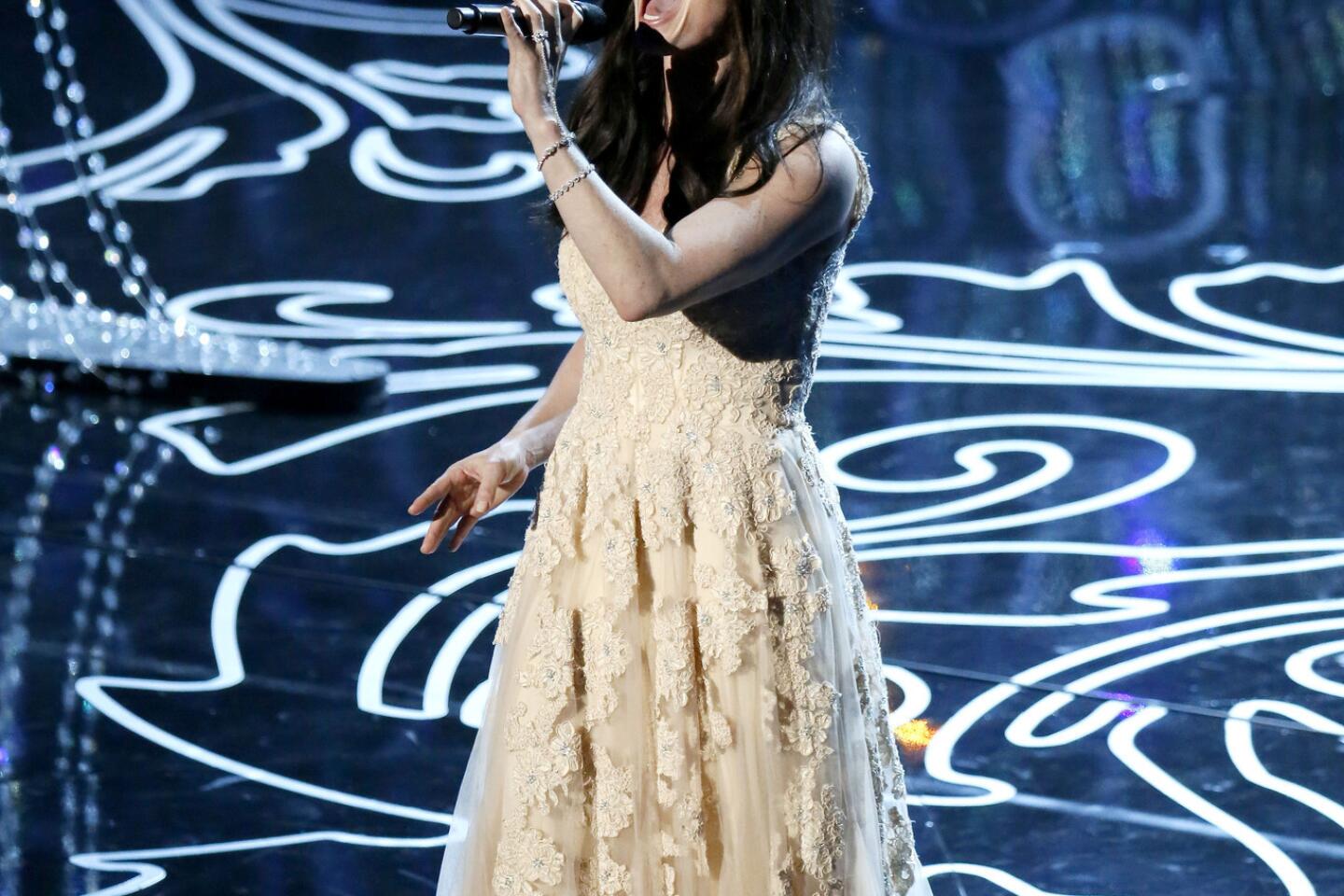
MORE: Oscars 2014: Idina Menzel sings Oscar-winning ‘Let It Go’ from ‘Frozen’
Idina Menzel replaced by ‘Adele Dazeem’ in ‘If/Then’ playbill joke
Adele Dazeem (Idina Menzel) saluted at ‘The Book of Mormon’ (Robert Gauthier / Los Angeles Times)
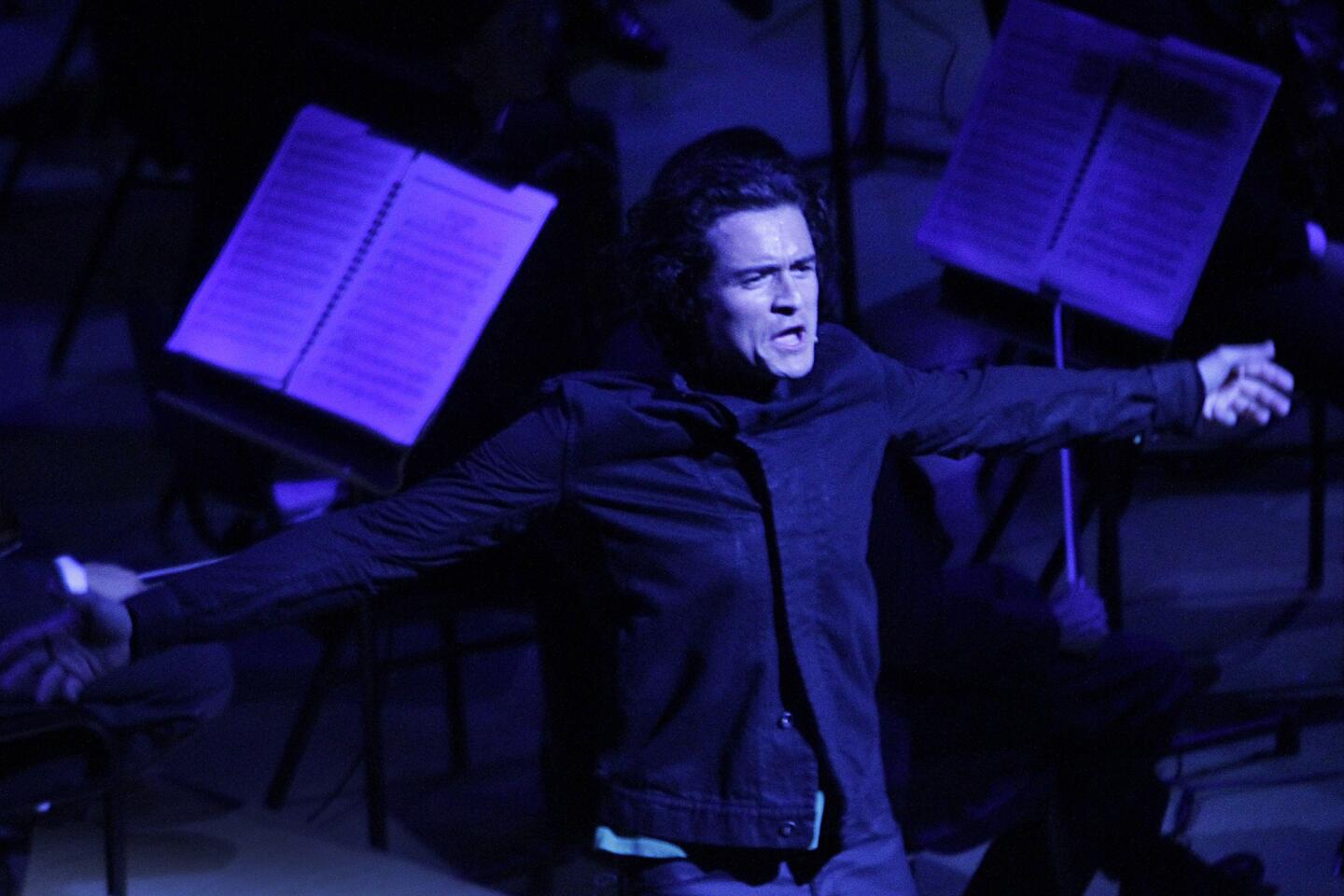
MORE: Orlando Bloom, Joe Morton brighten TchaikovskyFest at Disney Hall
REVIEW: Tchaikovsky on a grand scale (Lawrence K. Ho / Los Angeles Times)
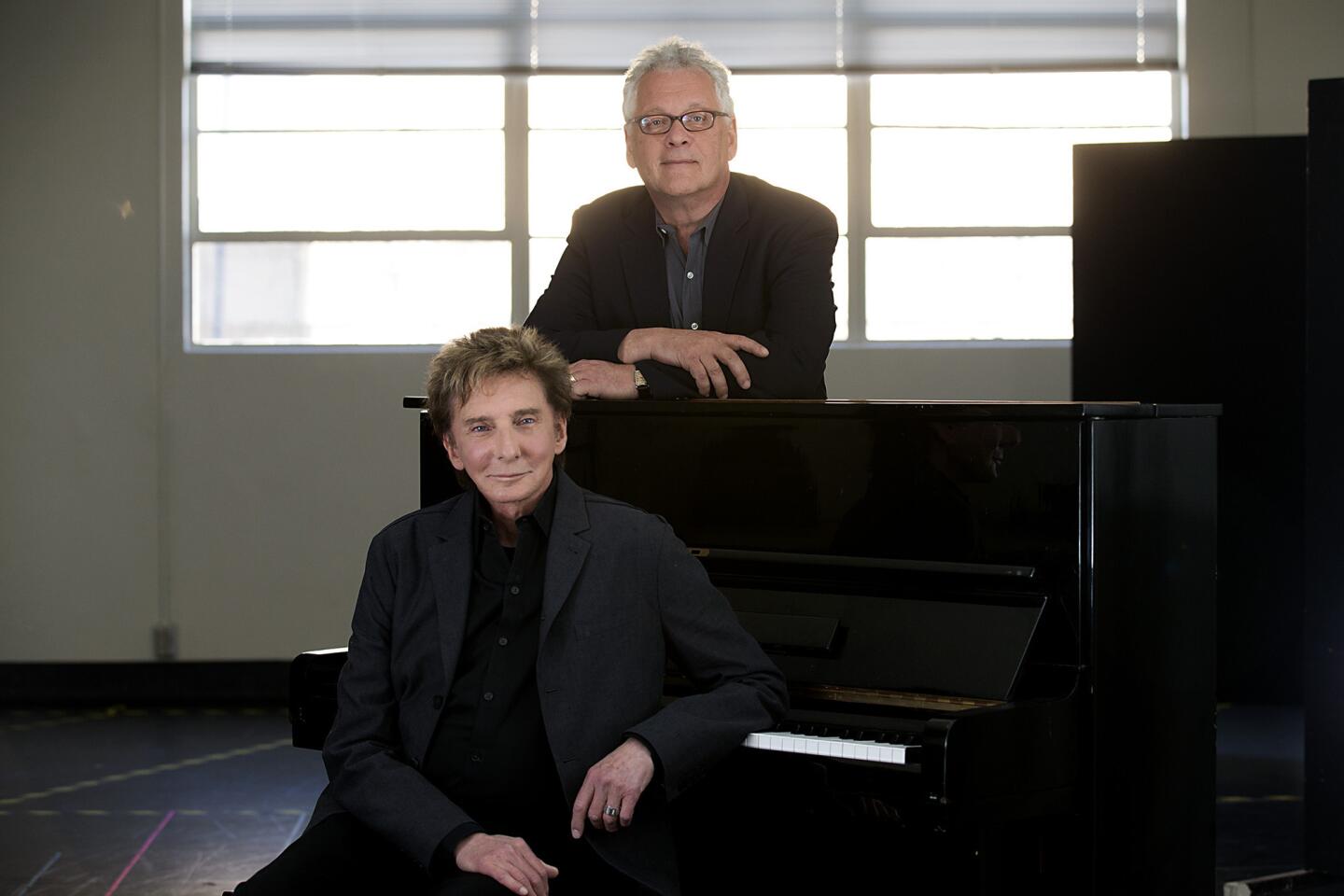
REVIEW: Barry Manilow’s ‘Harmony’ musical can sing but needs work (Luis Sinco / Los Angeles Times)
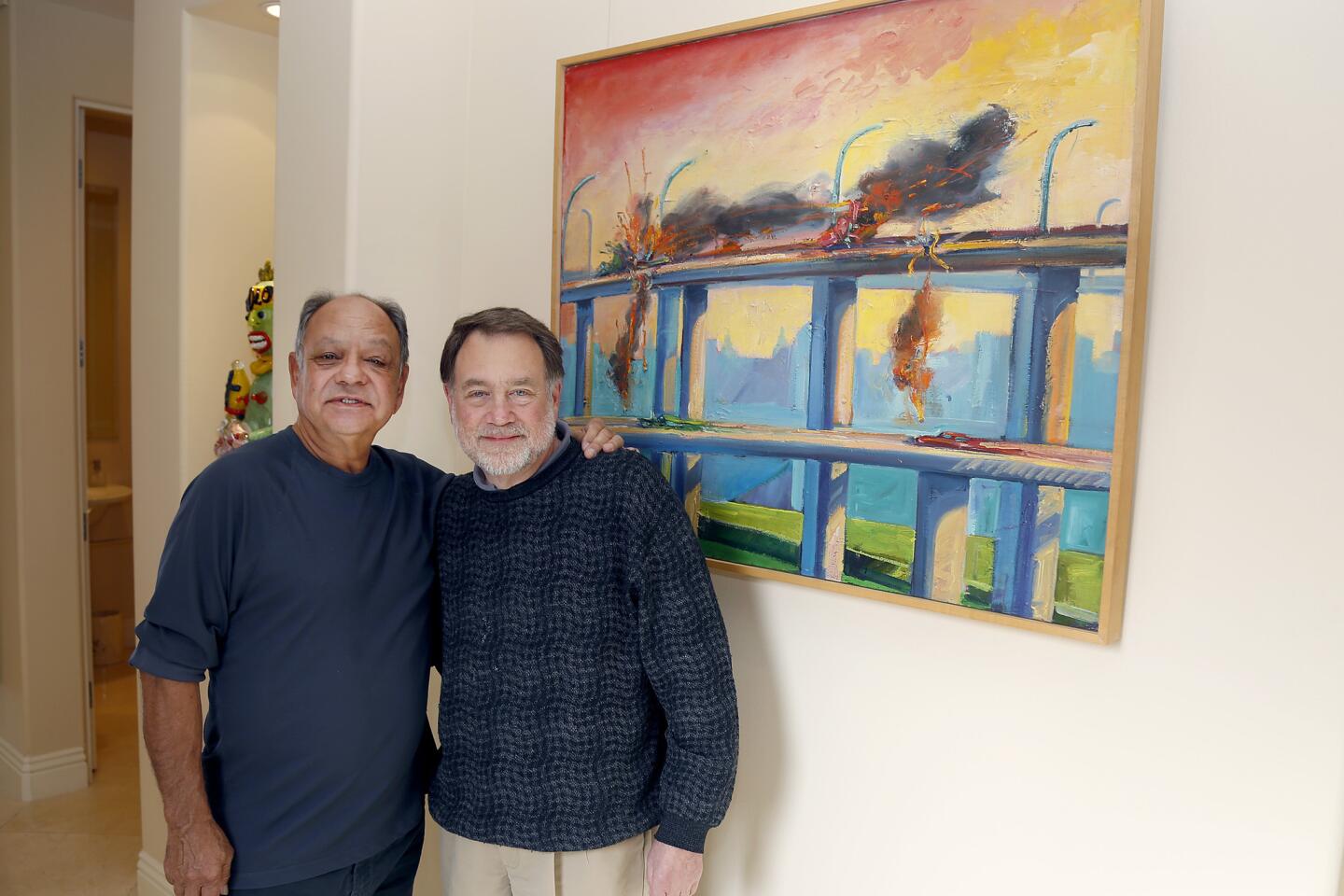
MORE: Carlos Almaraz’s time is coming, nearly 30 years after death (Kirk McKoy / Los Angeles Times)
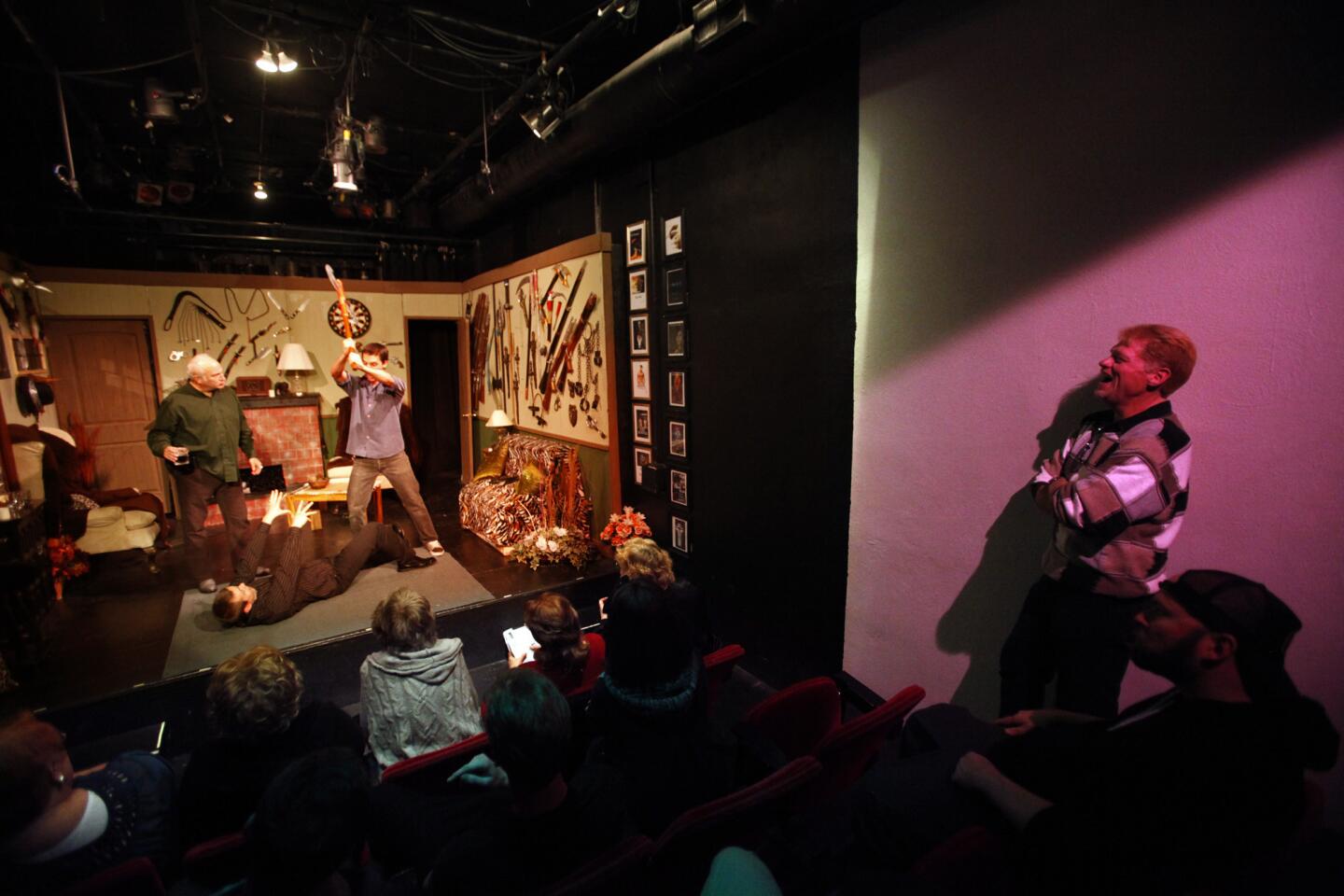
MORE: Hollywood’s Theatre Row sees exits stage right, left as scene changes
INTERACTIVE: Hollywood’s Theatre Row (Genaro Molina / Los Angeles Times)

More: Grammys 2014: Lang Lang performs ‘One’ with Metallica (Robert Gauthier / Los Angeles Times)
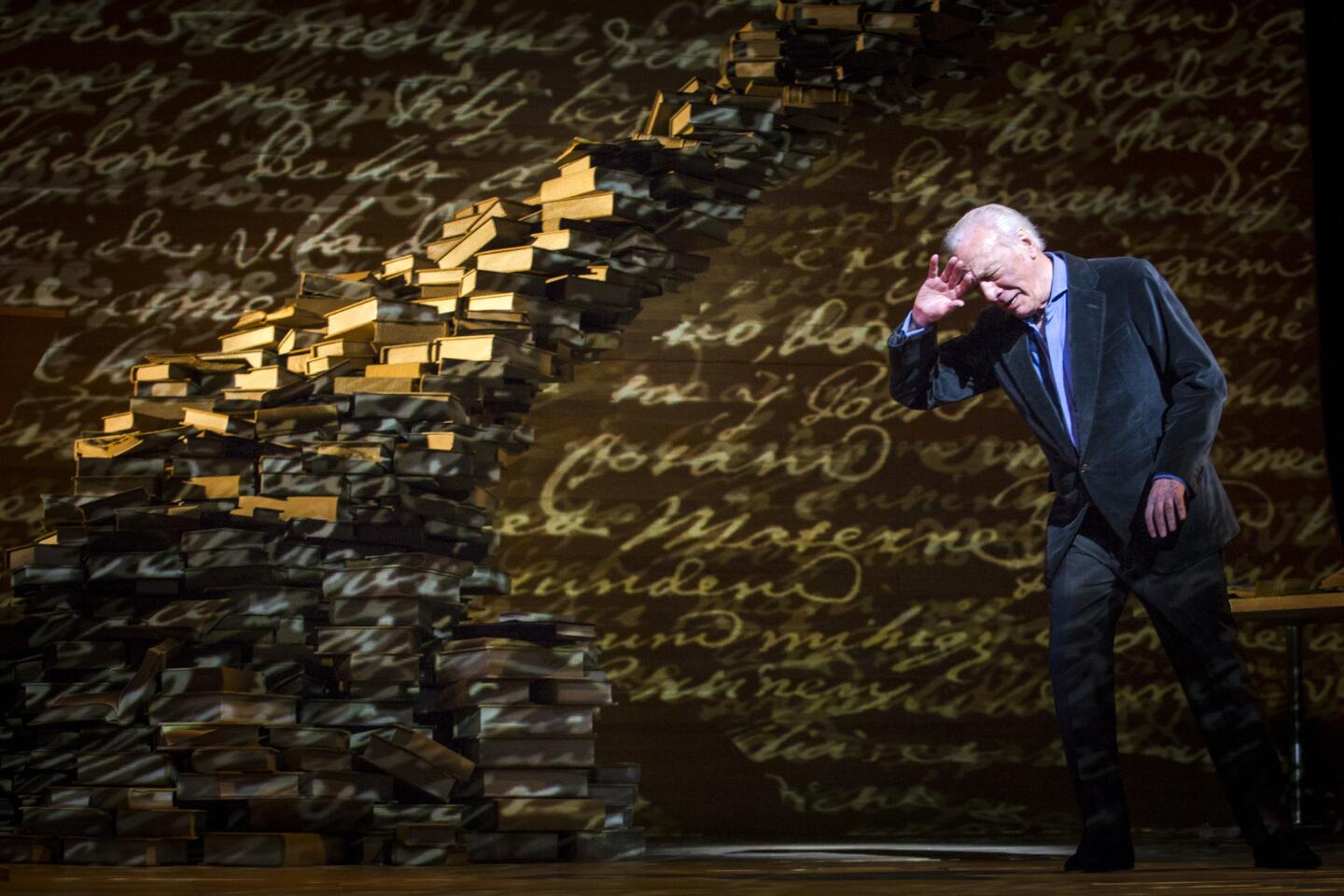
Review: Christopher Plummer, a man of letters, says ‘A Word or Two’ (Doriane Raiman / Los Angeles Times)

REVIEW: A poet embedded among troops lives to tell ‘An Iliad’ (Lawrence K. Ho / Los Angeles Times)

MORE: New MOCA director Philippe Vergne is a museum veteran
New MOCA director Philippe Vergne plans an artist-enabling museum (Carolyn Cole / Los Angeles Times)

MORE: A ‘Beautiful’ tapestry of Carole King’s life (Carolyn Cole / Los Angeles Times)
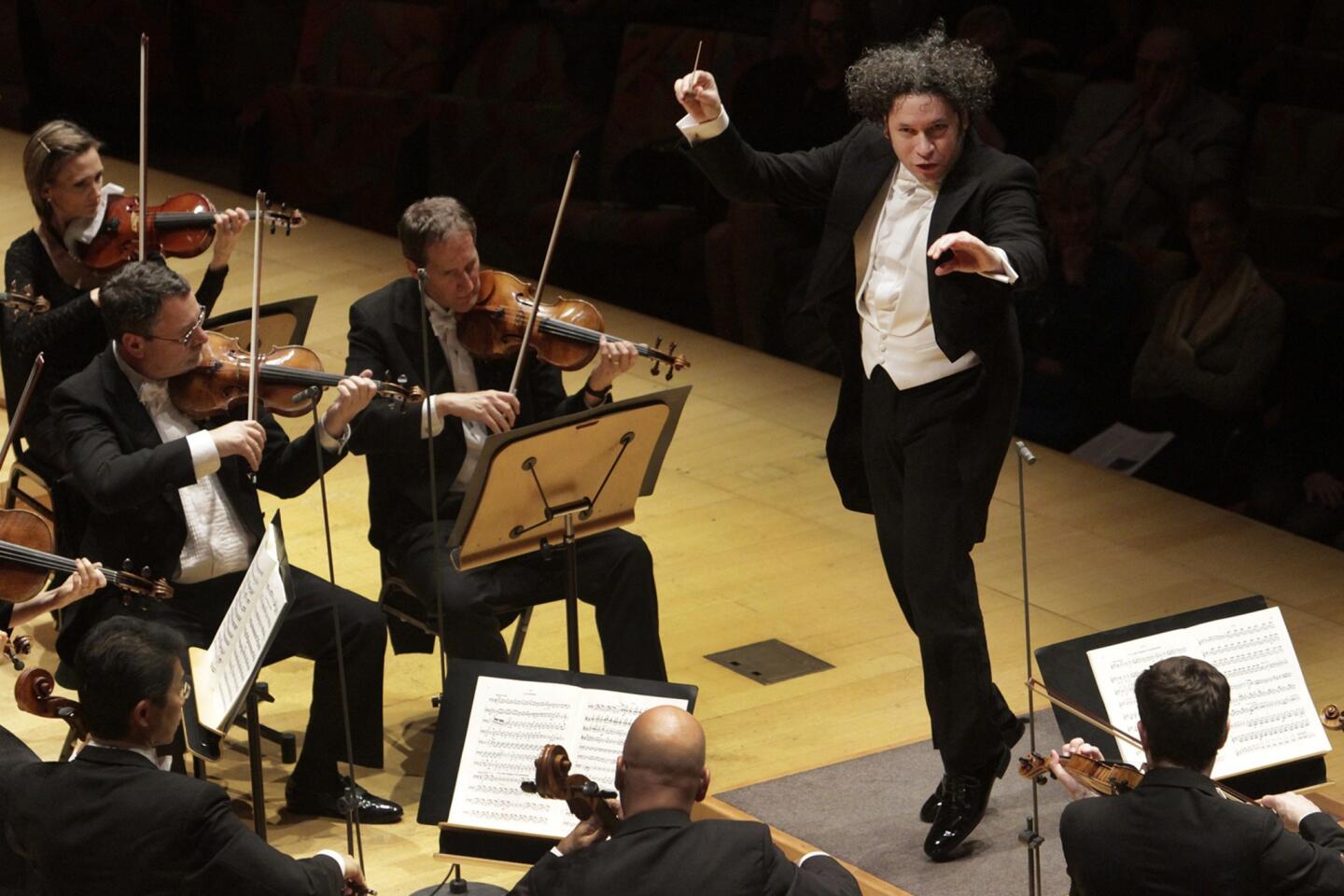
REVIEW: L.A. Phil, Dudamel reinvigorate Tchaikovsky’s ‘Nutcracker’ (Lawrence K. Ho / Los Angeles Times)
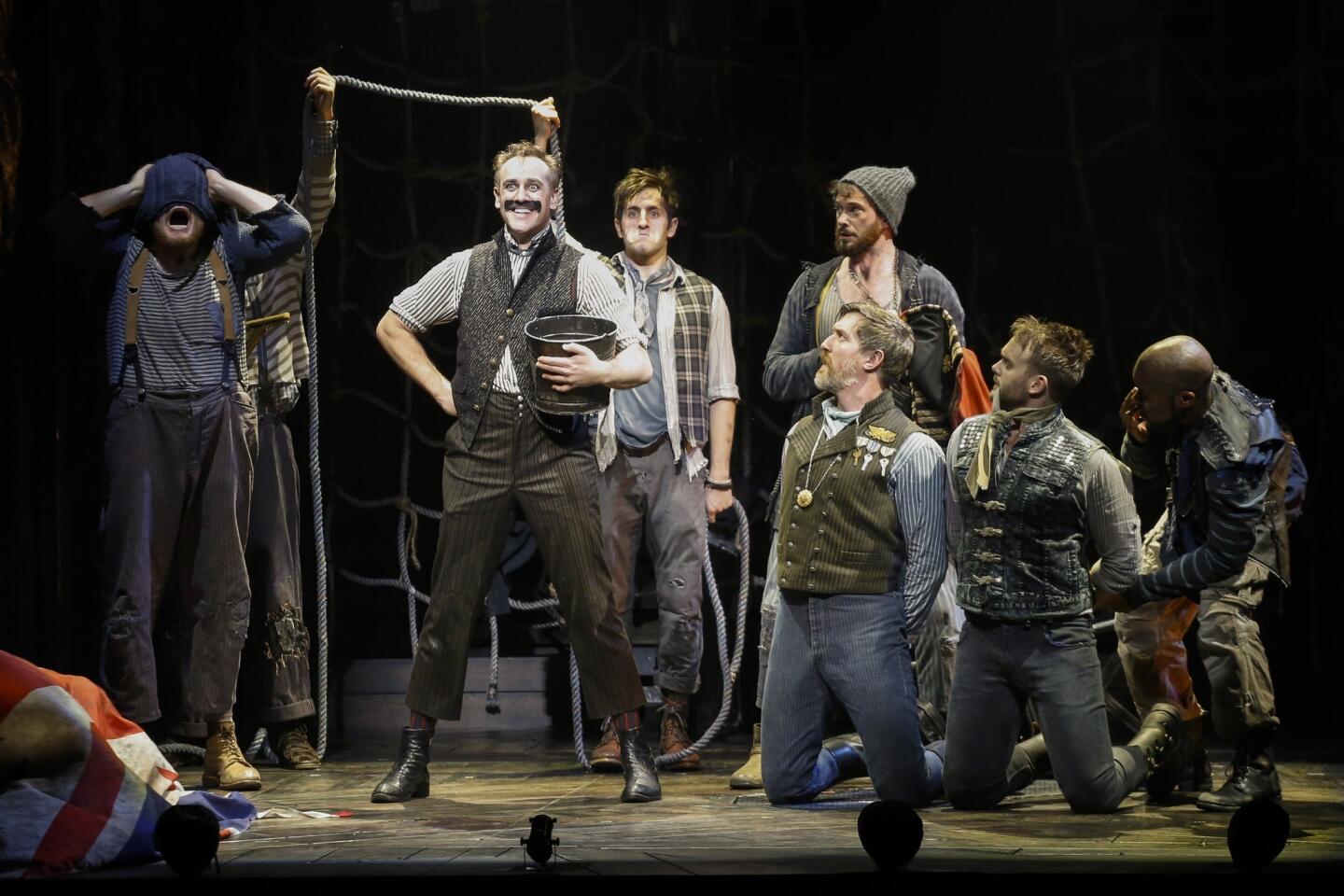
REVIEW: Lively ‘Peter and the Starcatcher’ make us believers again
MORE: Baddie role in ‘Peter and the Starcatcher’ hooked John Sanders (Jay L. Clendenin / Los Angeles Times)
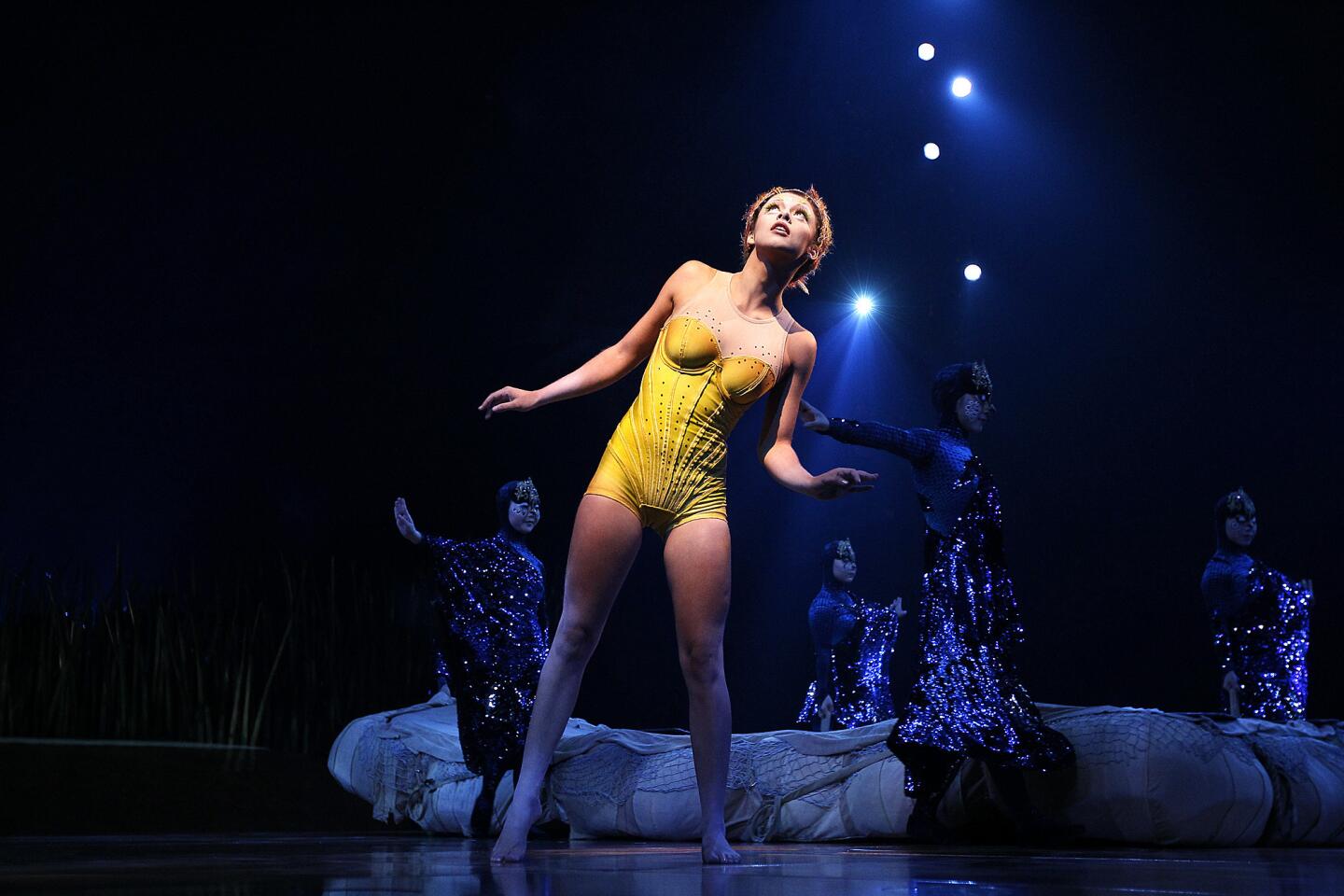
REVIEW: Cirque du Soleil’s ‘Totem’ a thrilling salute to human growth (Christina House / For the Times)
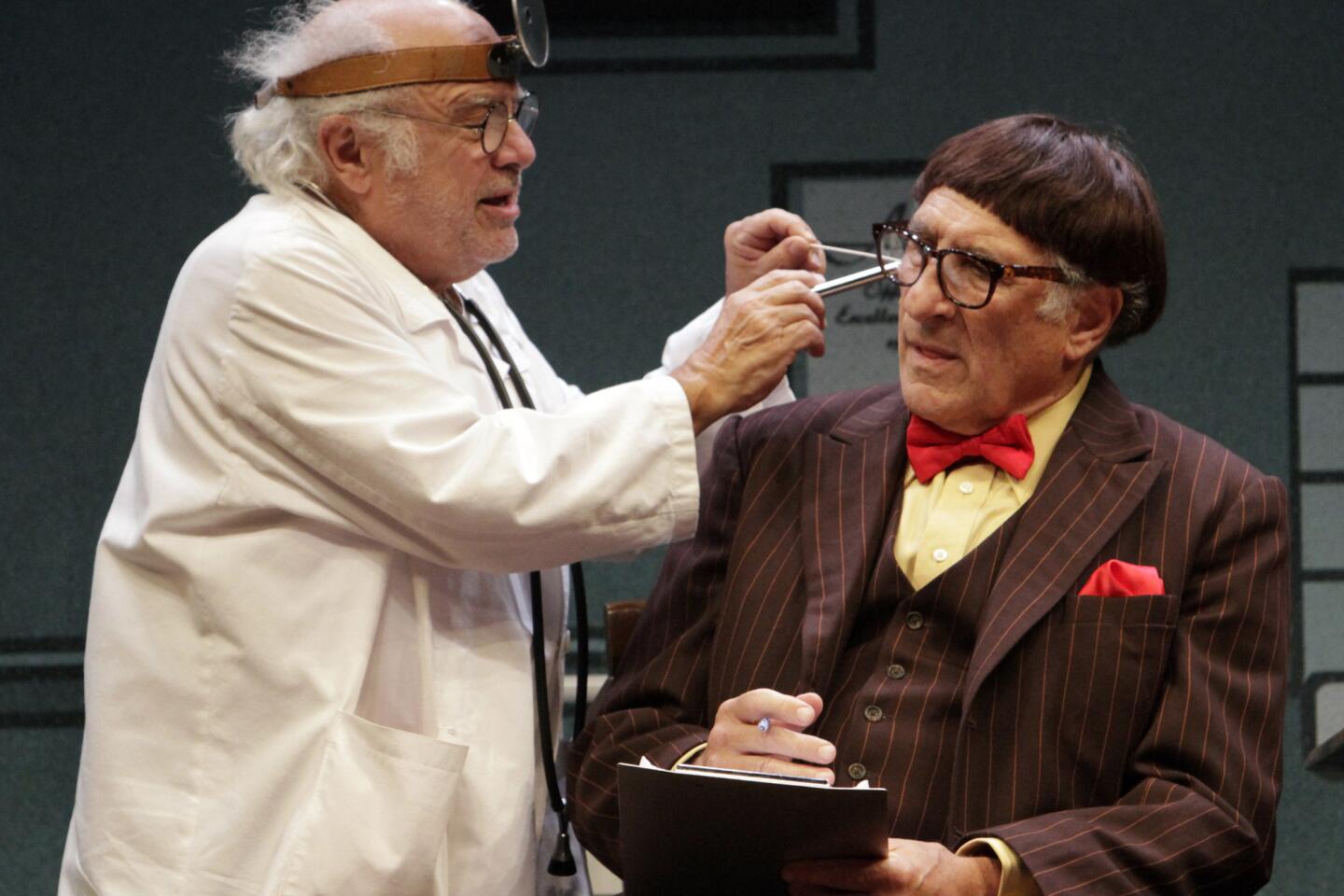
REVIEW: Time has overtaken ‘The Sunshine Boys’ (Lawrence K. Ho / Los Angeles Times)
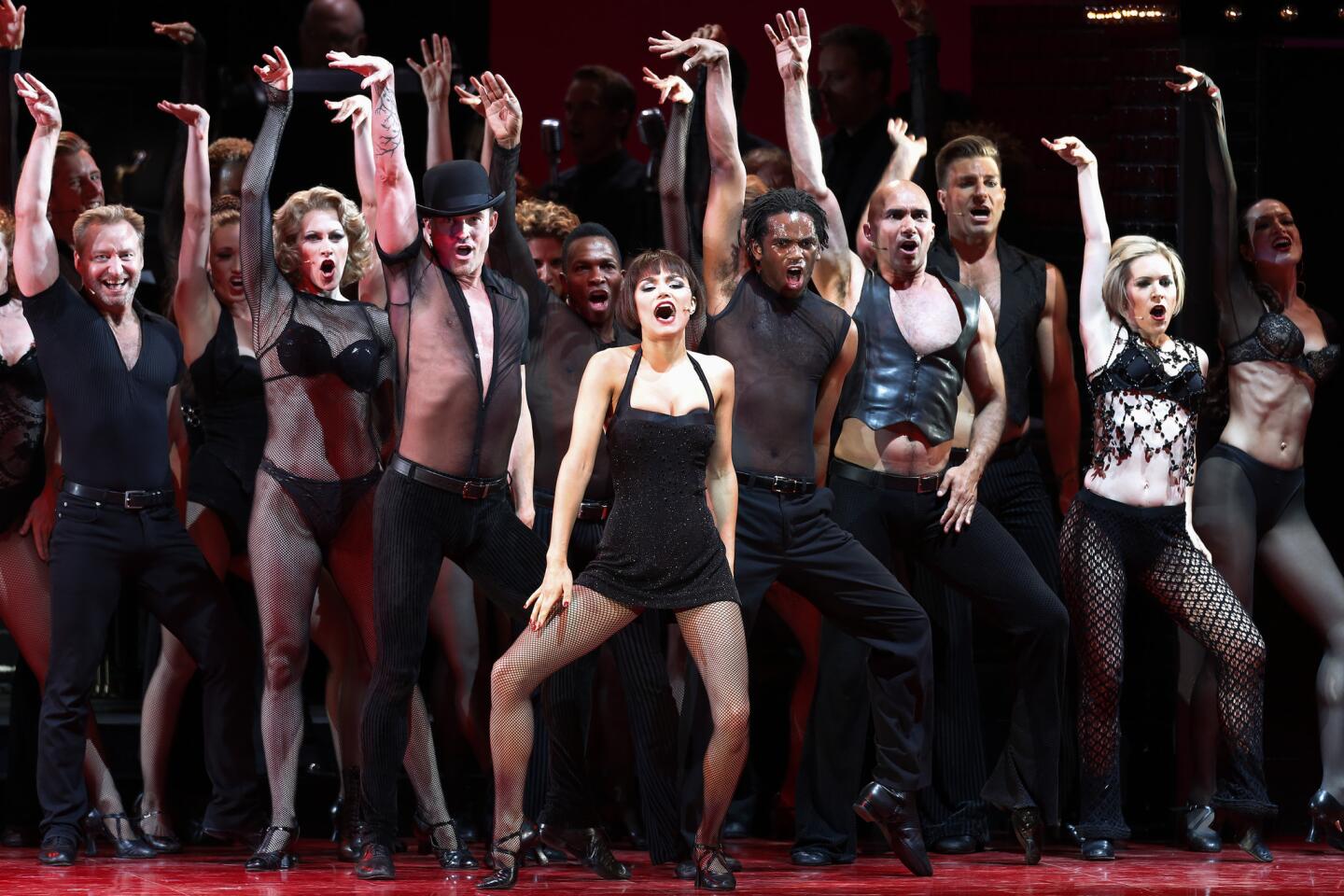
REVIEW: ‘Chicago’ storms into the Hollywood Bowl (Jay L. Clendenin / Los Angeles Times)
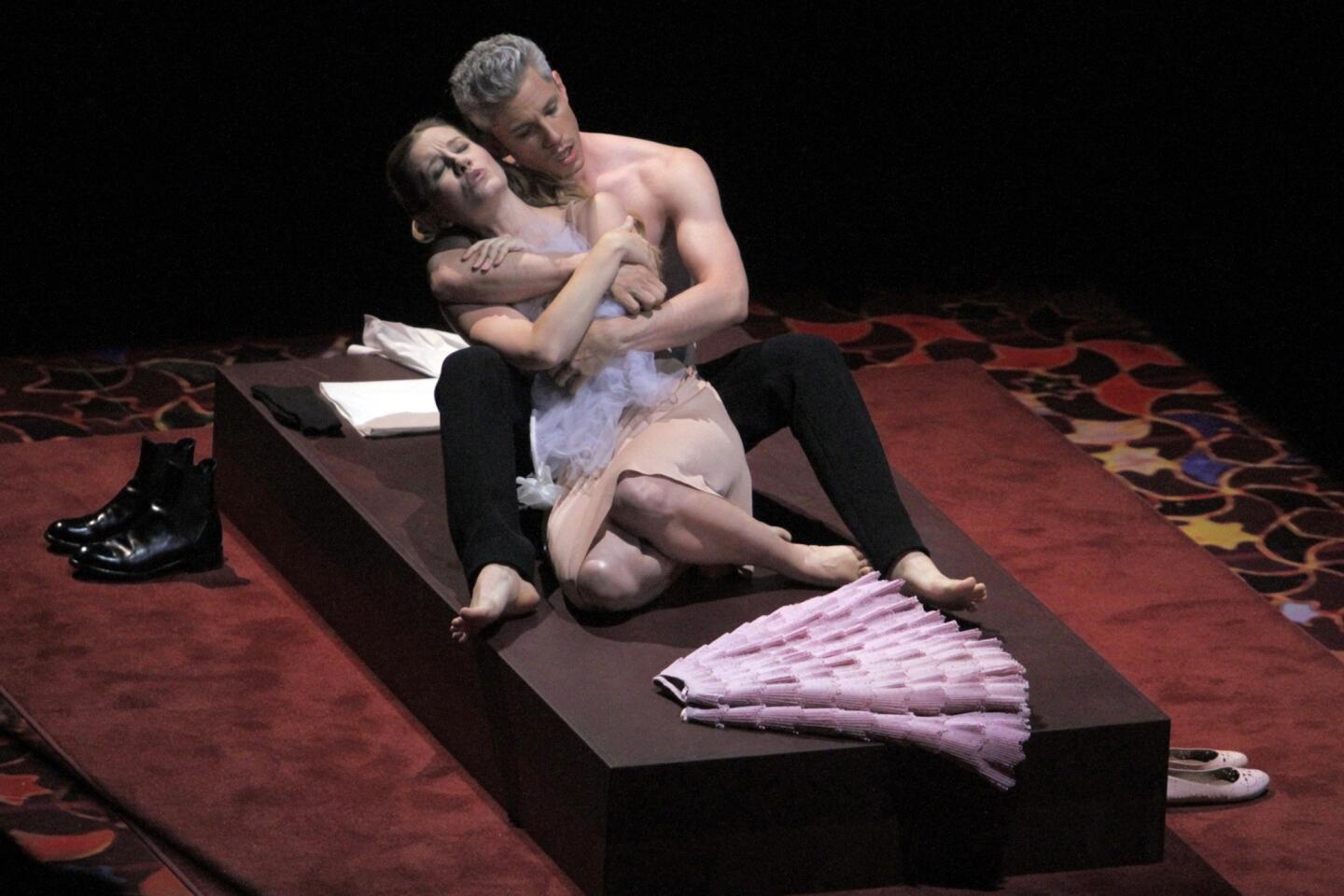
REVIEW: ‘Marriage of Figaro’ a wedding of many talents (Lawrence K. Ho / Los Angeles Times)
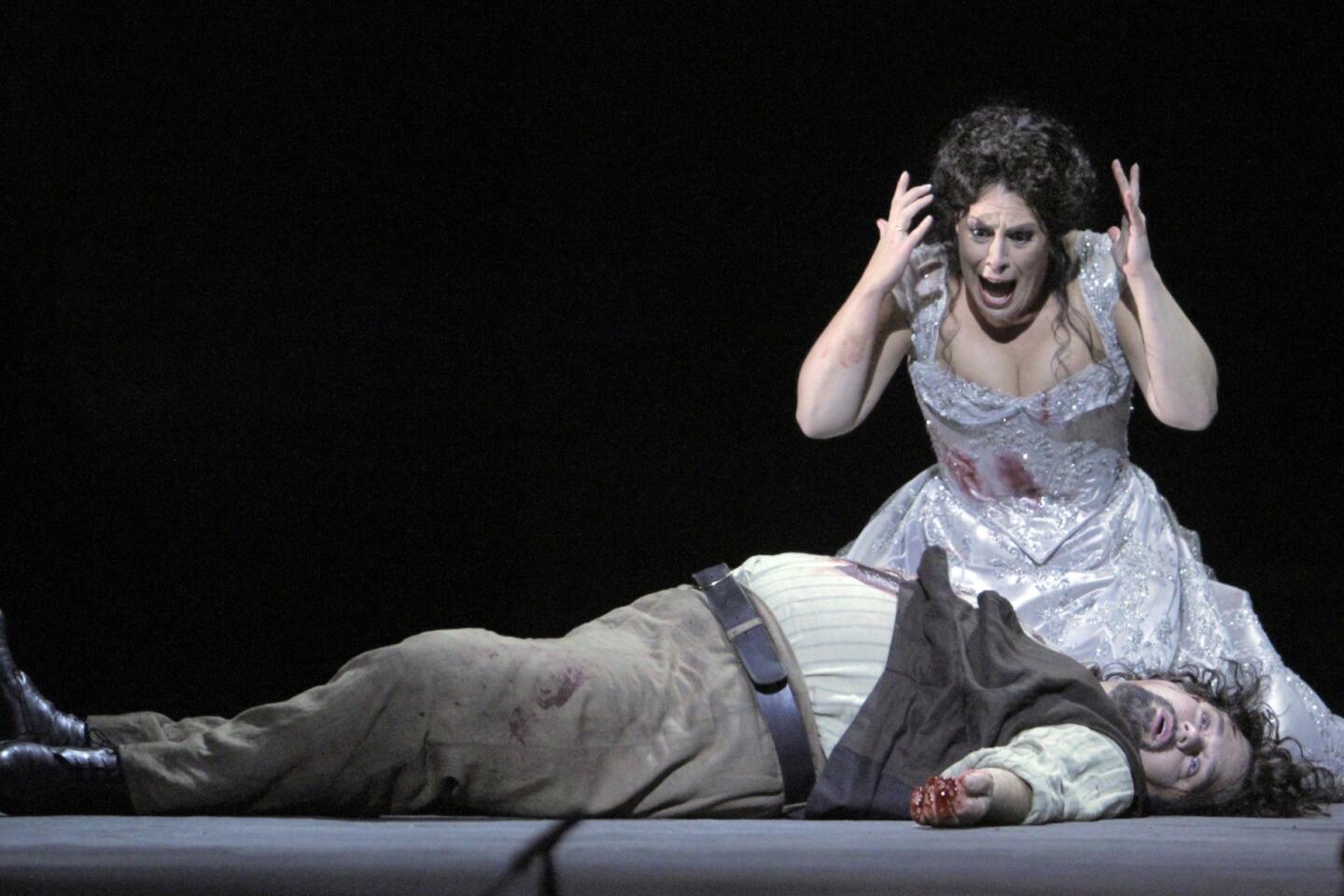
REVIEW: With ‘Tosca,’ Los Angeles Opera goes for grand (Lawrence K. Ho / Los Angeles Times)
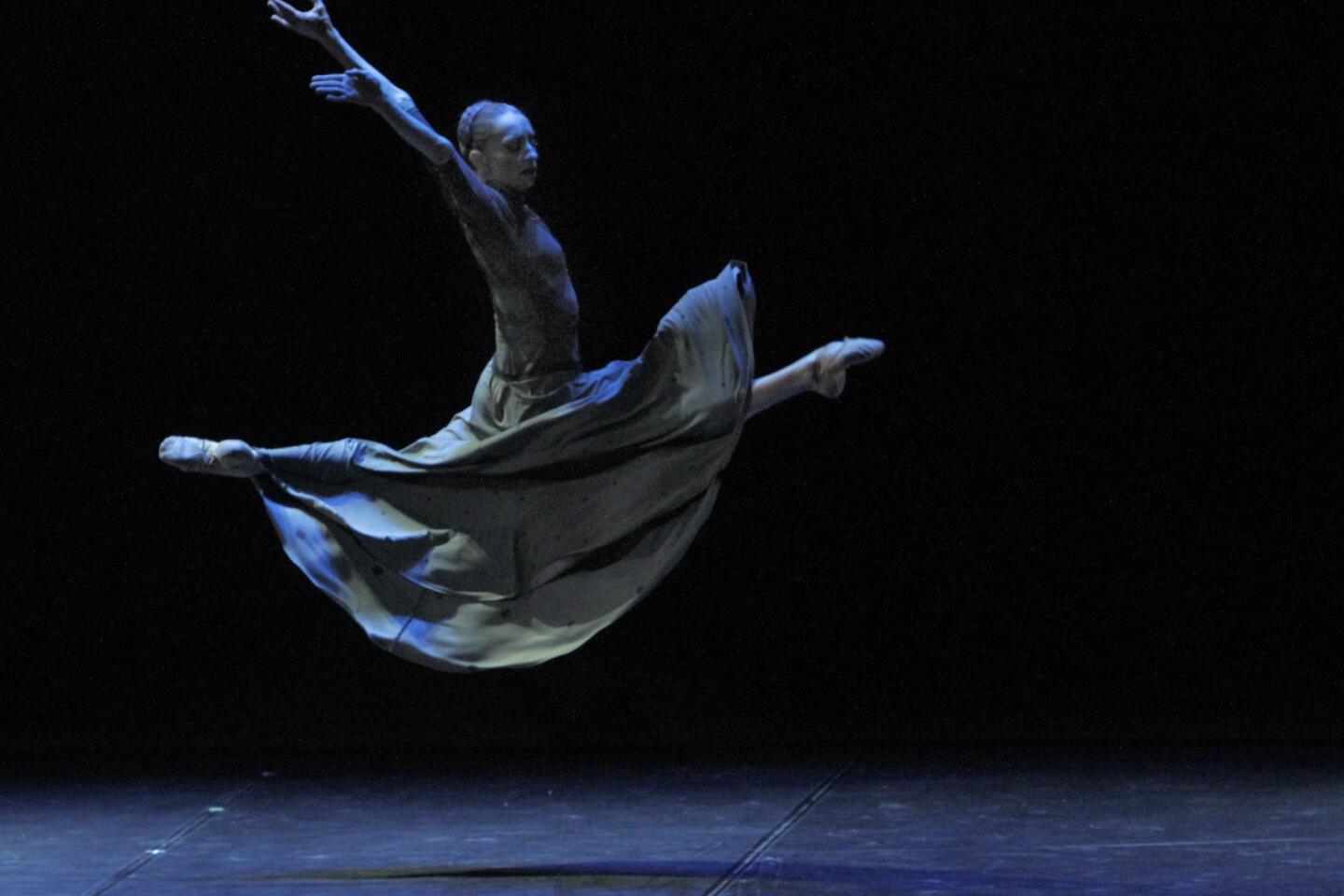
REVIEW: The collateral damage of genius in Boris Eifman’s ‘Rodin’ (Lawrence K. Ho / Los Angeles Times)
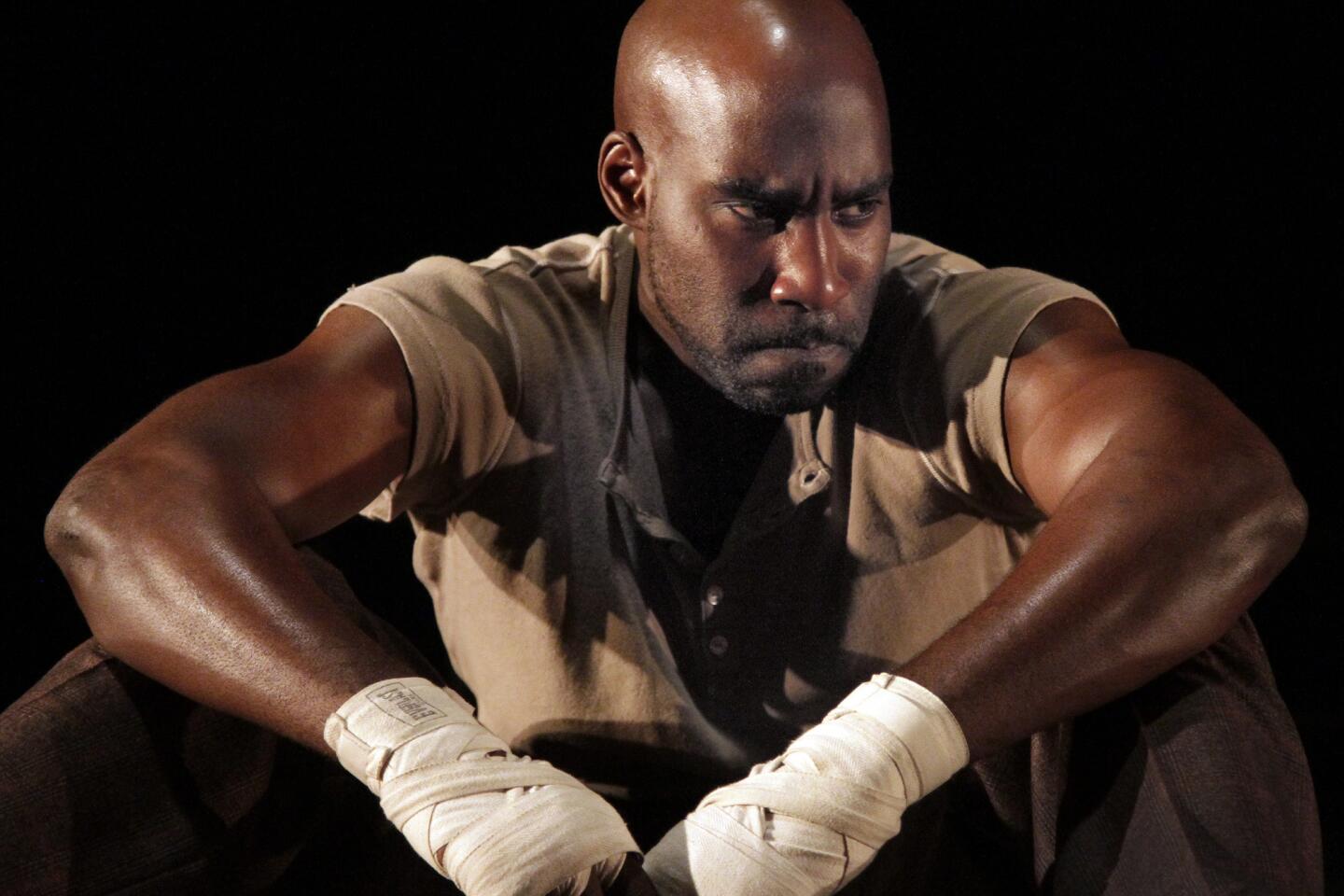
REVIEW: ‘The Royale’ punches well but has character issues (Lawrence K. Ho / Los Angeles Times)
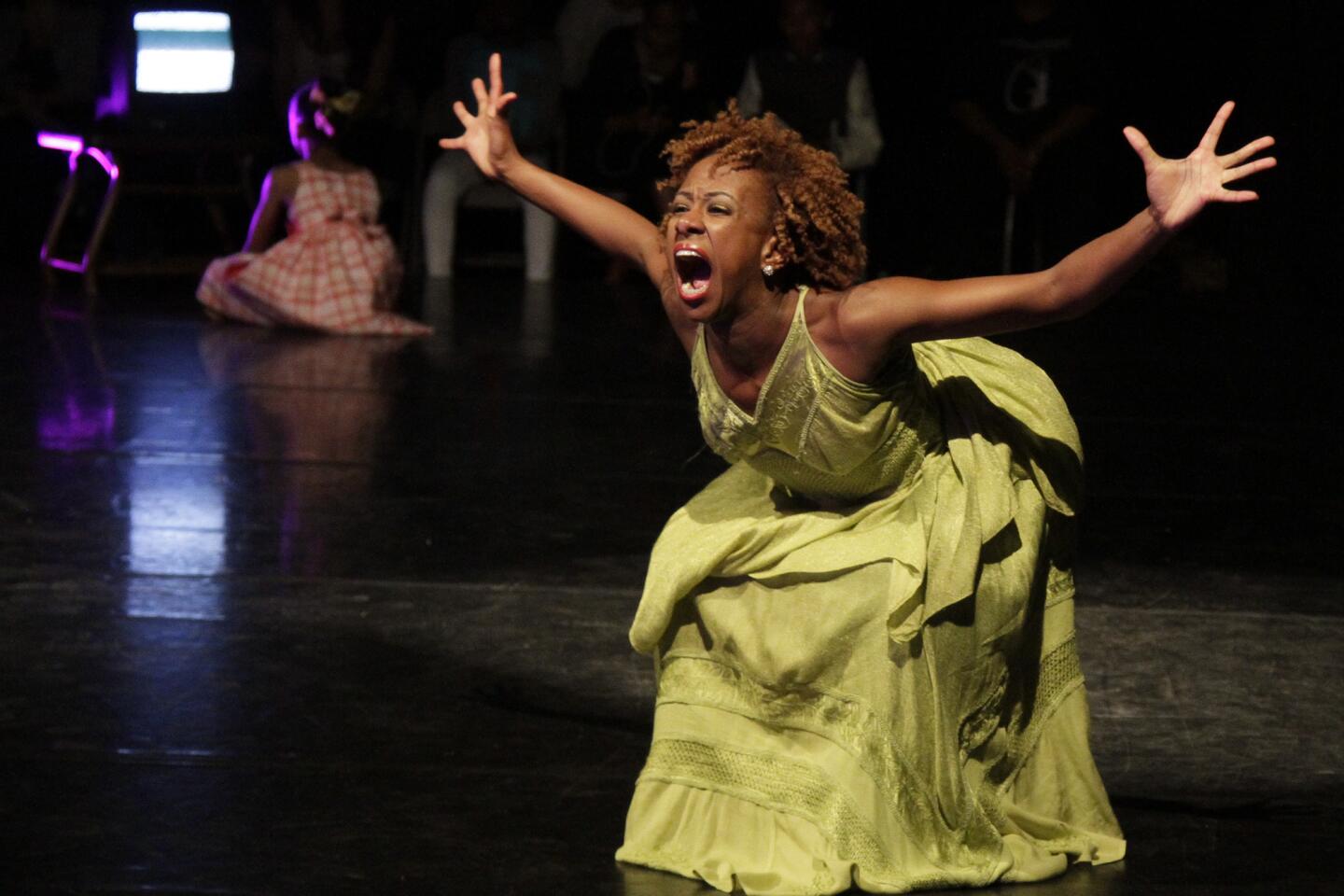
REVIEW: L.A. Dance Festival returns to boost homegrown dance (Lawrence K. Ho / Los Angeles Times)
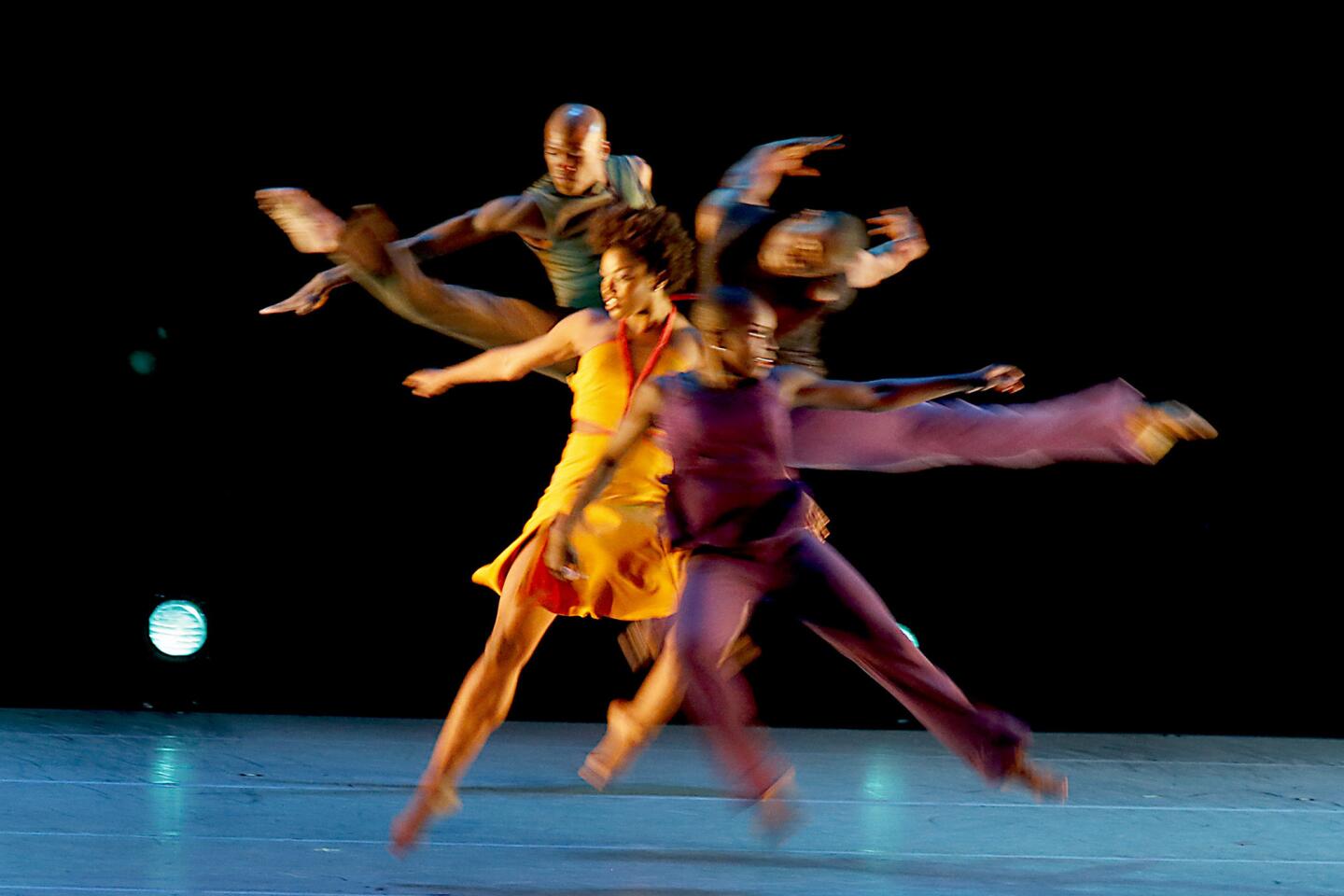
REVIEW: Sensual energy crackles in Alvin Ailey dance program (Luis Sinco / Los Angeles Times)
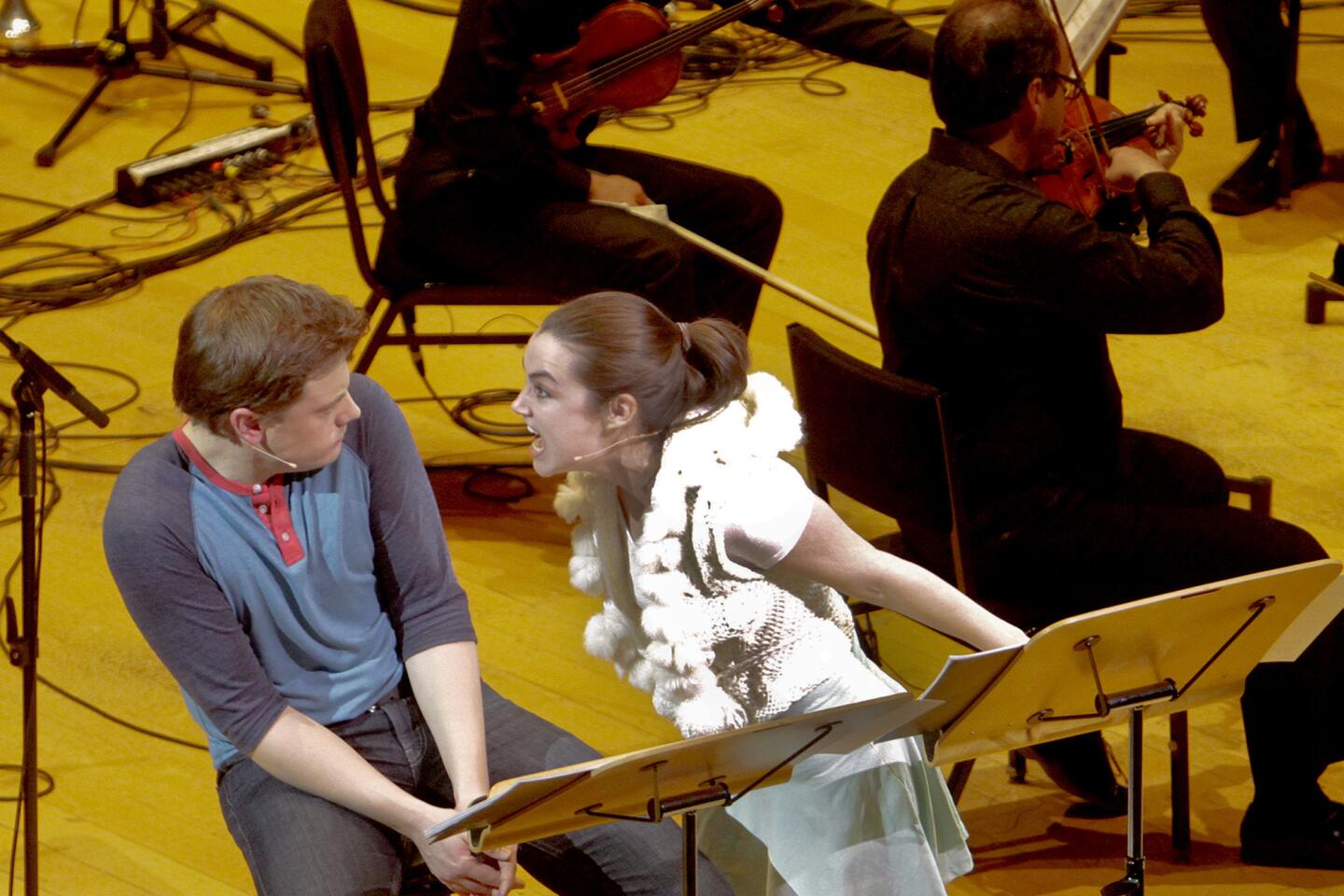
REVIEW: Aaron Copland as a hinge (Lawrence K. Ho / Los Angeles Times)
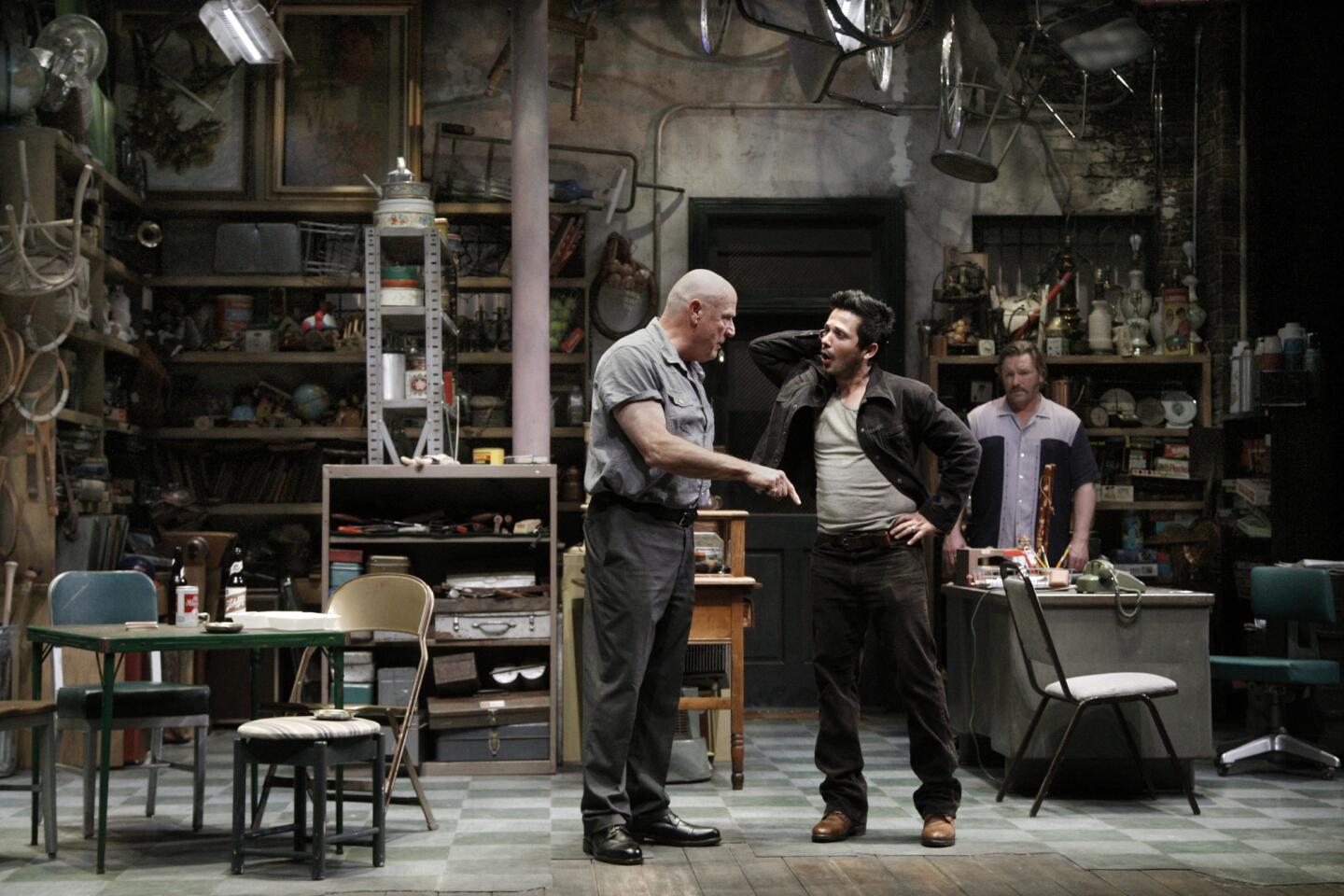
REVIEW: ‘American Buffalo’ at Geffen a refreshing dose of Mamet (Gary Friedman / Los Angeles Times)
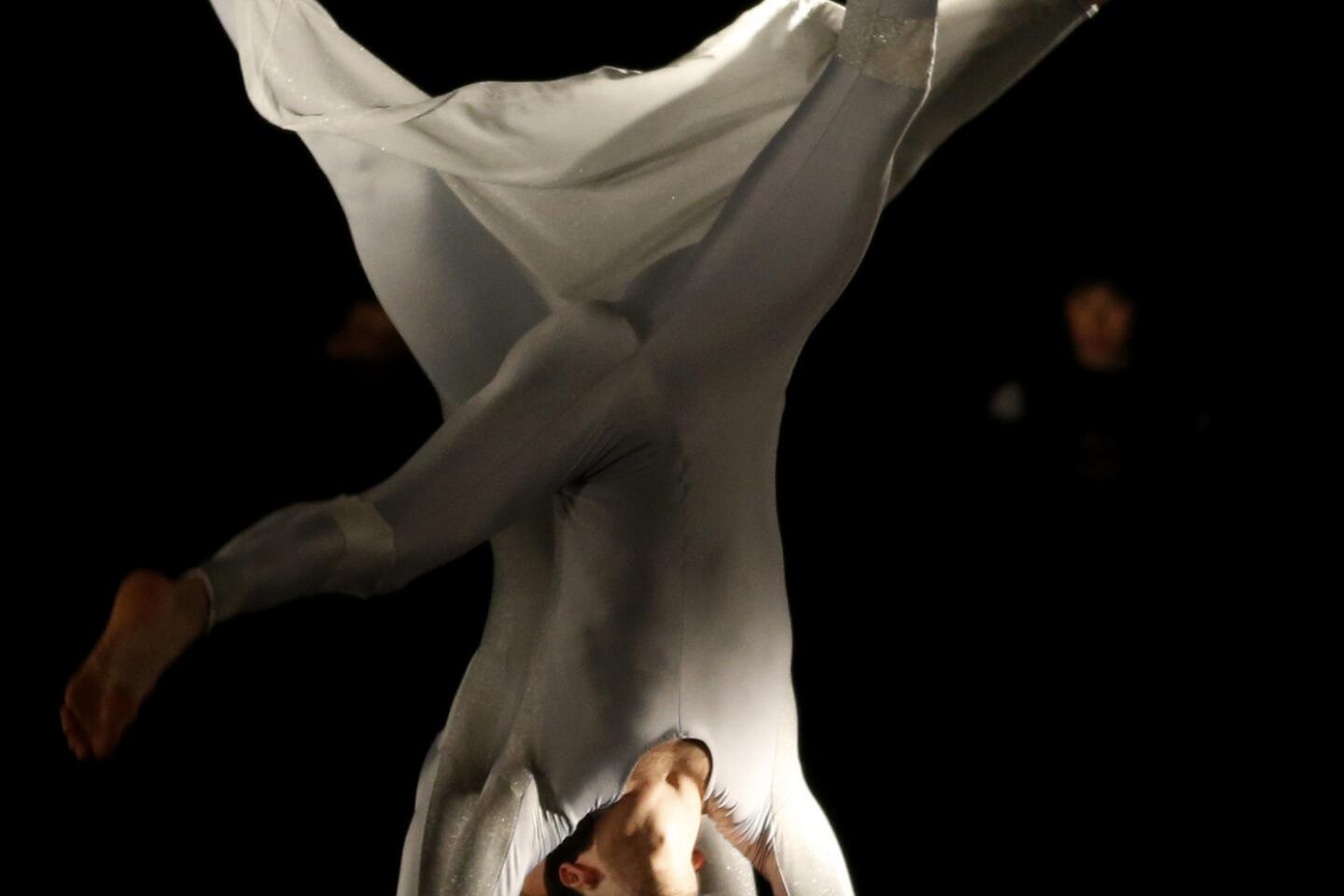
REVIEW: Flashes of lightning in Trisha Brown’s ‘Astral Converted’ (Luis Sinco / Los Angeles Times)
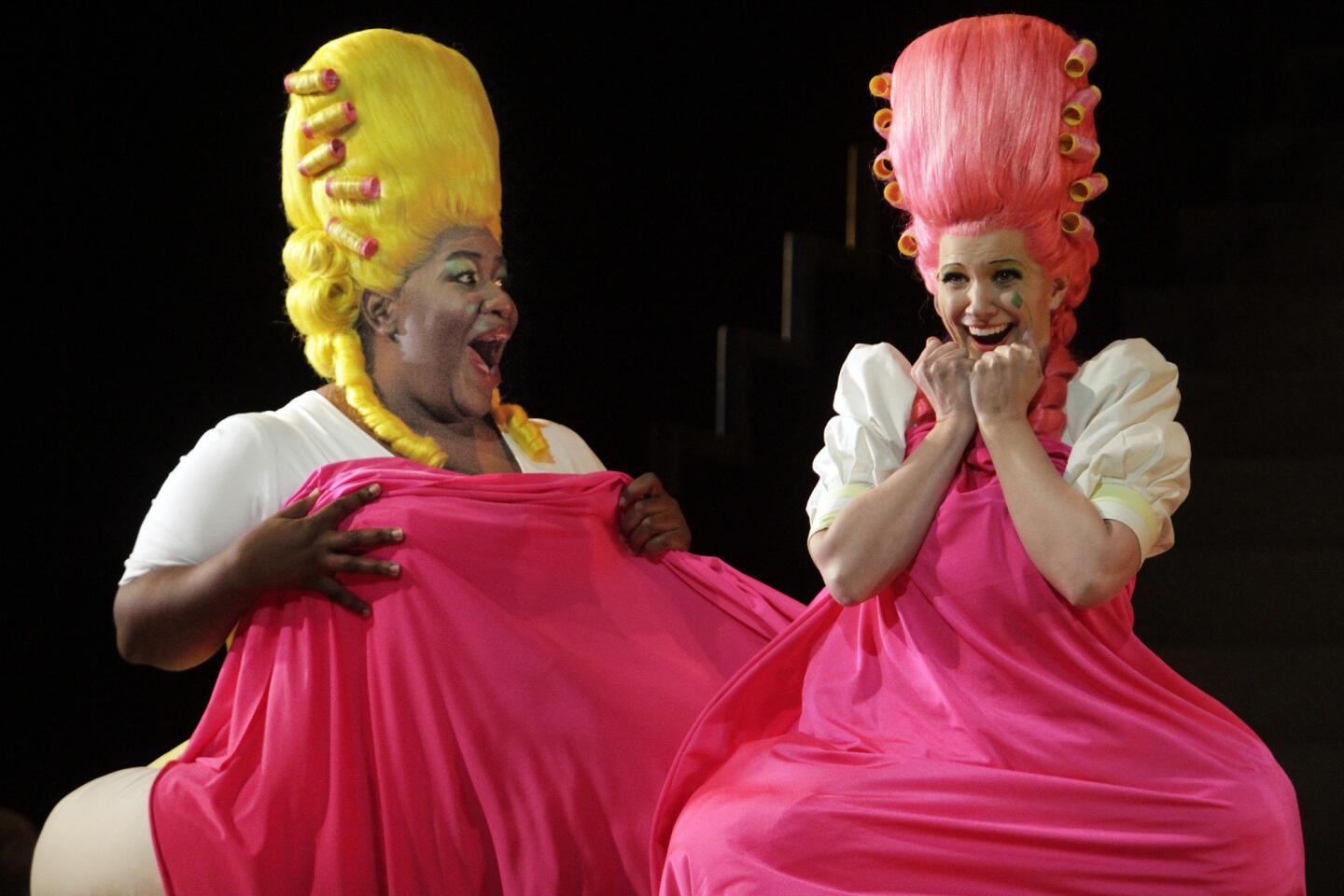
REVIEW: A new Cinderella at Los Angeles Opera makes an impression (Lawrence K. Ho / Los Angeles Times)
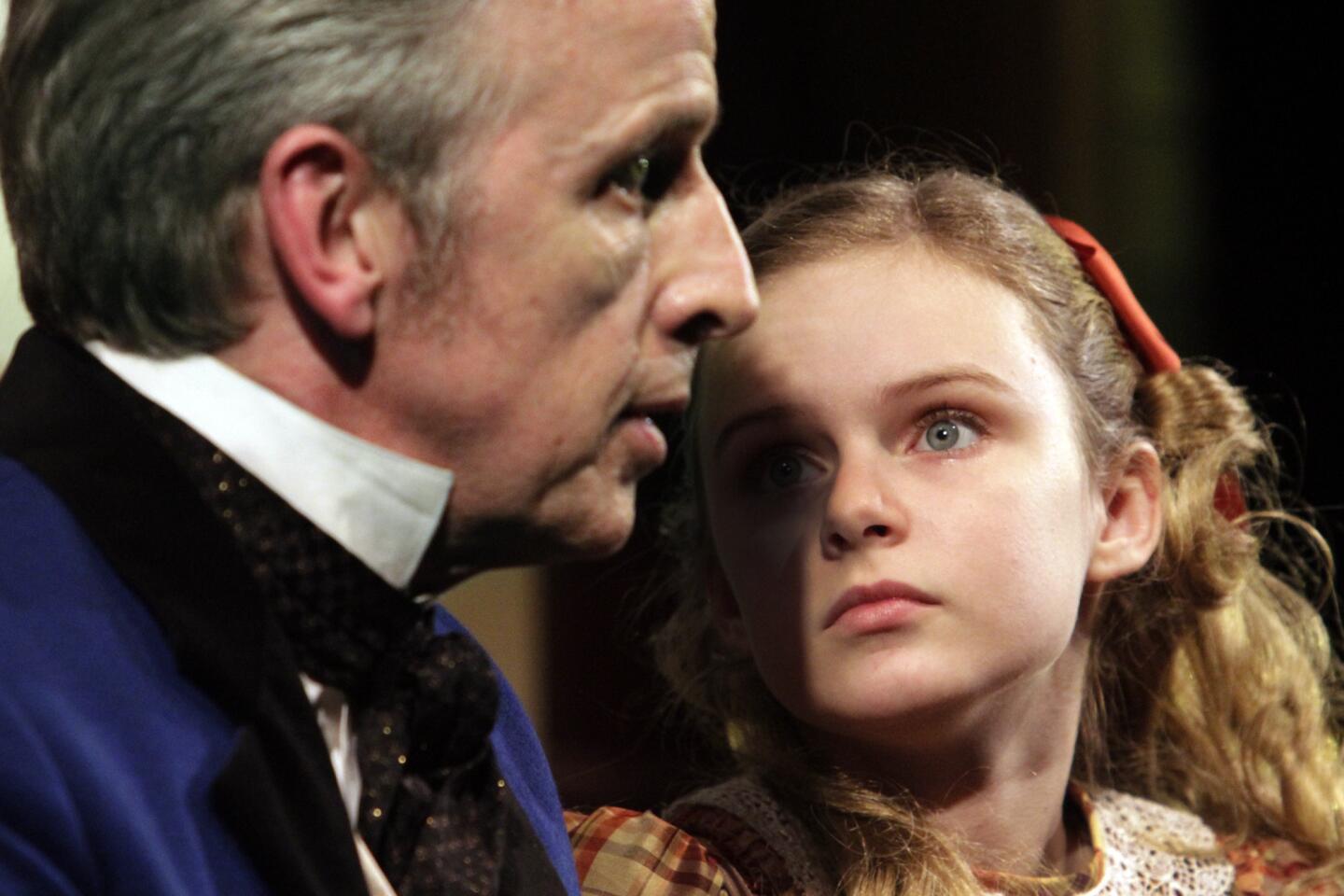
REVIEW: Ethical quandaries buzz in ‘The Nether’ (Lawrence K. Ho / Los Angeles Times)
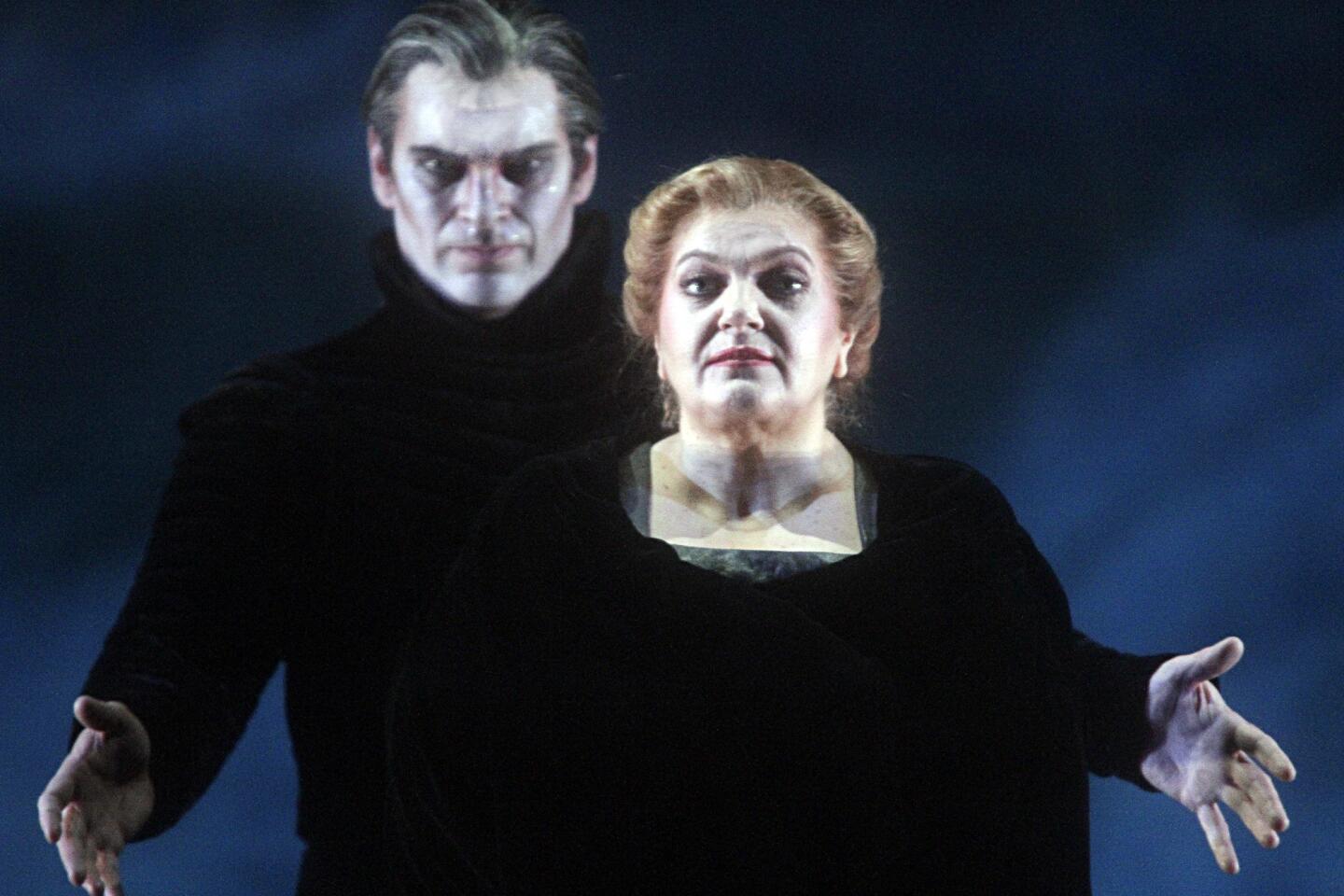
REVIEW: L.A. Opera’s ‘Flying Dutchman’ back in action (Lawrence K. Ho / Los Angeles Times)
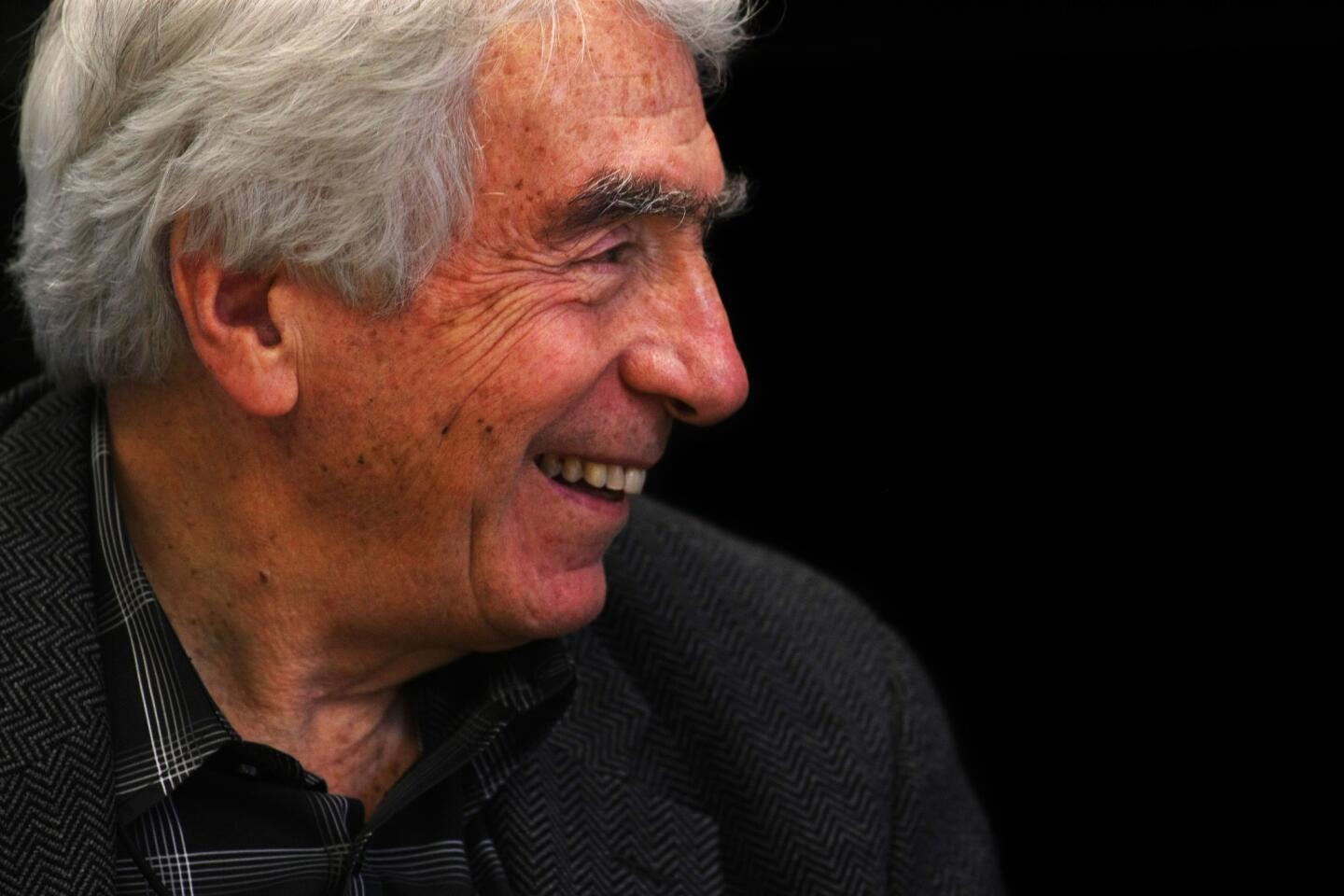
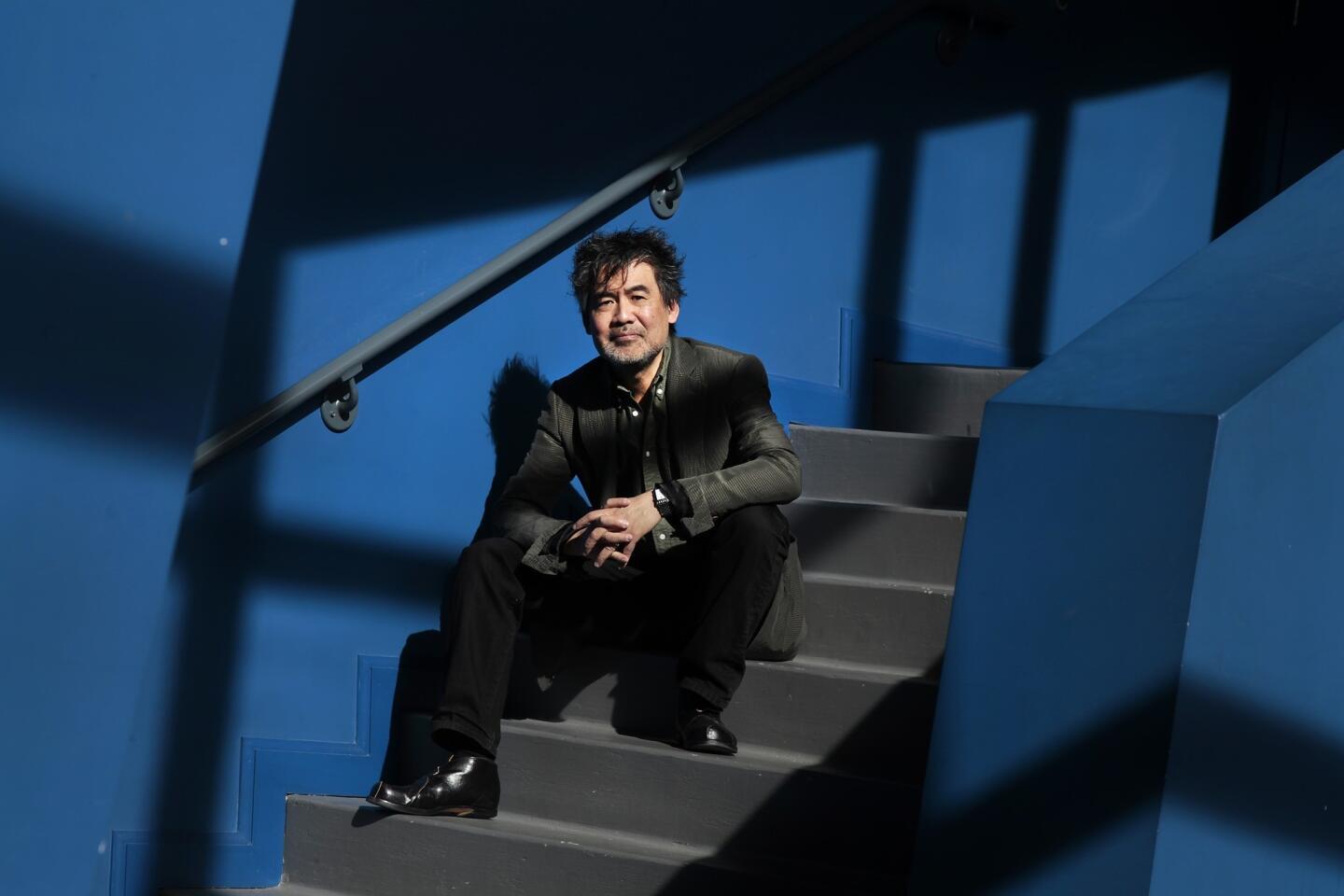
MORE: For David Henry Hwang’s ‘Chinglish,’ a case of bad timing in China (Rick Loomis / Los Angeles Times)
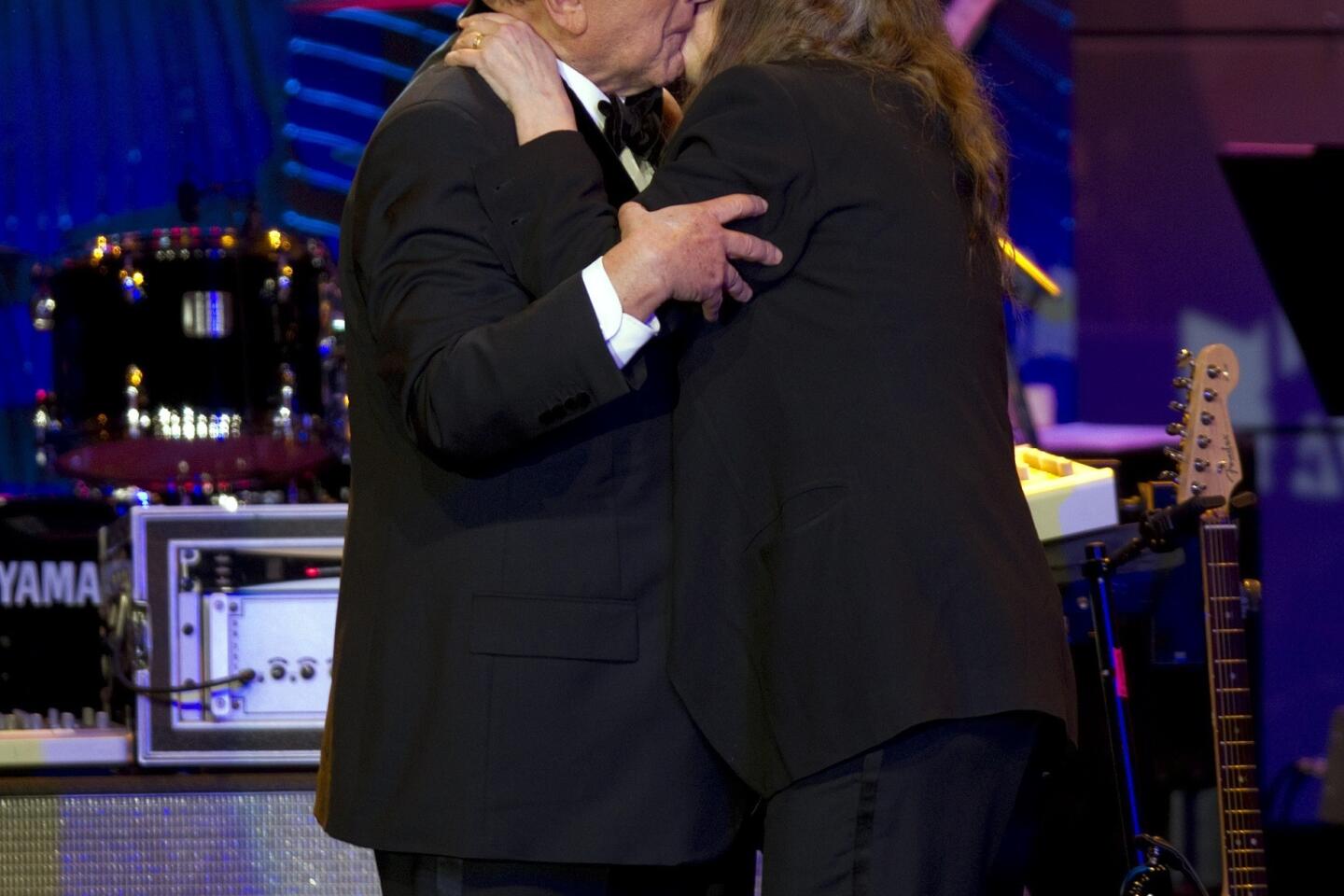
MORE: Clive Davis’ next role: Broadway producer of a new ‘My Fair Lady’ (Gina Ferazzi / Los Angeles Times)
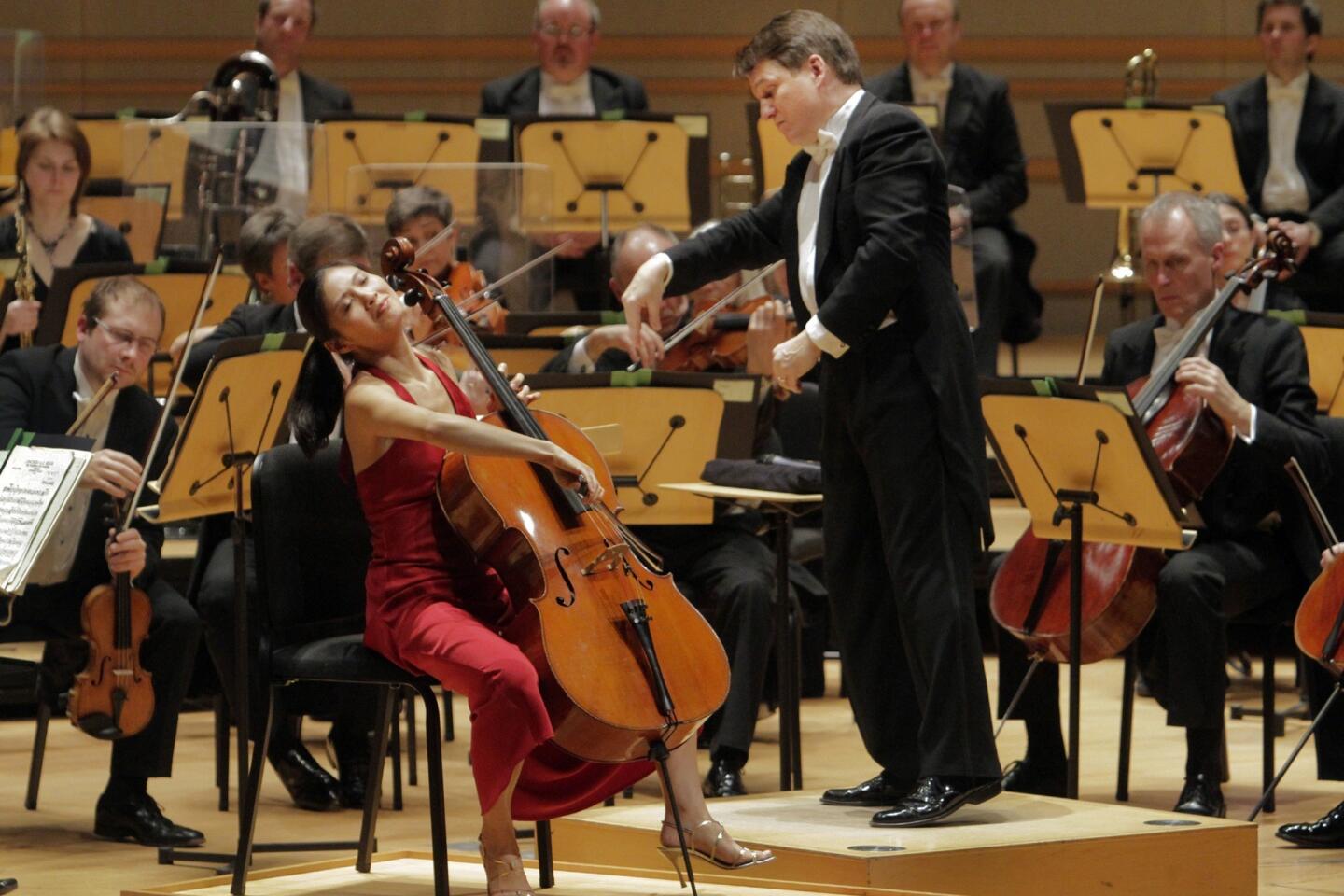
REVIEW: The usually inventive BBC Concert Orchestra goes retro (Lawrence K. Ho / Los Angeles Times)
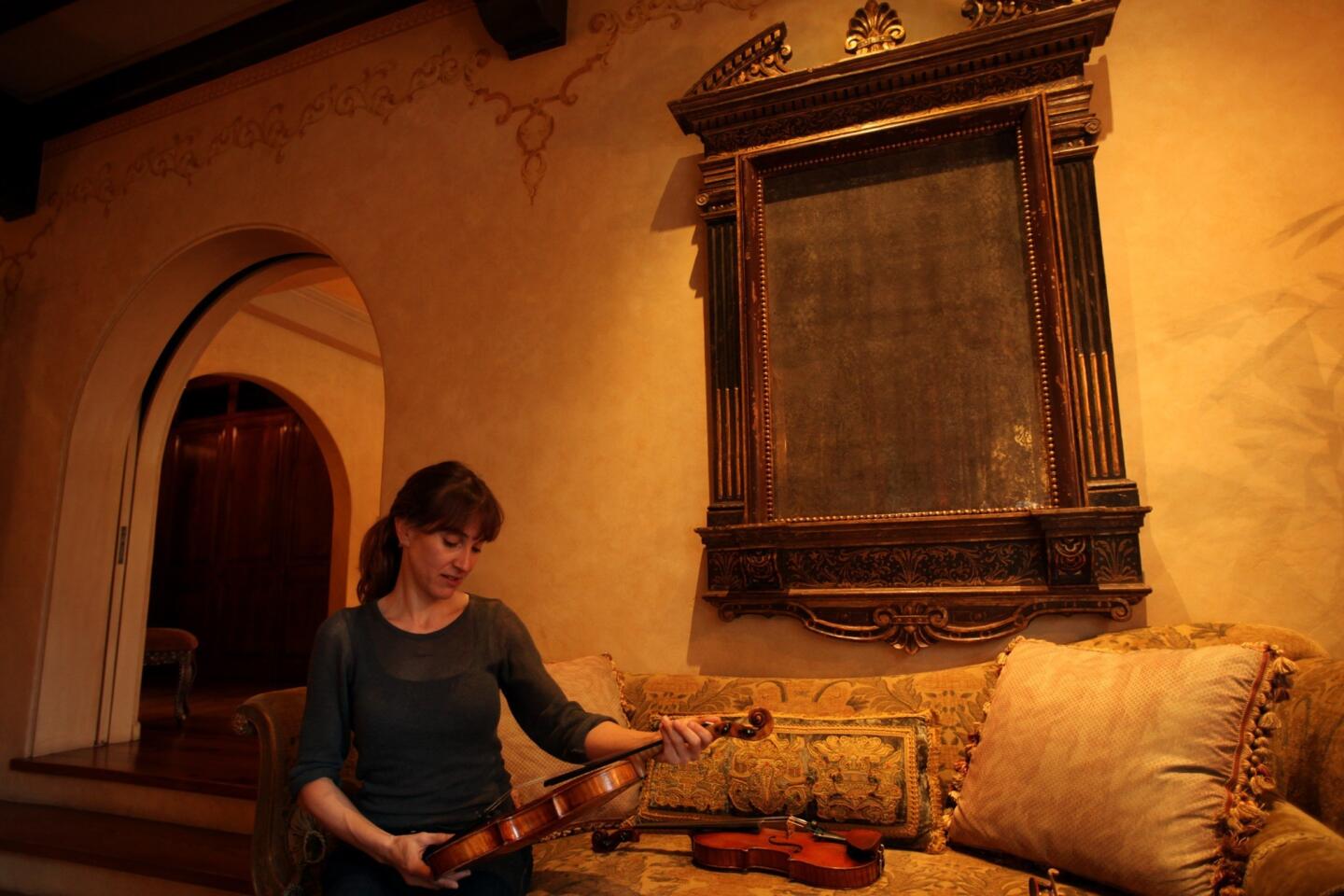
MORE: Los Angeles Chamber Orchestra violinist has a date with a Stradivarius (Francine Orr / Los Angeles Times)
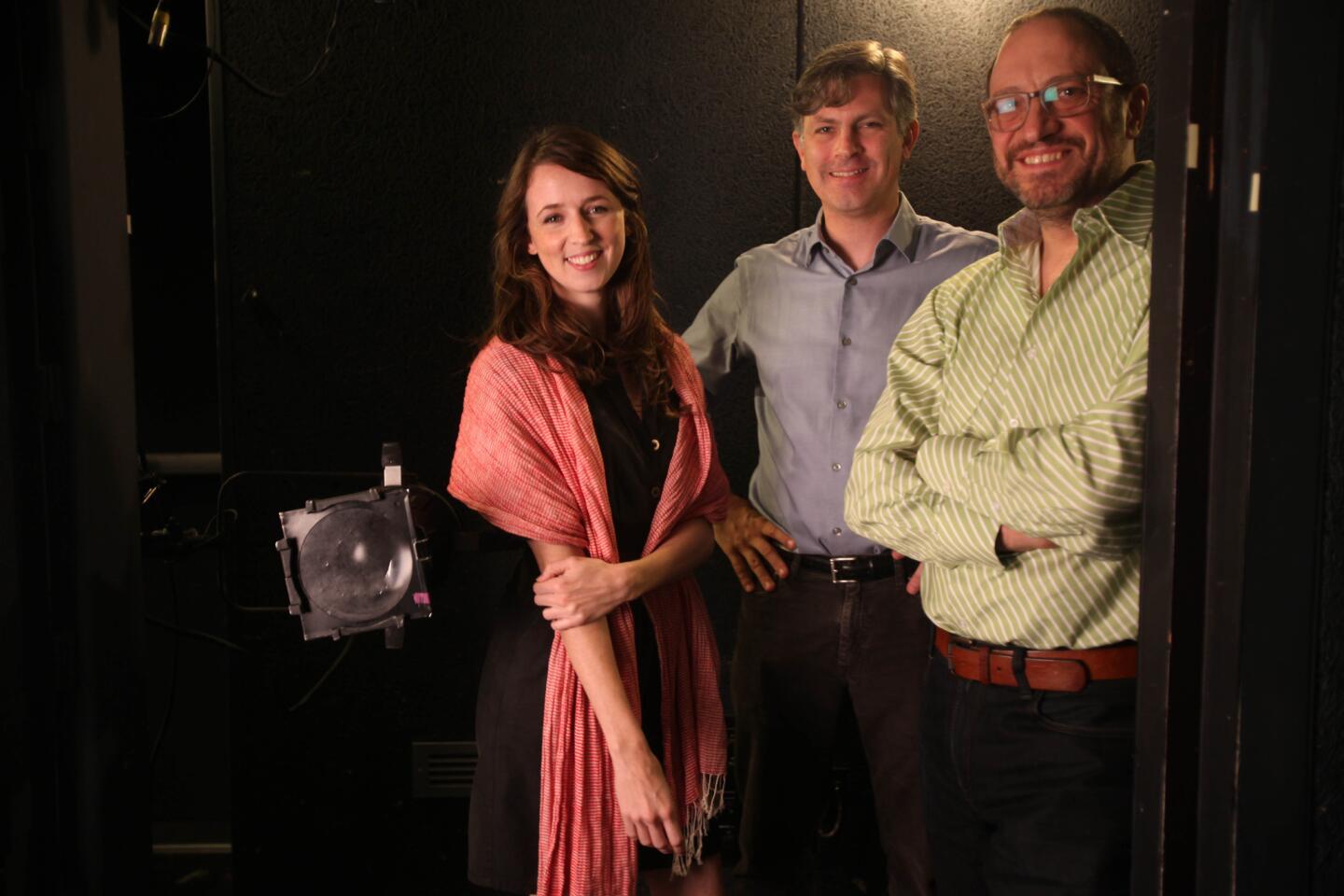
REVIEW: Elevator Repair Service’s ‘Gatz’ a rewarding marathon | Elevator Repair Service takes on the great ‘Gatz’ | Marathon plays stand the test of time (Michael Robinson Chavez / Los Angeles Times)
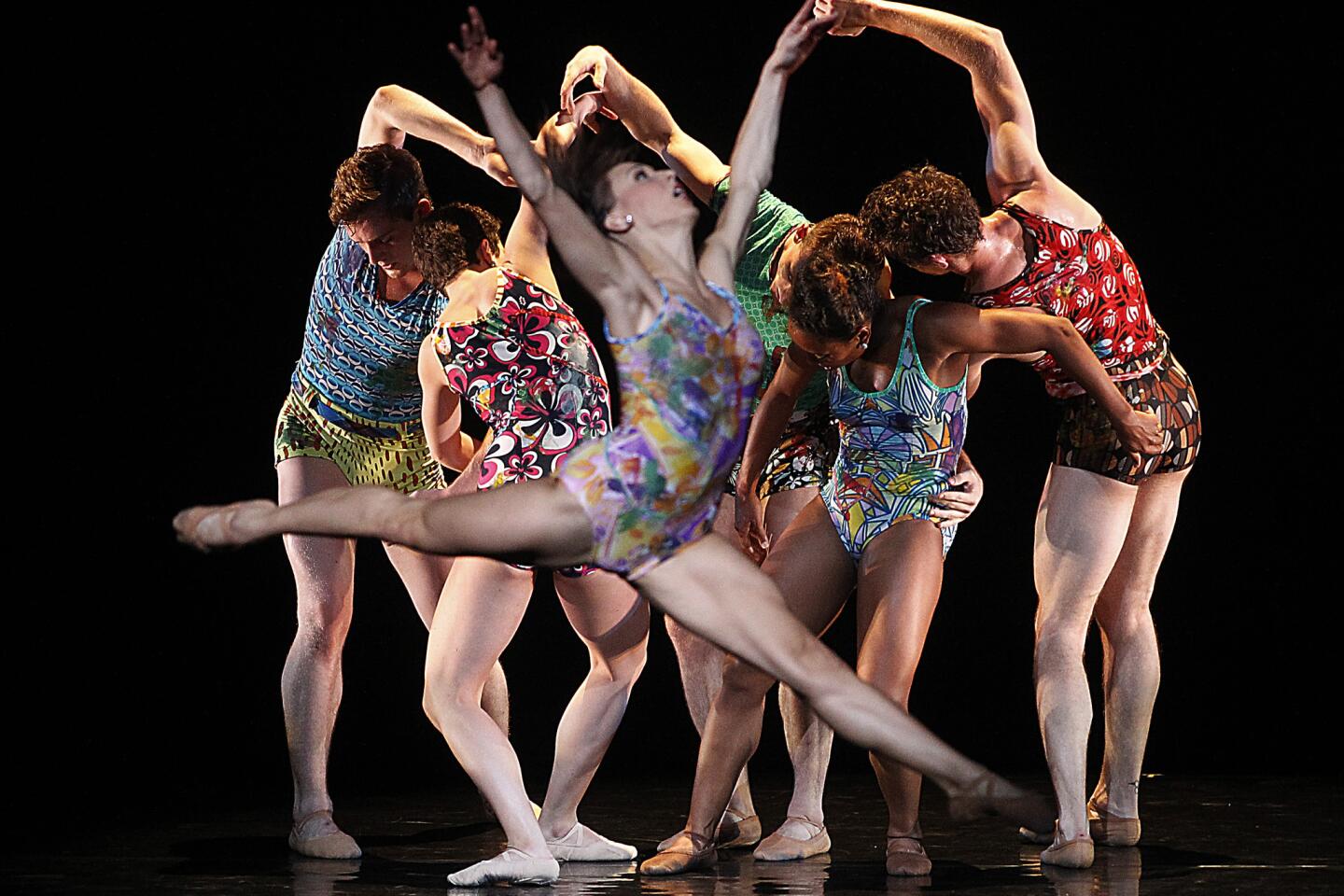
REVIEW: Trey McIntyre Project dances are both slight and potent | Trey McIntyre Project brings ‘Ways of Seeing’ to Segerstrom (Luis Cinco / Los Angeles Times)

REVIEW: Esa-Pekka Salonen and an electrifying L.A. Philharmonic | Esa-Pekka Salonen returns to L.A. with murder in mind (Matthew Lloyd / For The Times)
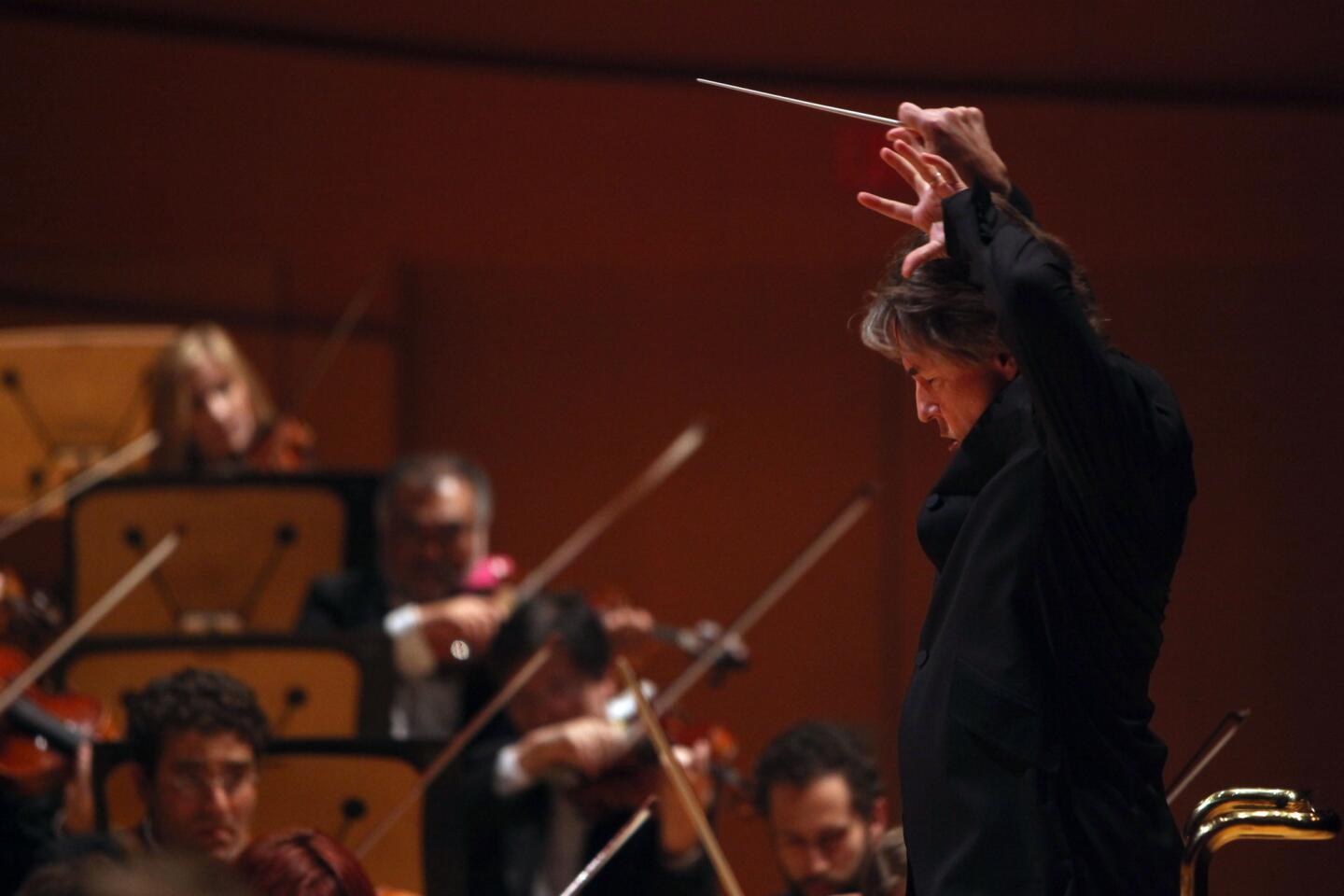
REVIEW: Esa-Pekka Salonen and an electrifying L.A. Philharmonic | Esa-Pekka Salonen returns to L.A. with murder in mind (Michael Robinson Chavez / Los Angeles Times)
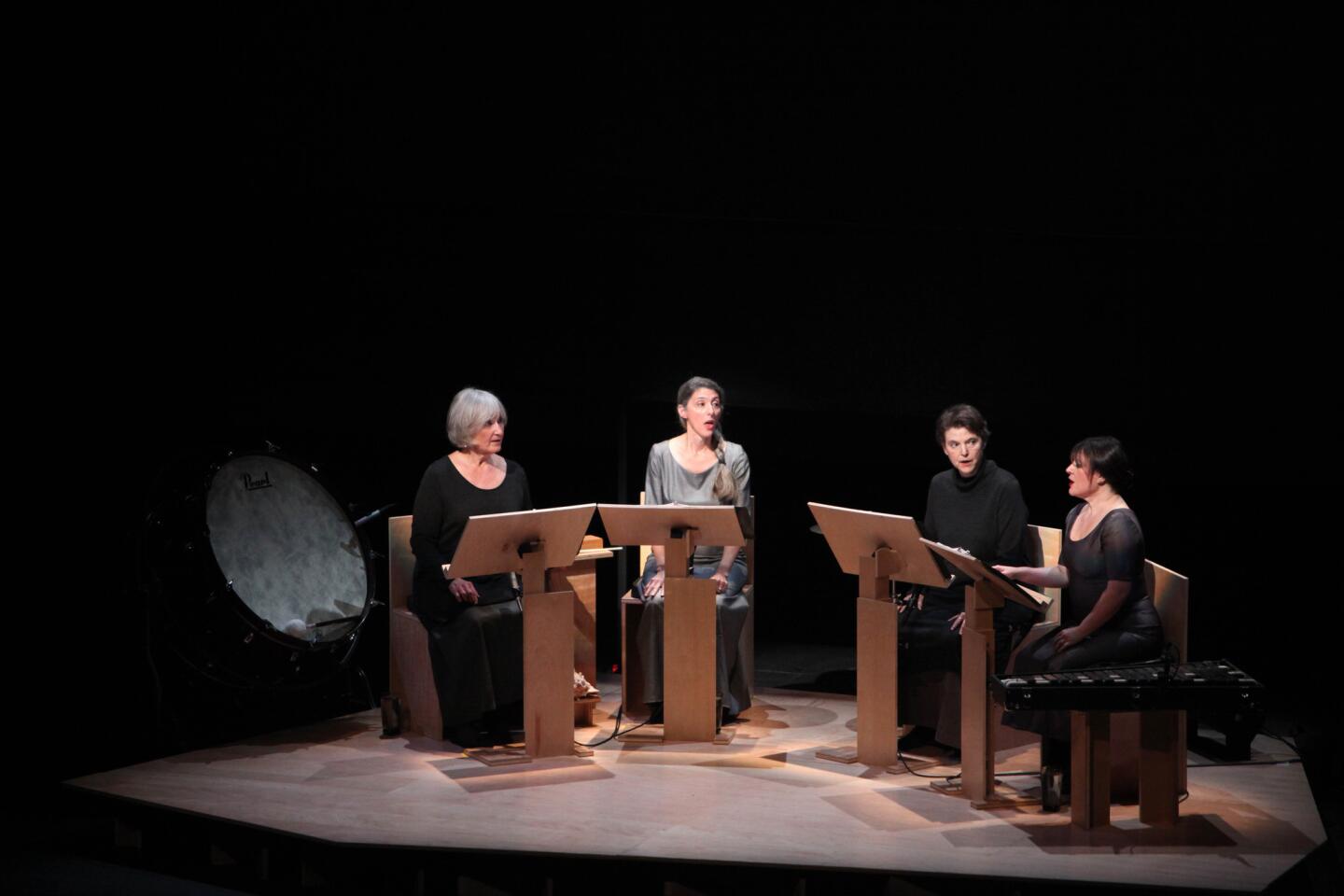
REVIEW: How David Lang’s ‘love fail’ succeeds sublimely (Michael Robinson Chavez / Los Angeles Times)
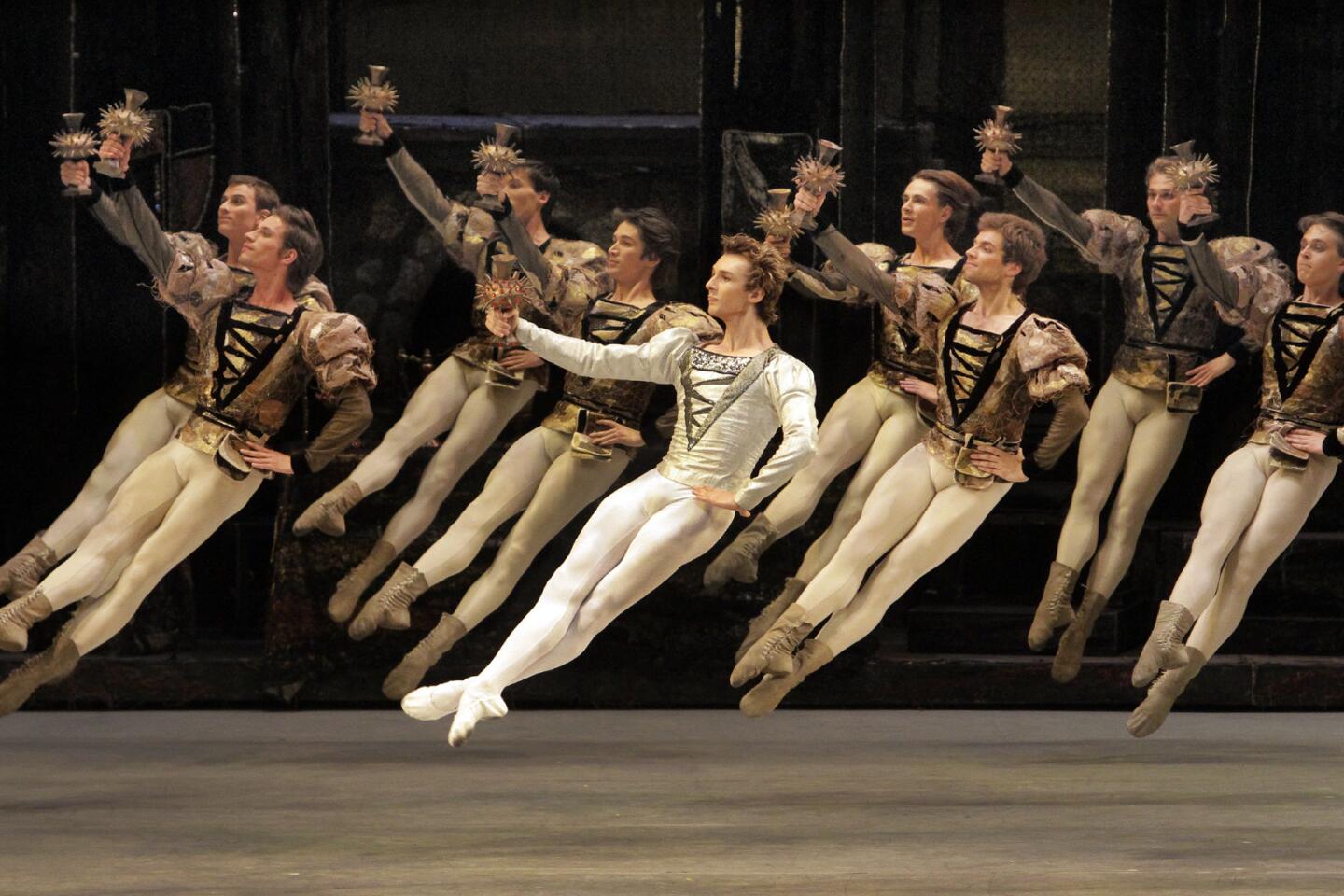
REVIEW: Bolshoi’s ‘Lake’ is sometimes choppy, sometimes smooth | Photos (Lawrence K. Ho / Los Angeles Times)
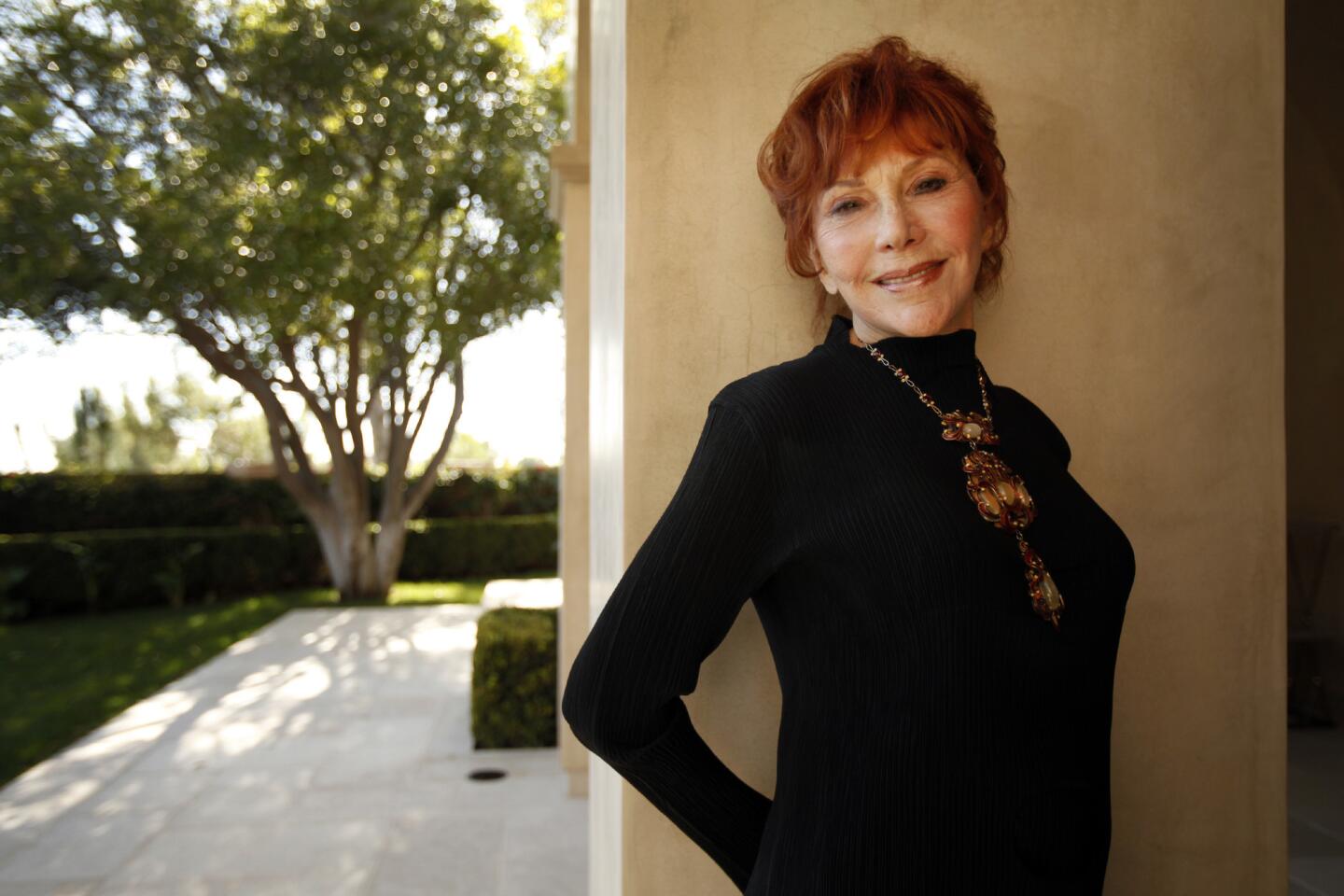
MORE: Glorya Kaufman gives USC millions to build a dance school (Al Seib / Los Angeles Times)
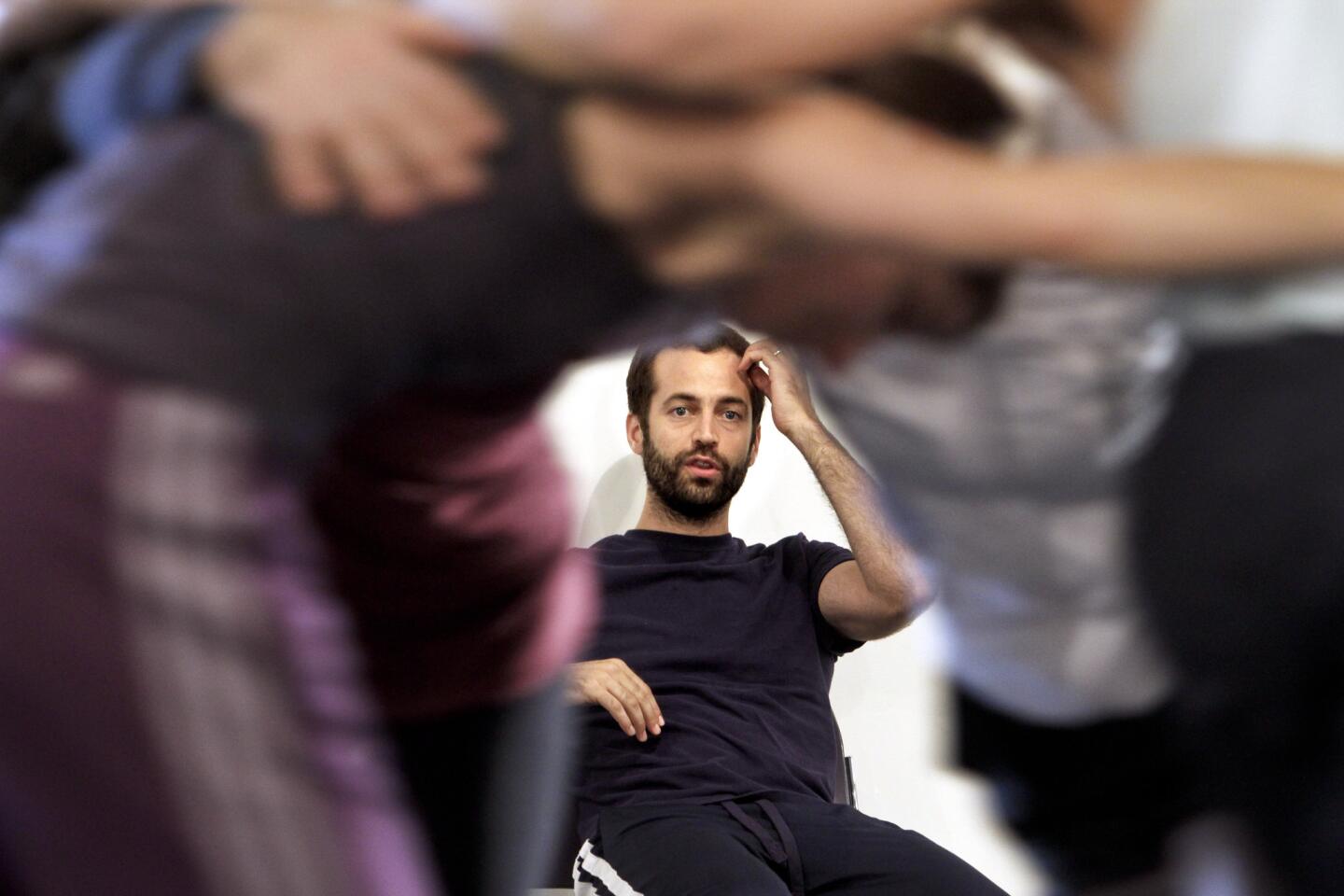
MORE: Benjamin Millepied gets moving in Los Angeles | Photos | Review (Ricardo DeAratanha / Los Angeles Times)
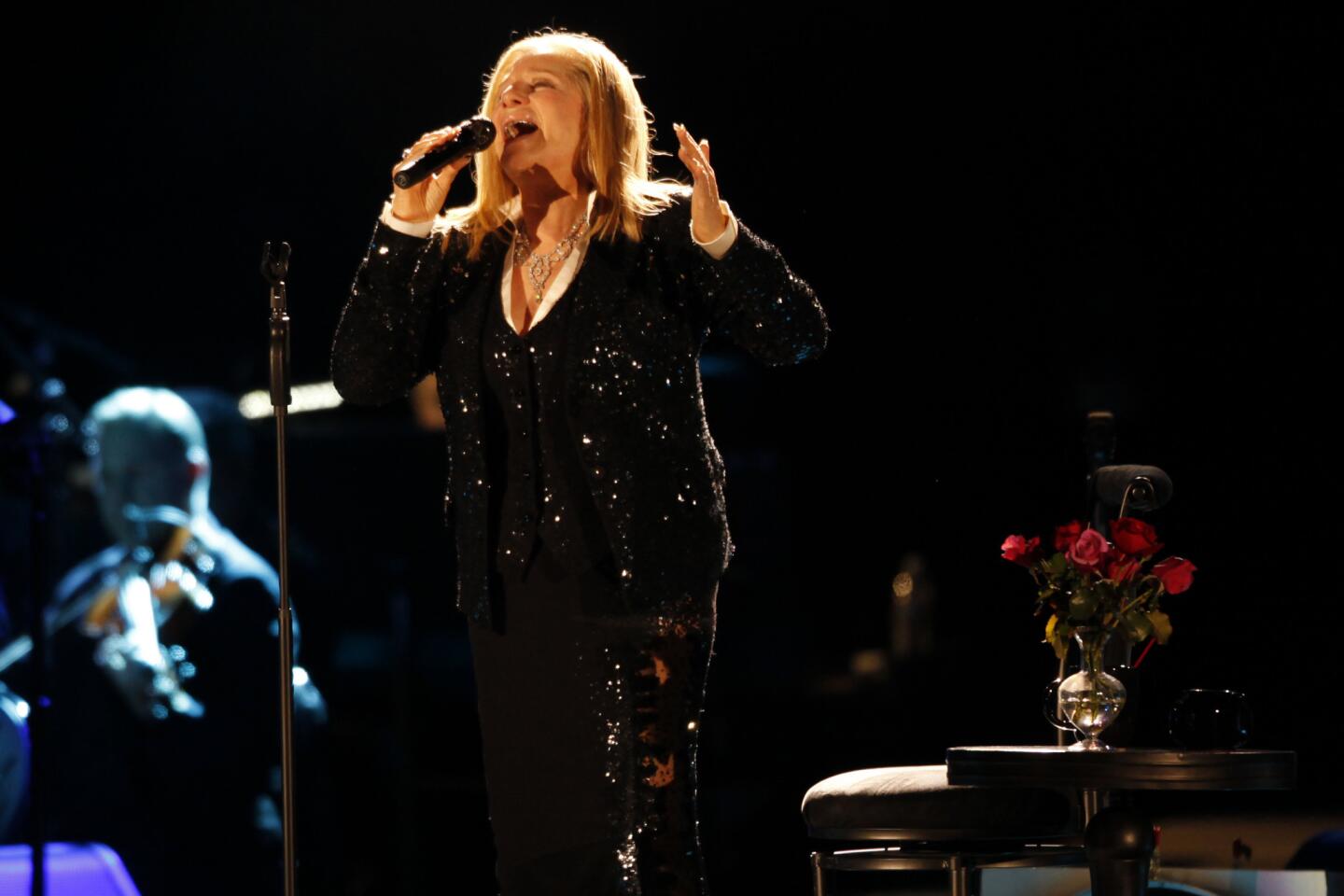
REVIEW: Barbra Streisand puts the Hollywood Bowl under her spell (Michael Robinson Chavez / Los Angeles Times)
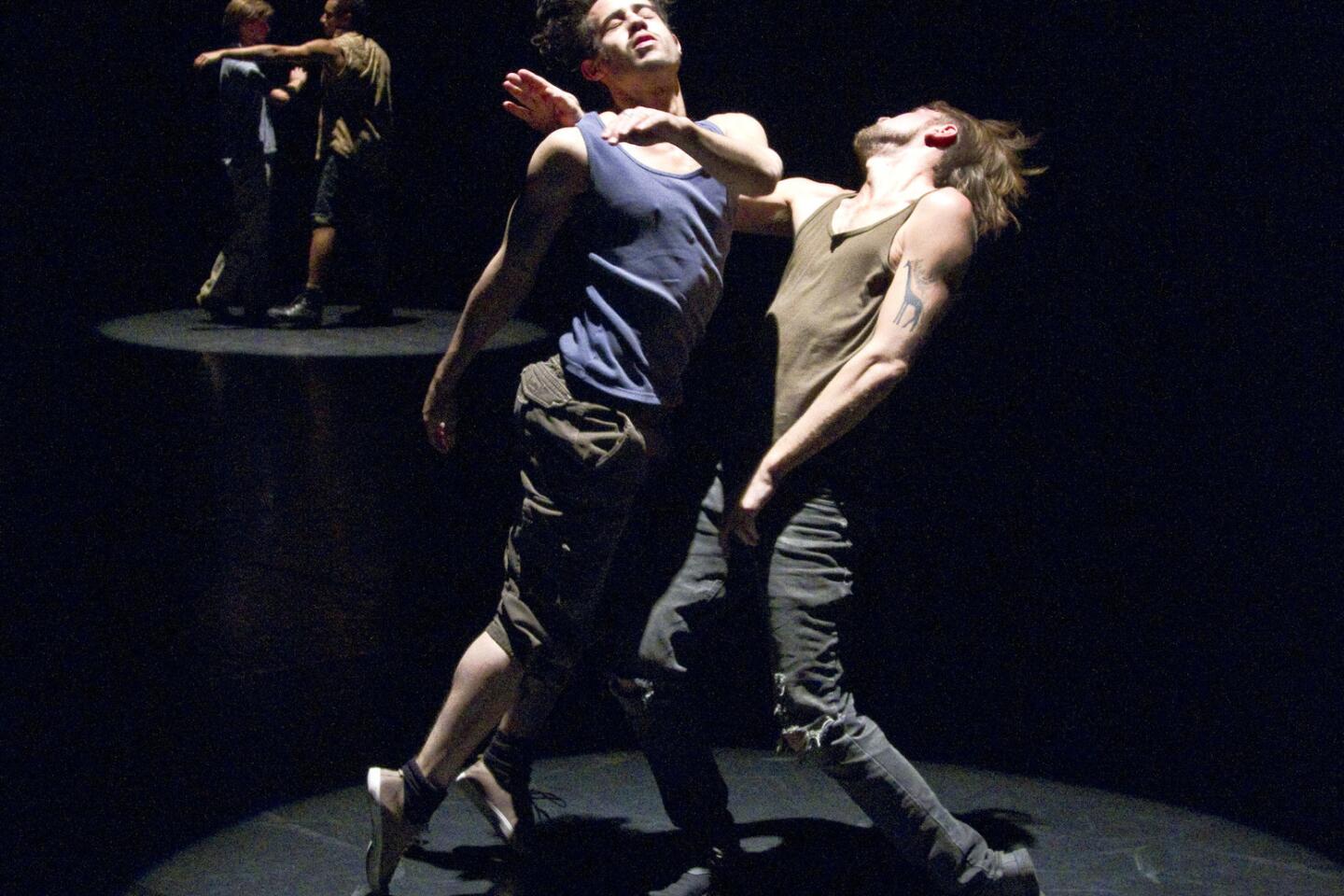
REVIEW: Desire and sexual politics whirl among ‘Them’ (Ricardo DeAratanha / Los Angeles Times)
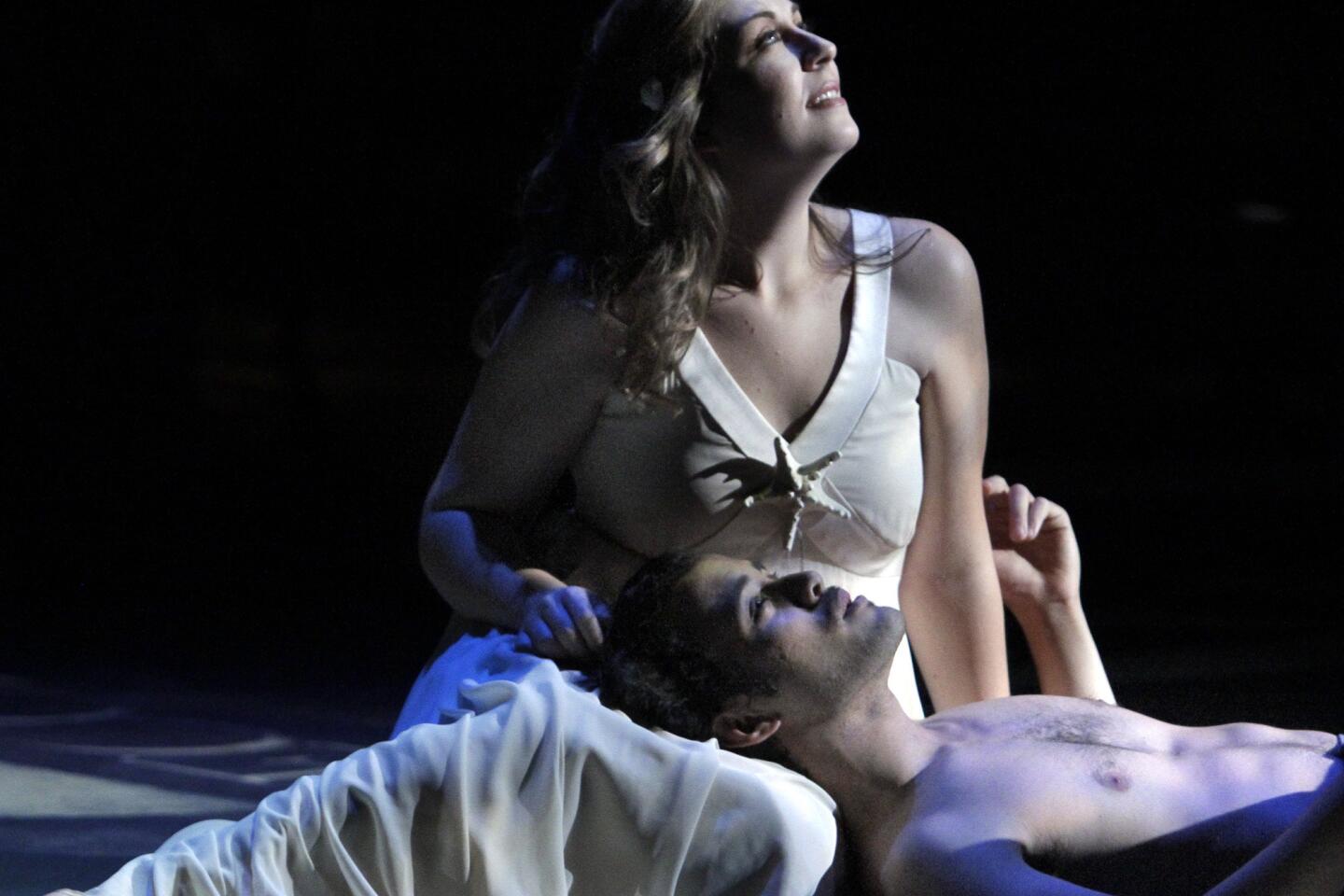
REVIEW: Two ways to capture magic of ‘The Tempest’ | Photos (Lawrence K. Ho / Los Angeles Times)
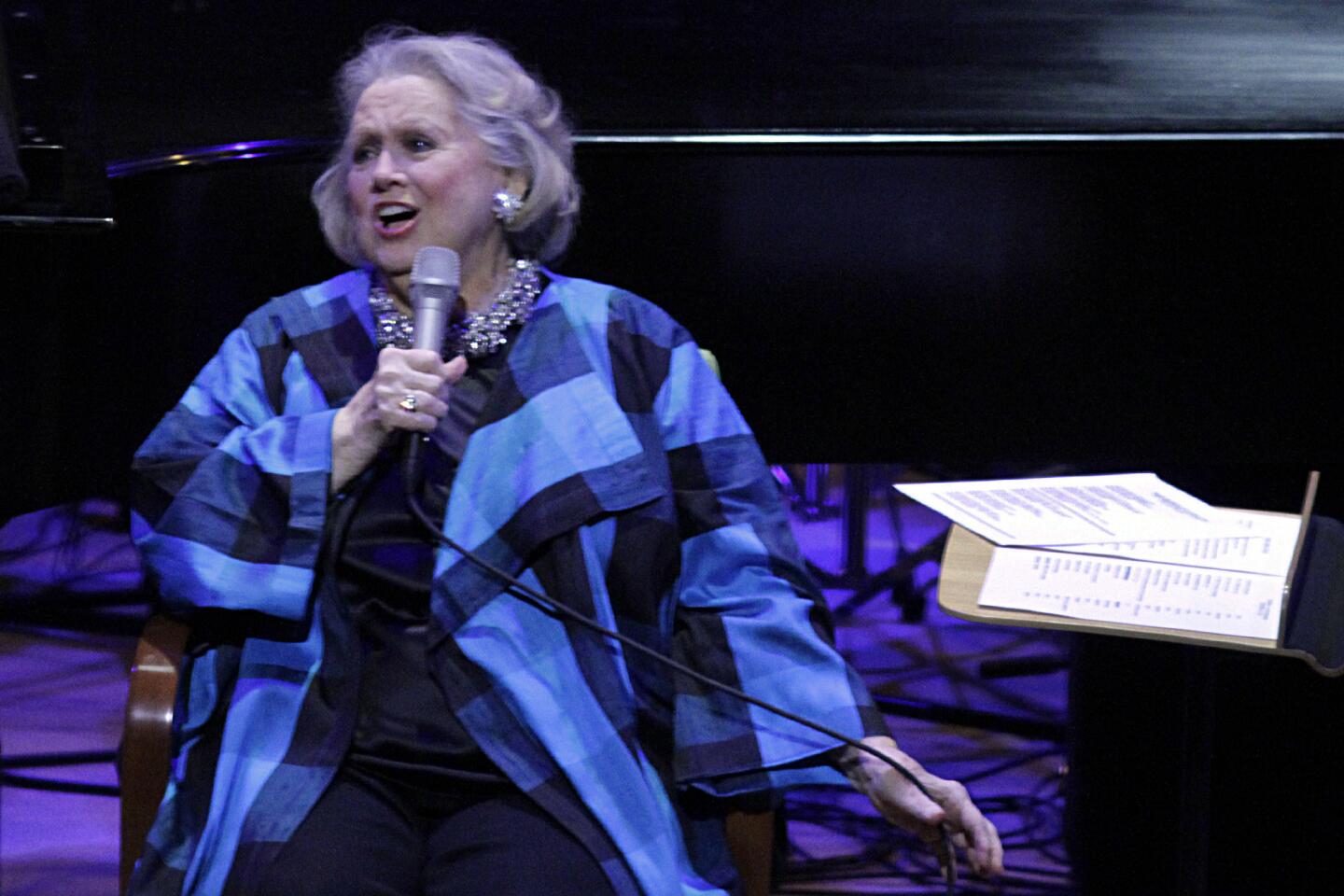
REVIEW: Barbara Cook rejuvenates song standards (Lawrence K. Ho / Los Angeles Times)
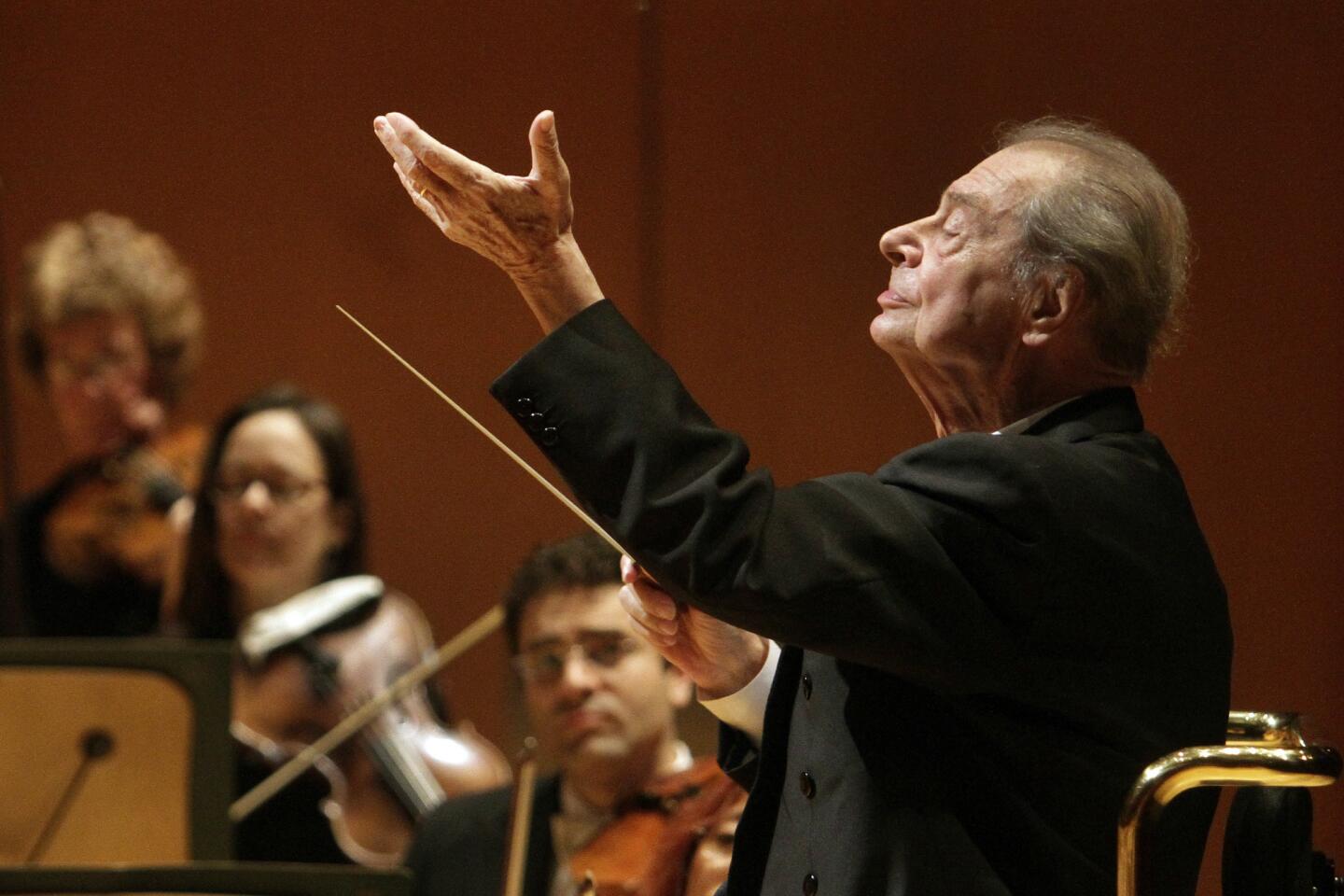
MORE: Rafael Fruhbeck de Burgos, Lynn Harrell at Disney Hall (Lawrence K. Ho / Los Angeles Times)
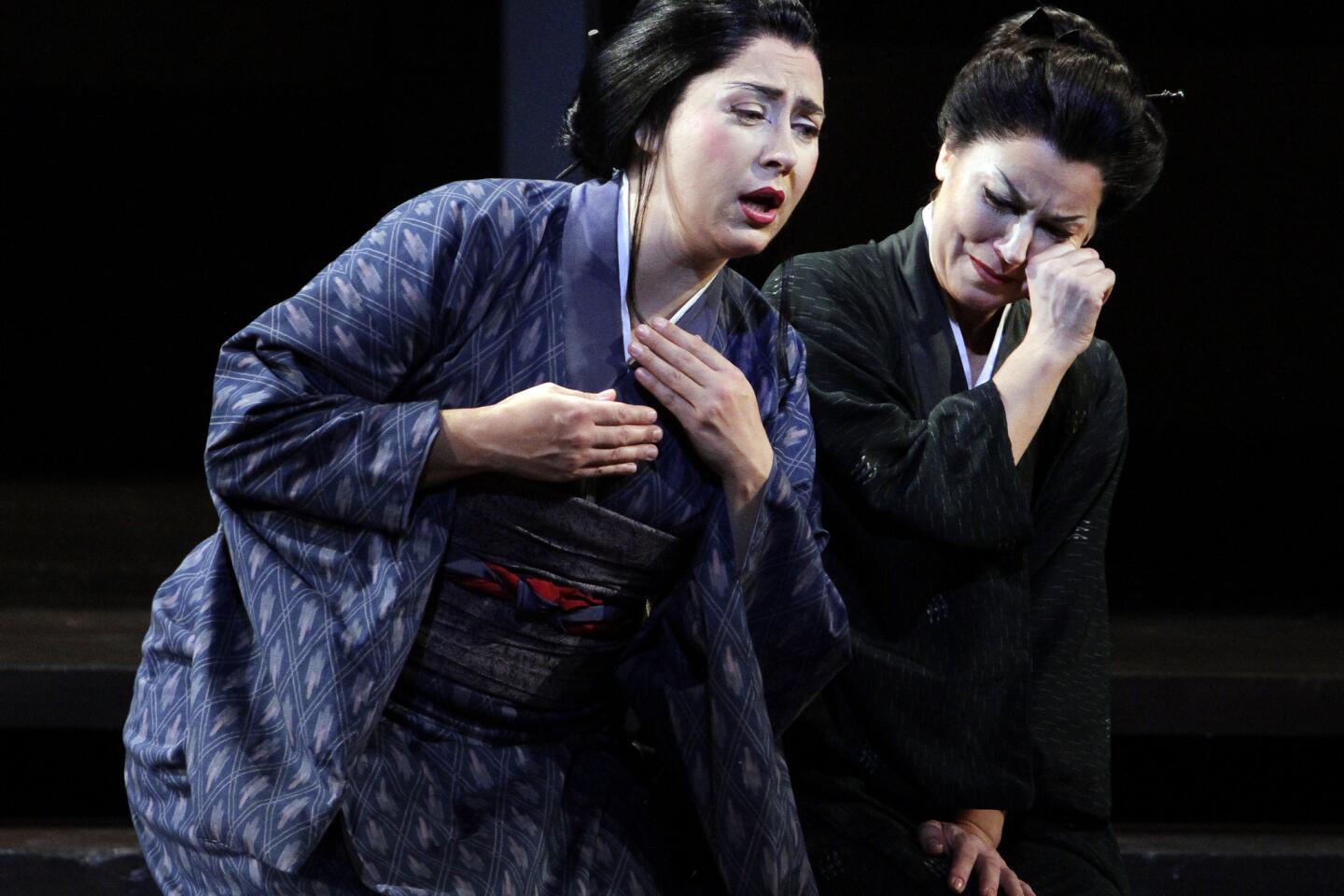
REVIEW: Some bright spots in a lesser ‘Madame Butterfly’ | Photos (Lawrence K. Ho / Los Angeles Times)
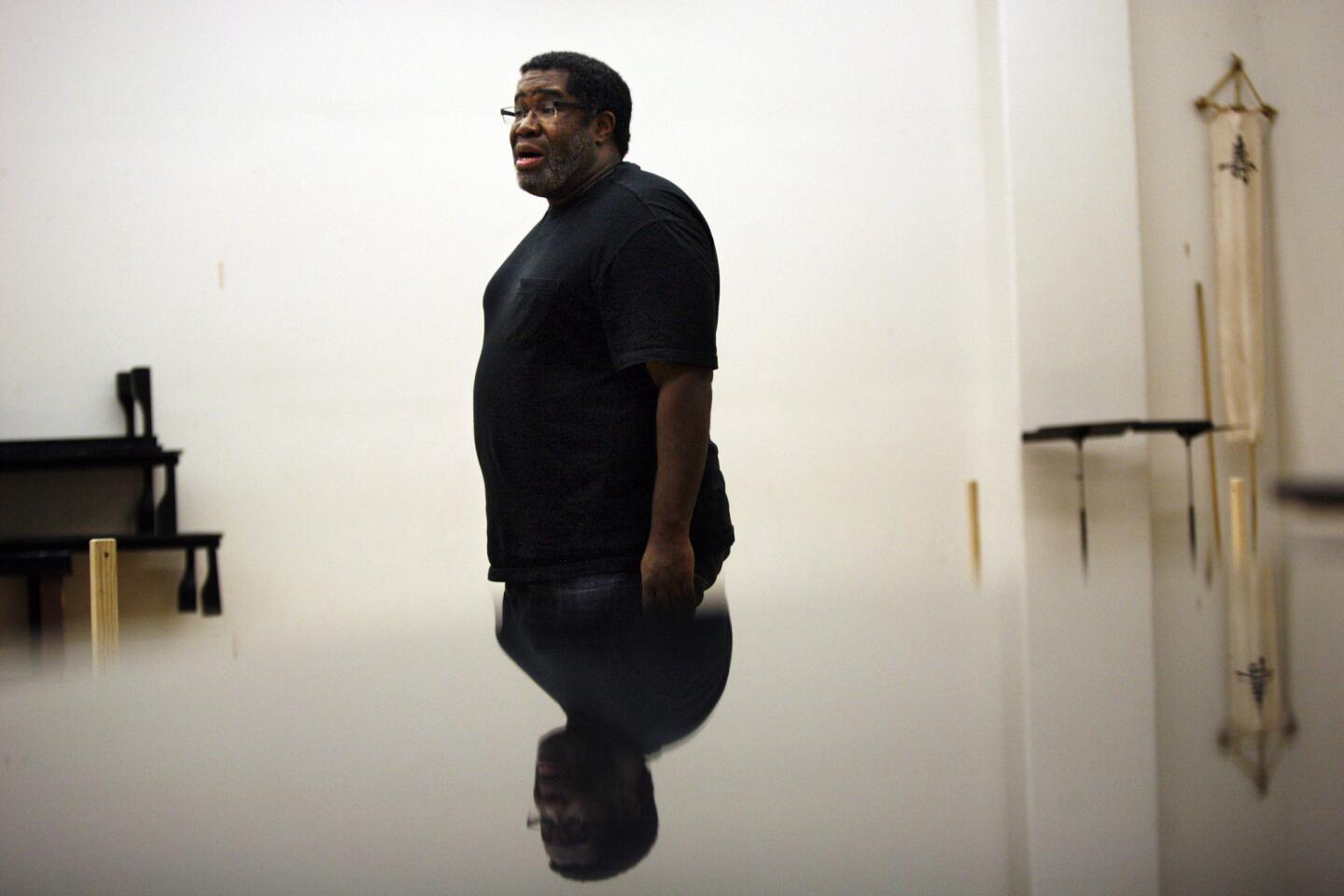
MORE: Opera’s ever-inquisitive Eric Owens is in high demand (Bob Chamberlin / Los Angeles Times)
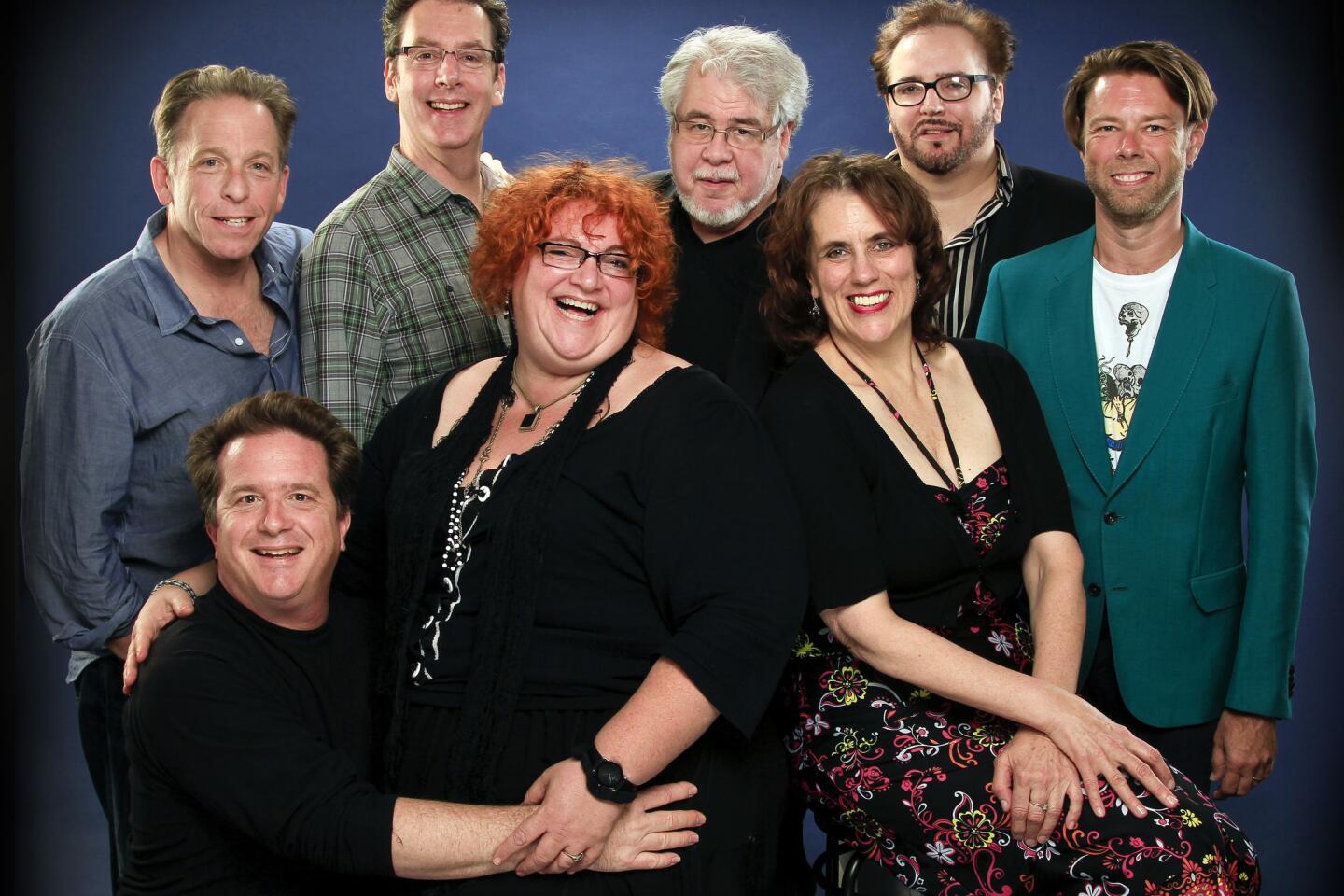
Critic’s Notebook: The joys and challenges of the L.A. small-theater scene (Ricardo DeAratanha / Los Angeles Times)
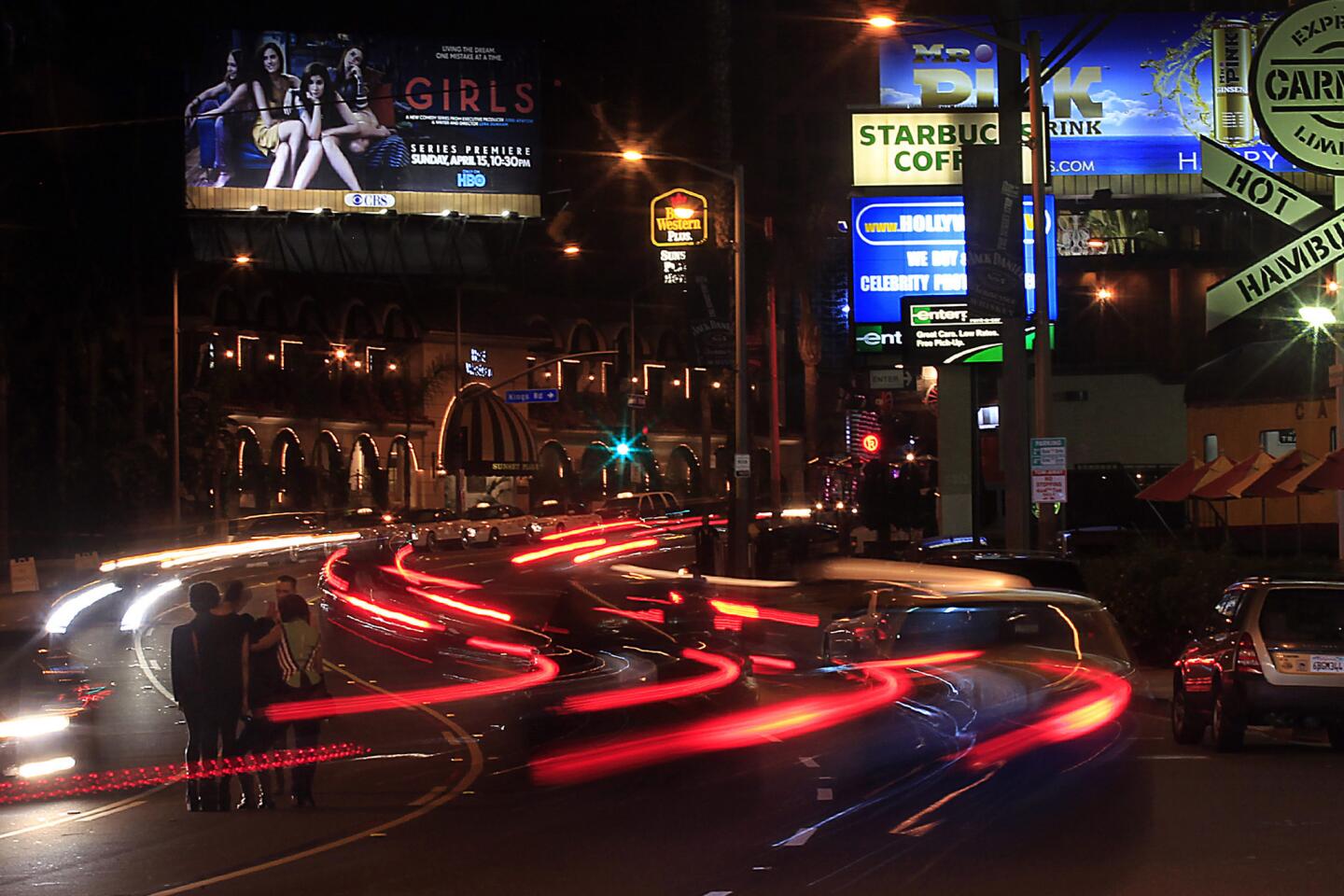
MORE: Christopher Hawthorne’s On the Boulevards Project (Luis Cinco / Los Angeles Times)
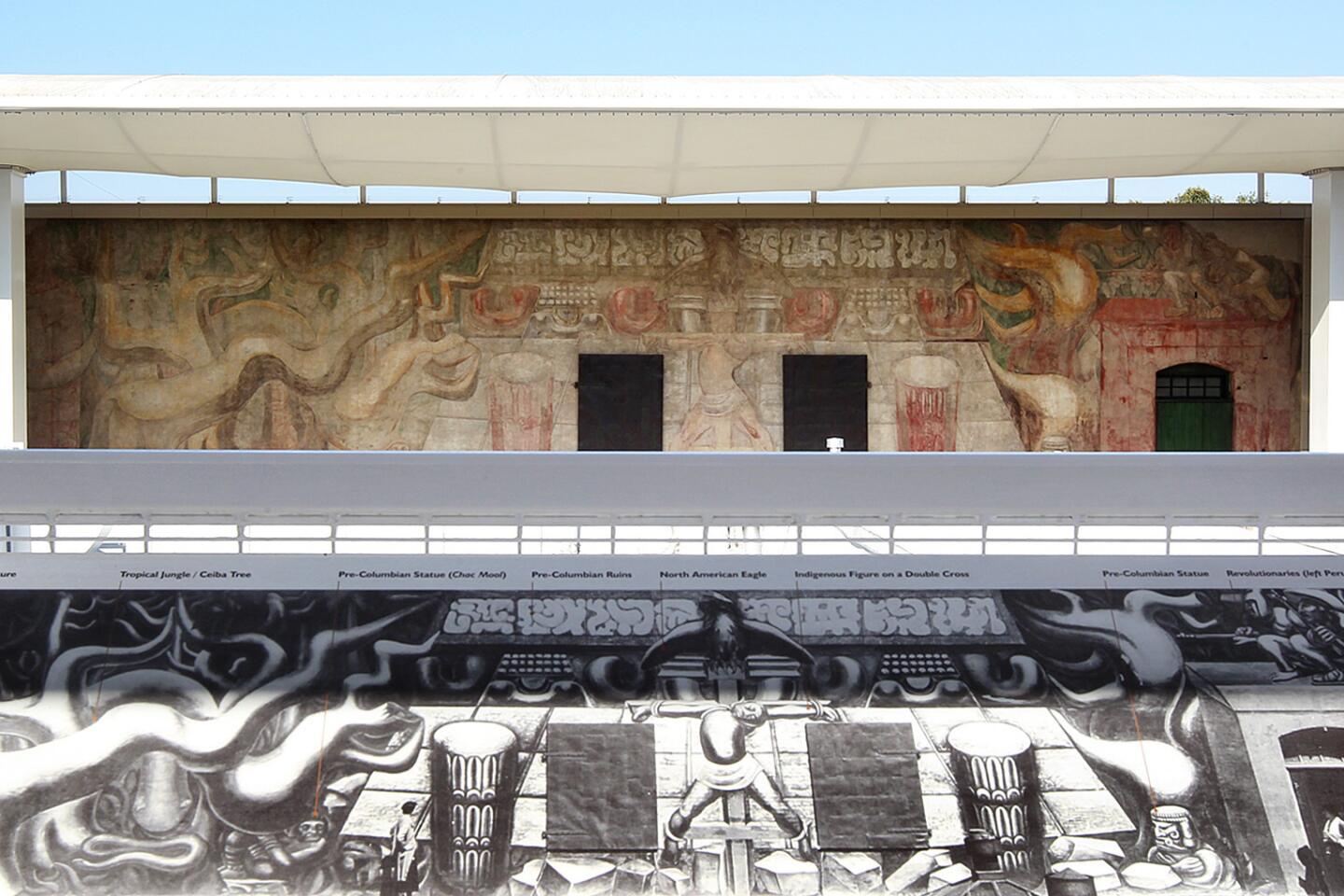
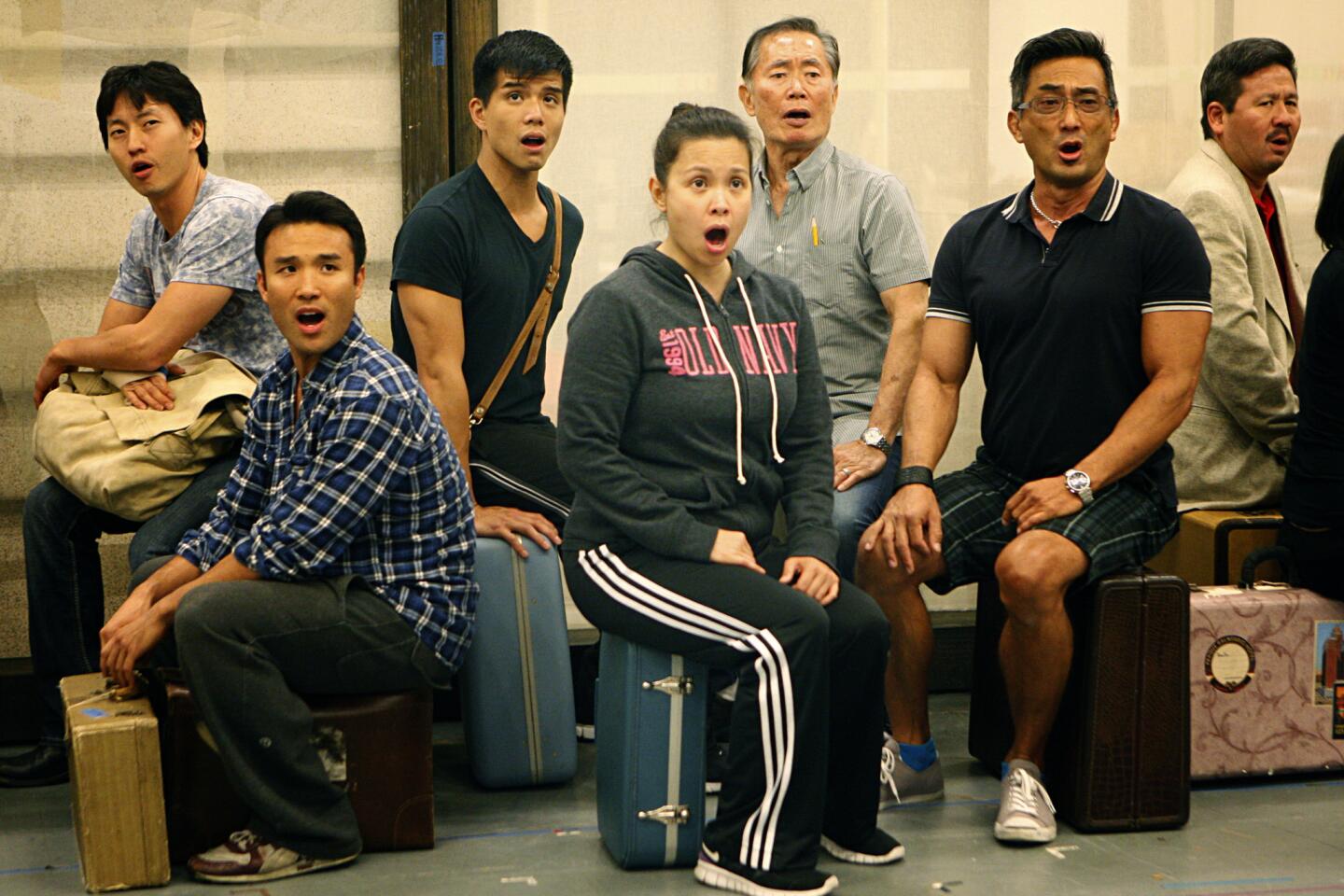
MORE: George Takei builds on legacy with ‘Allegiance’ at the Old Globe (Don Bartletti / Los Angeles Times)
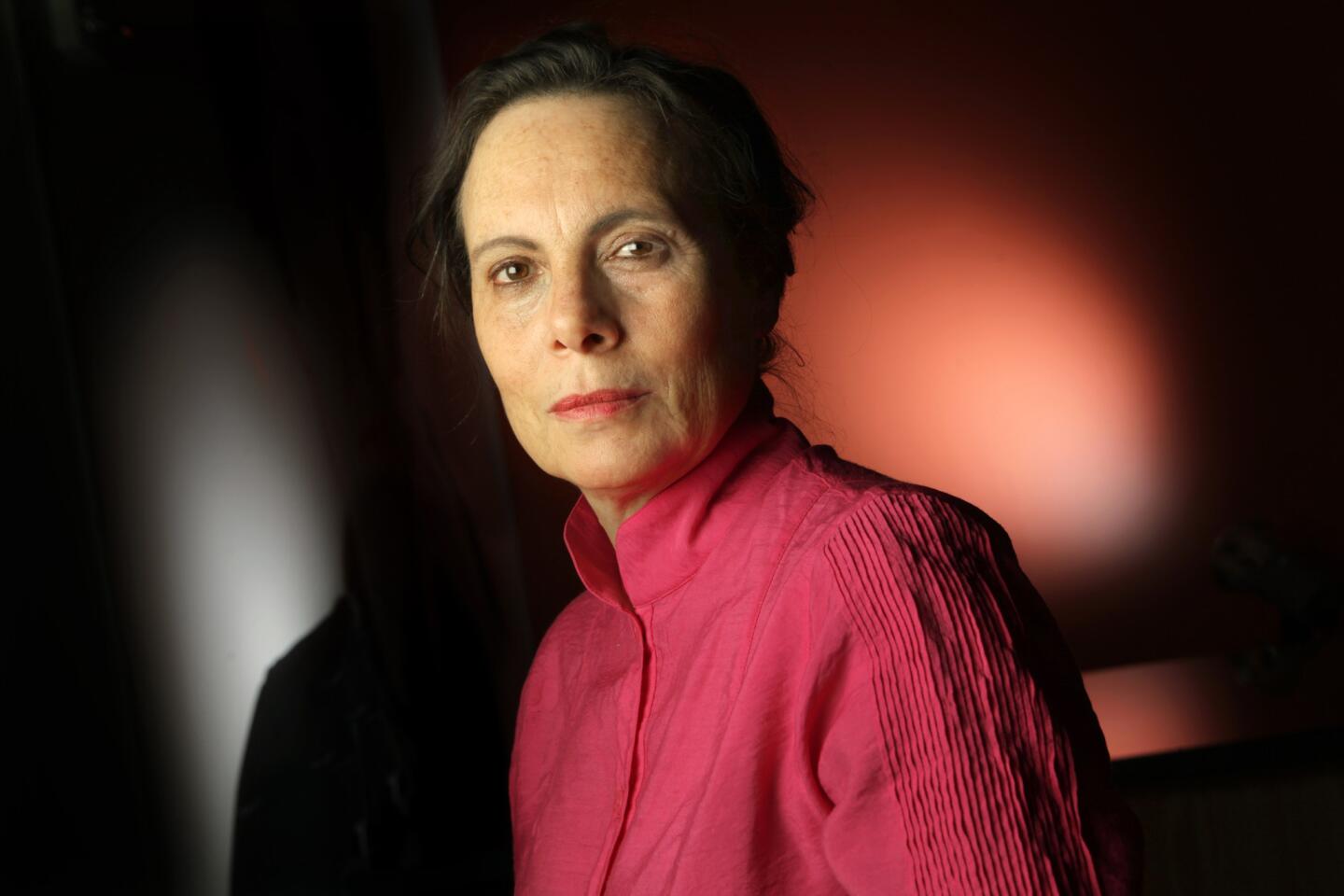
MORE: Emily Mann a natural to direct ‘Streetcar’ and ‘The Convert’ (Carolyn Cole / Los Angeles Times)

REVIEW: Lackluster Expo Line reflects Metro’s weak grasp of design (Mark Boster / Los Angeles Times)
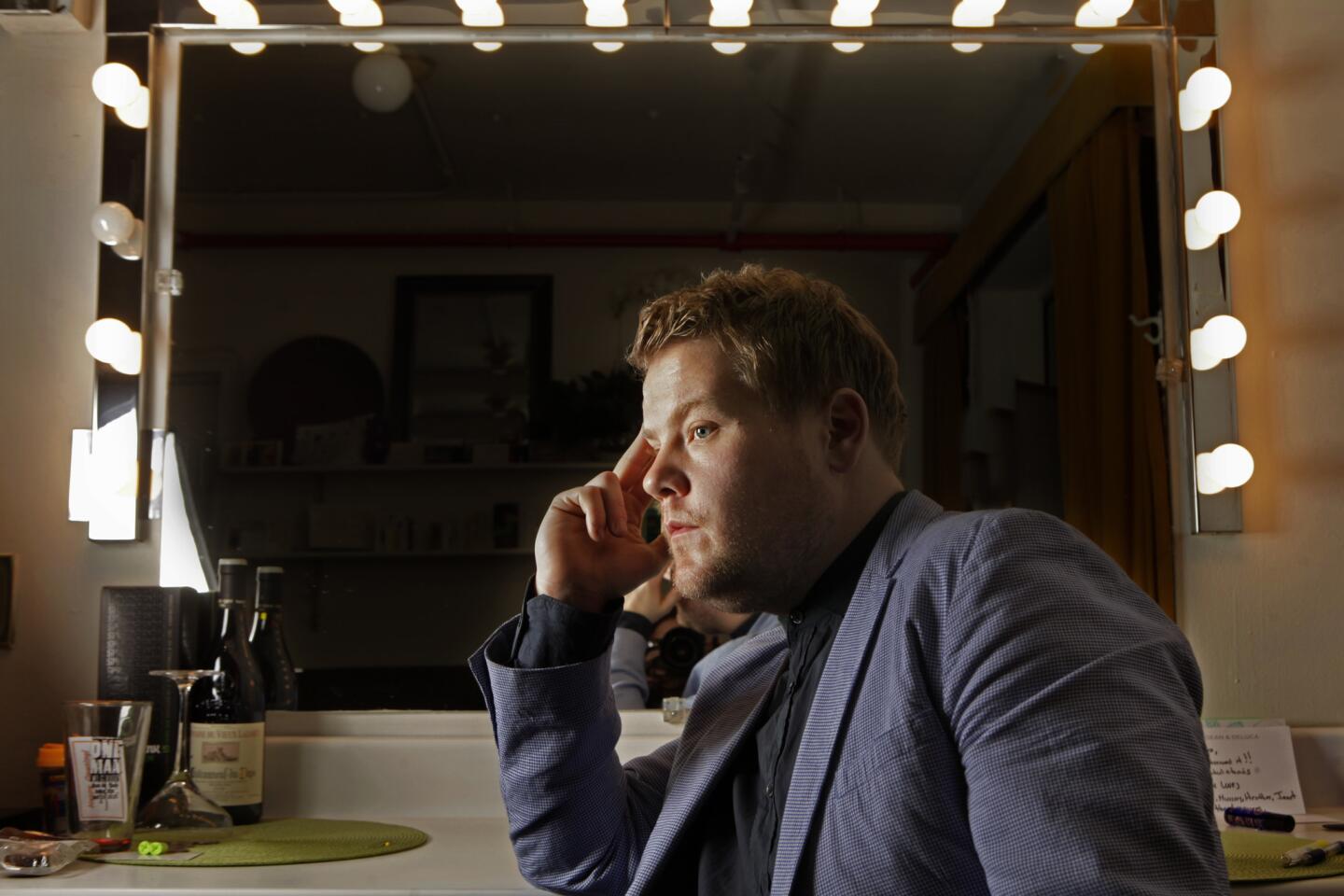
MORE: James Corden, ‘One Man’ and a plethora of talent (Carolyn Cole / Los Angeles Times)
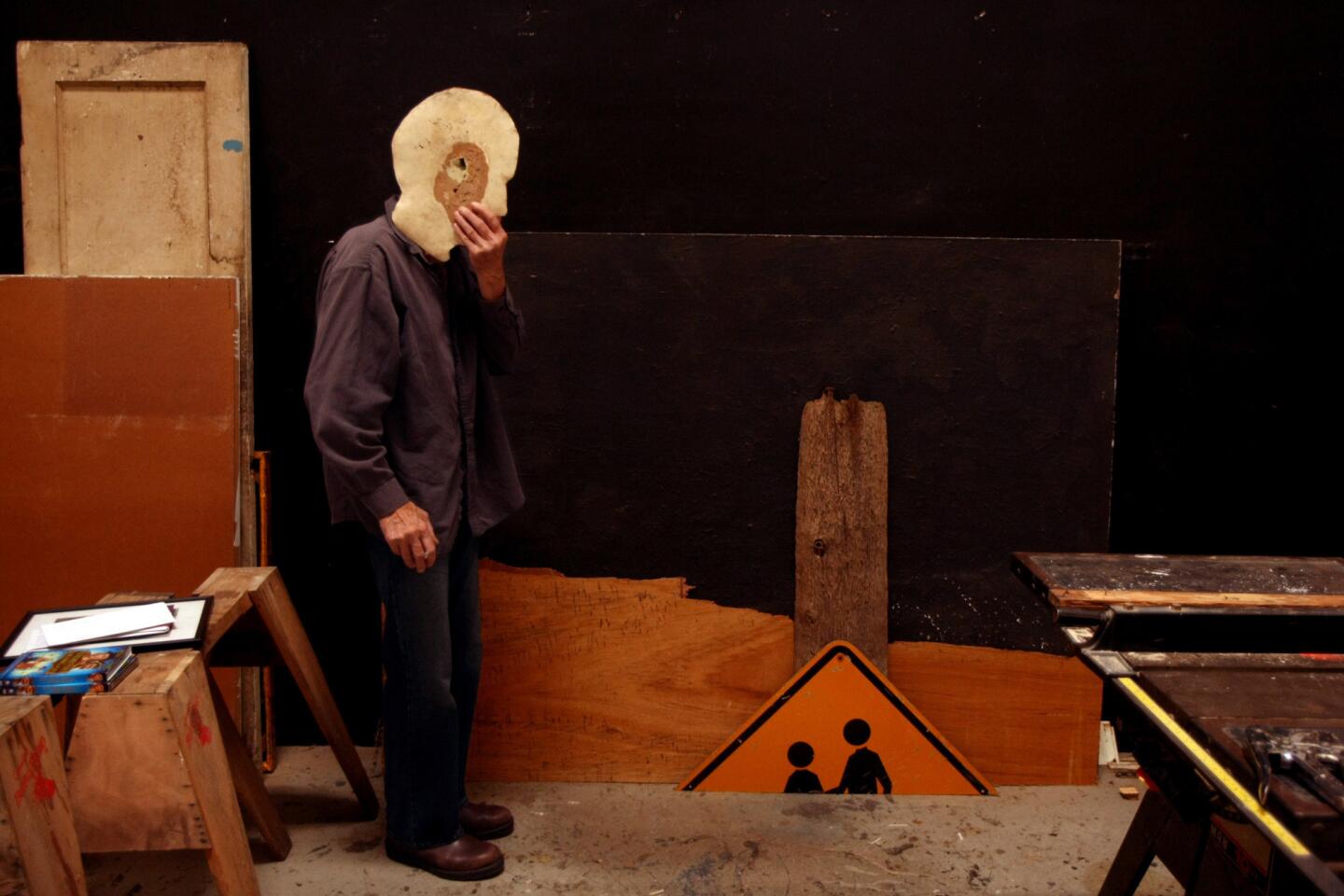
MORE: Llyn Foulkes’ art of raw emotion (Genaro Molina / Los Angeles Times)

MORE: Mickalene Thomas, up close and very personal (Al Seib / Los Angeles Times)
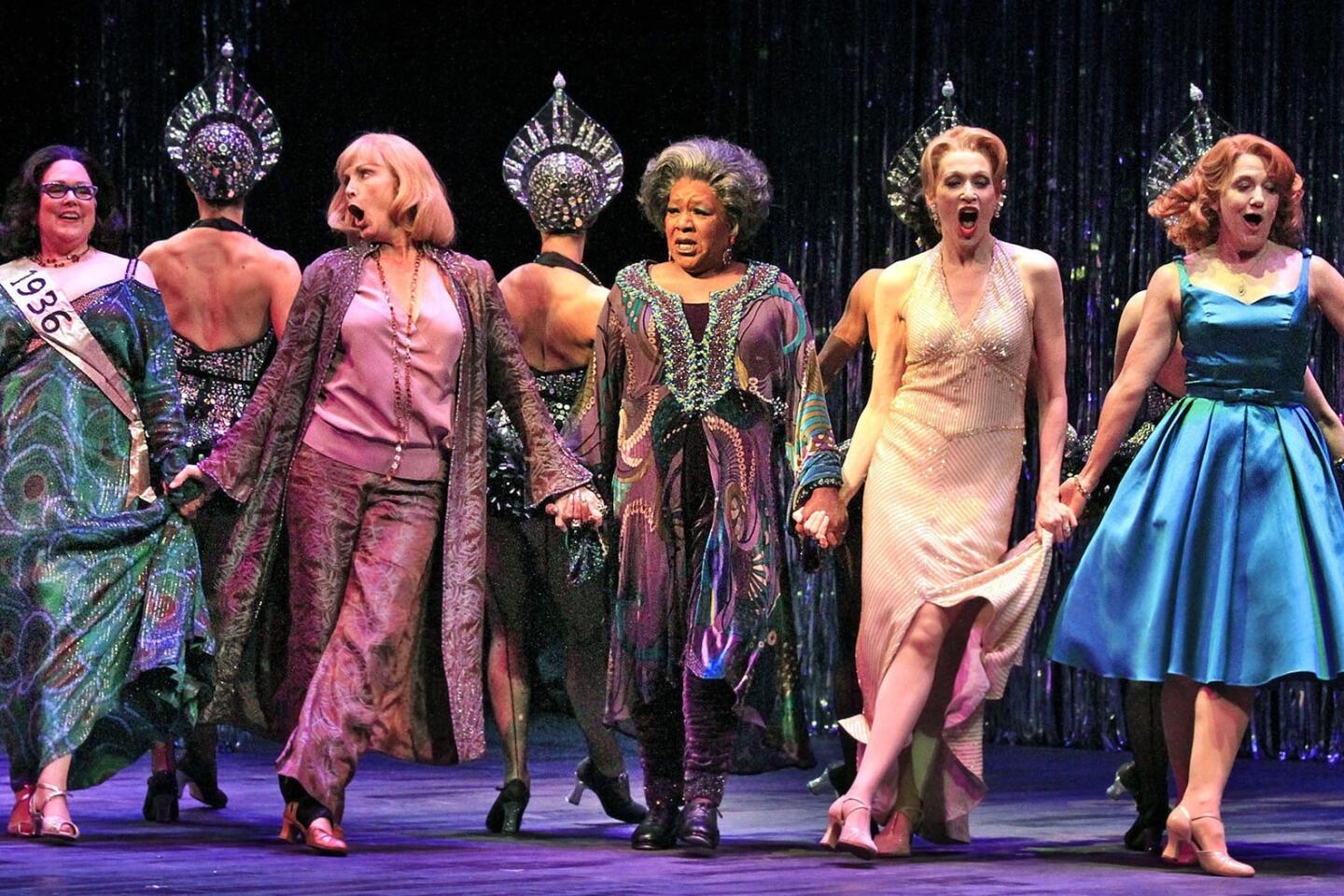
REVIEW: “Follies” is a source of heartache and razzmatazz (Glenn Koenig / Los Angeles Times)
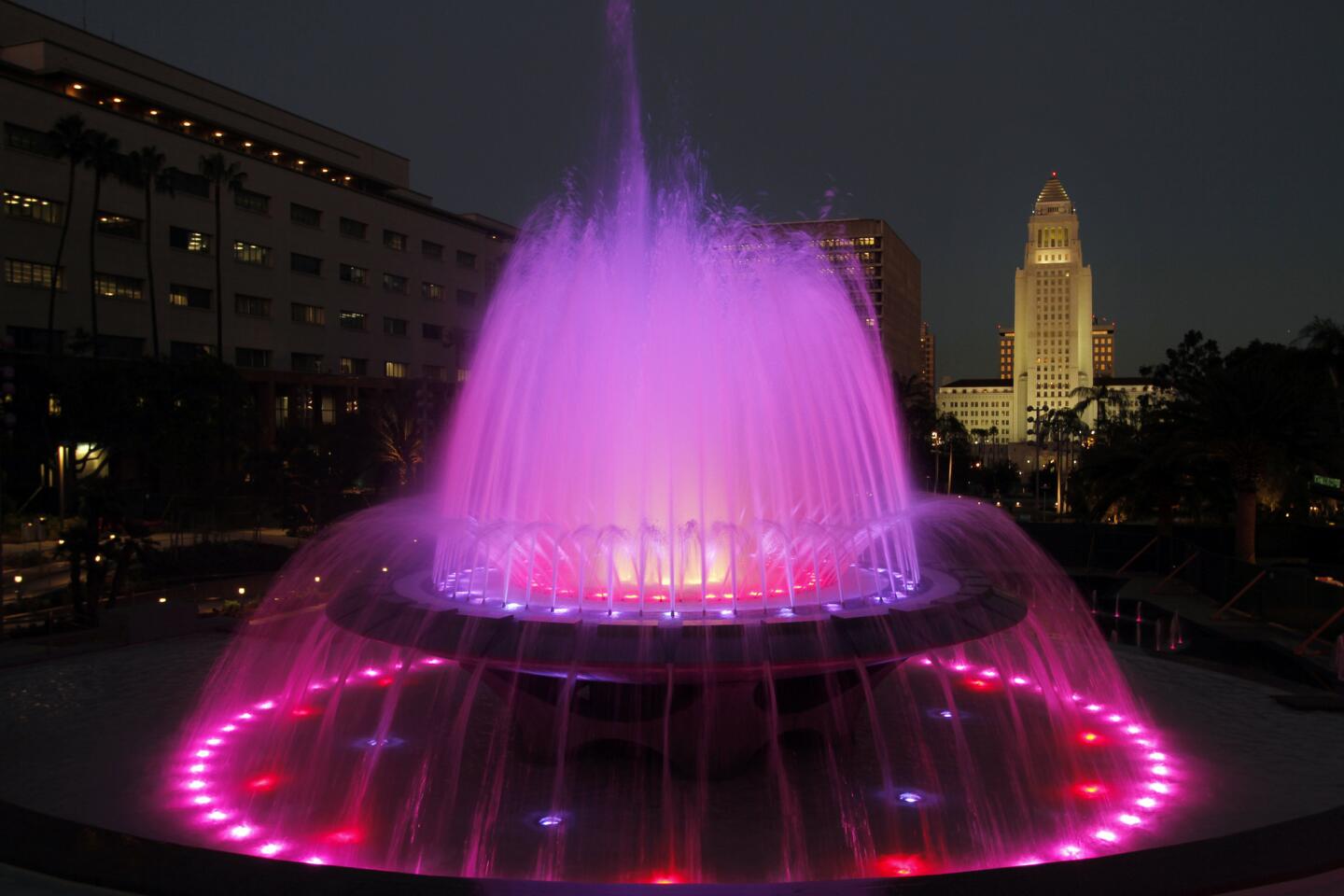
MORE: Will downtown L.A.’s Grand Park succeed? | Photos (Francine Orr / Los Angeles Times)
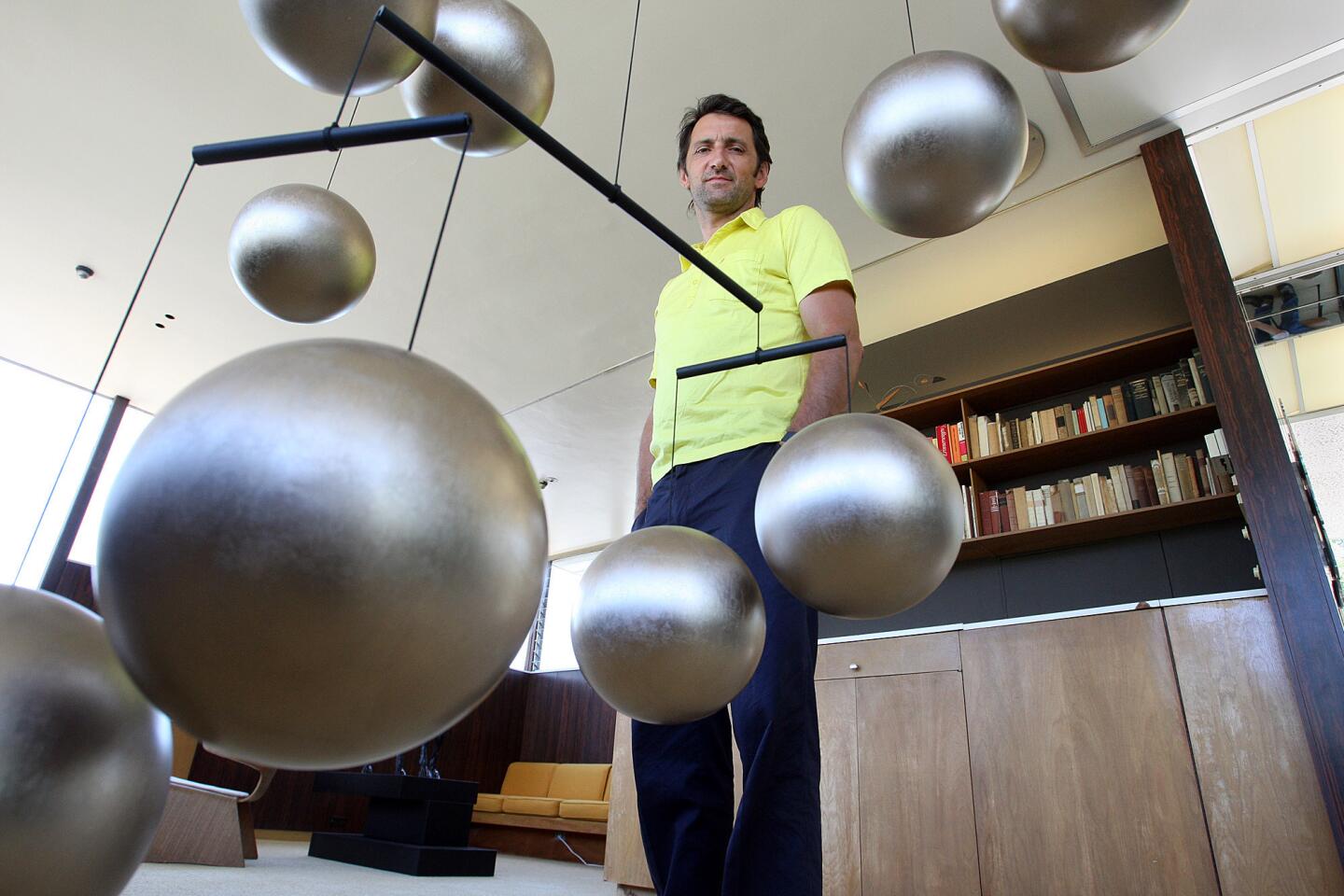
MORE: Artist Xavier Veilhan casts Richard Neutra’s VDL House in a new light (Gary Friedman / Los Angeles Times)
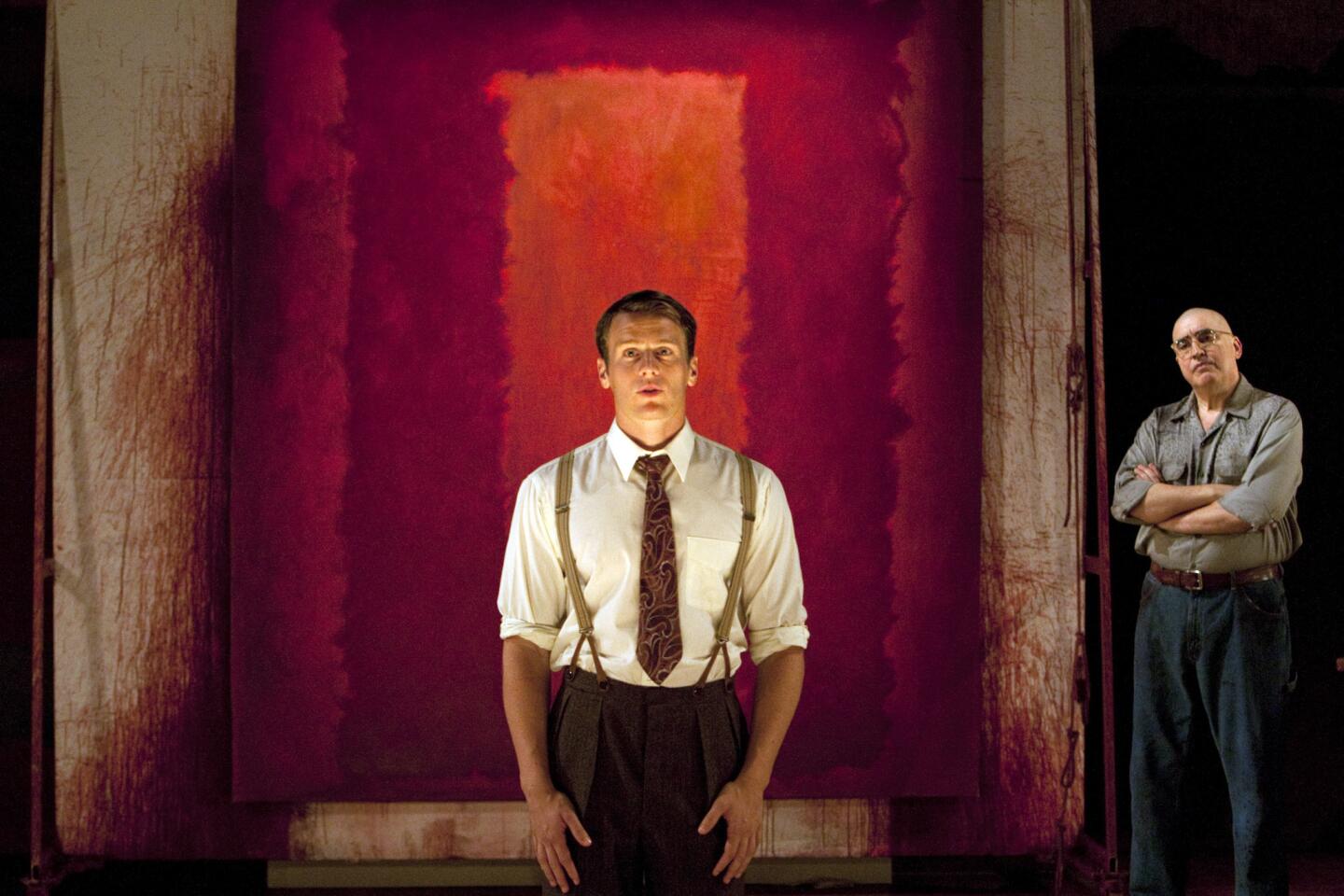
REVIEW: A blazing “Red” with Alfred Molina as Mark Rothko (Gina Ferazzi / Los Angeles Times)
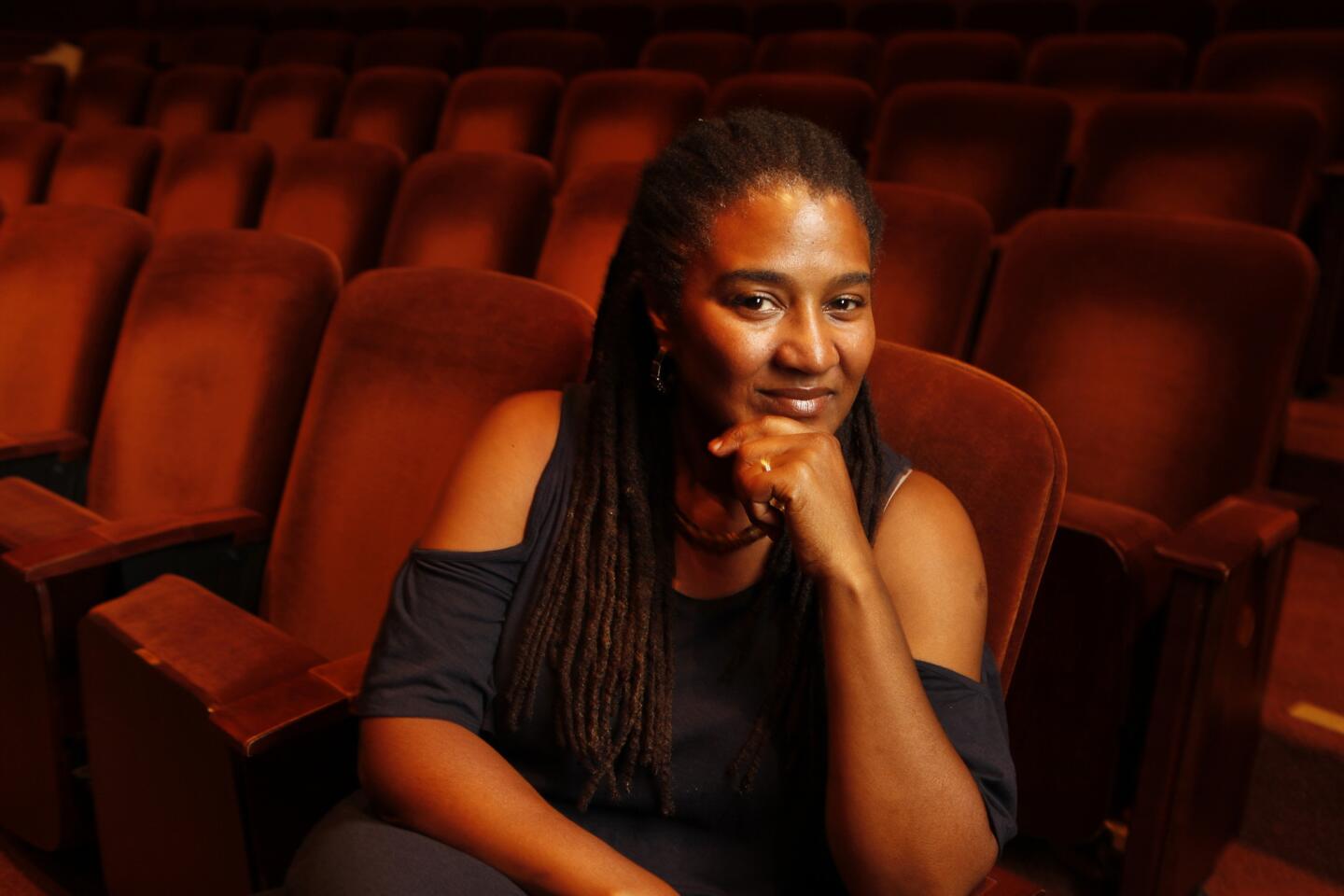
MORE: Lynn Nottage wants “Vera Stark” to be a conversation starter (Al Seib / Los Angeles Times)
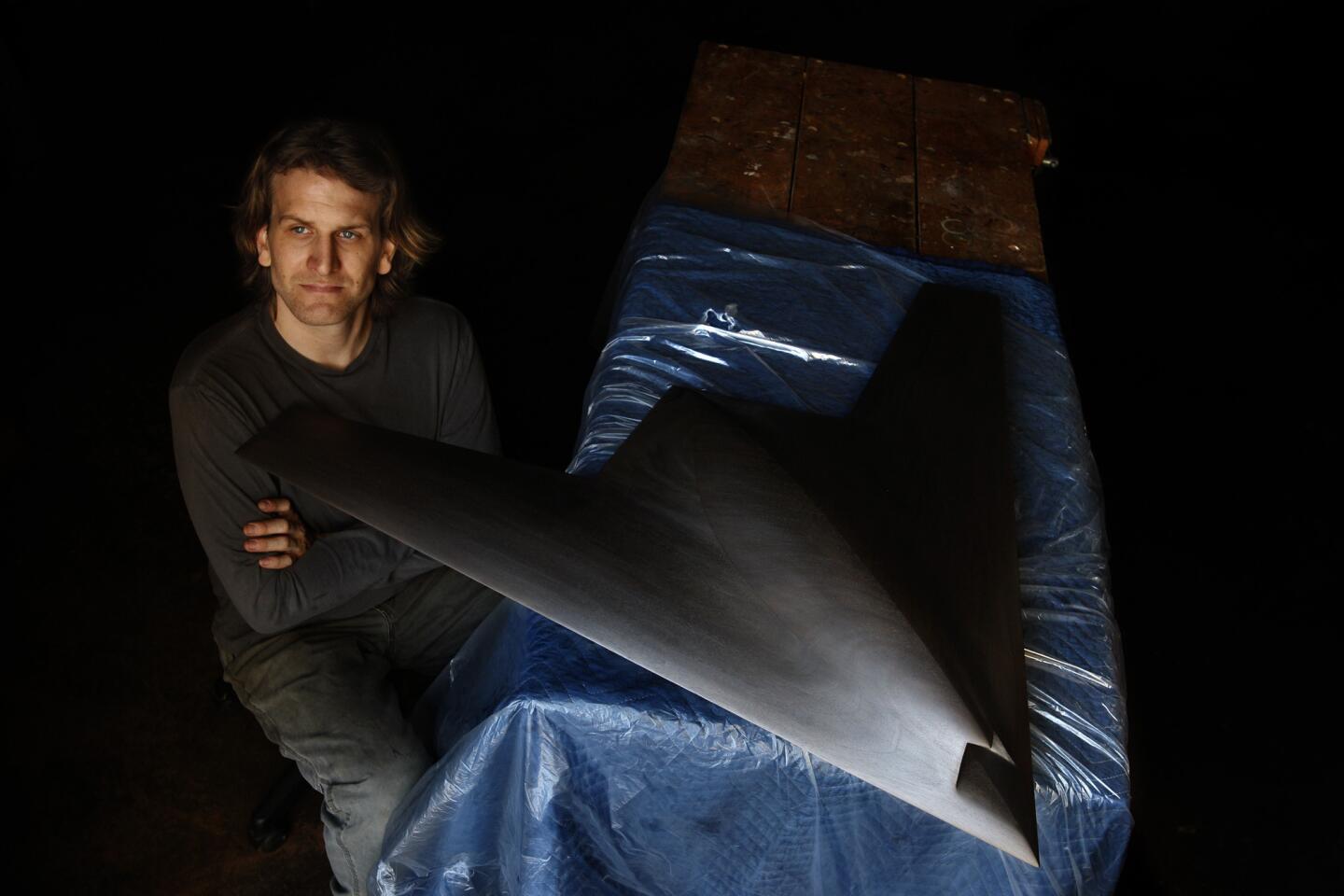
MORE: In the Studio: Ben Jackel uses broad ax strokes (Genaro Molina / Los Angeles Times)
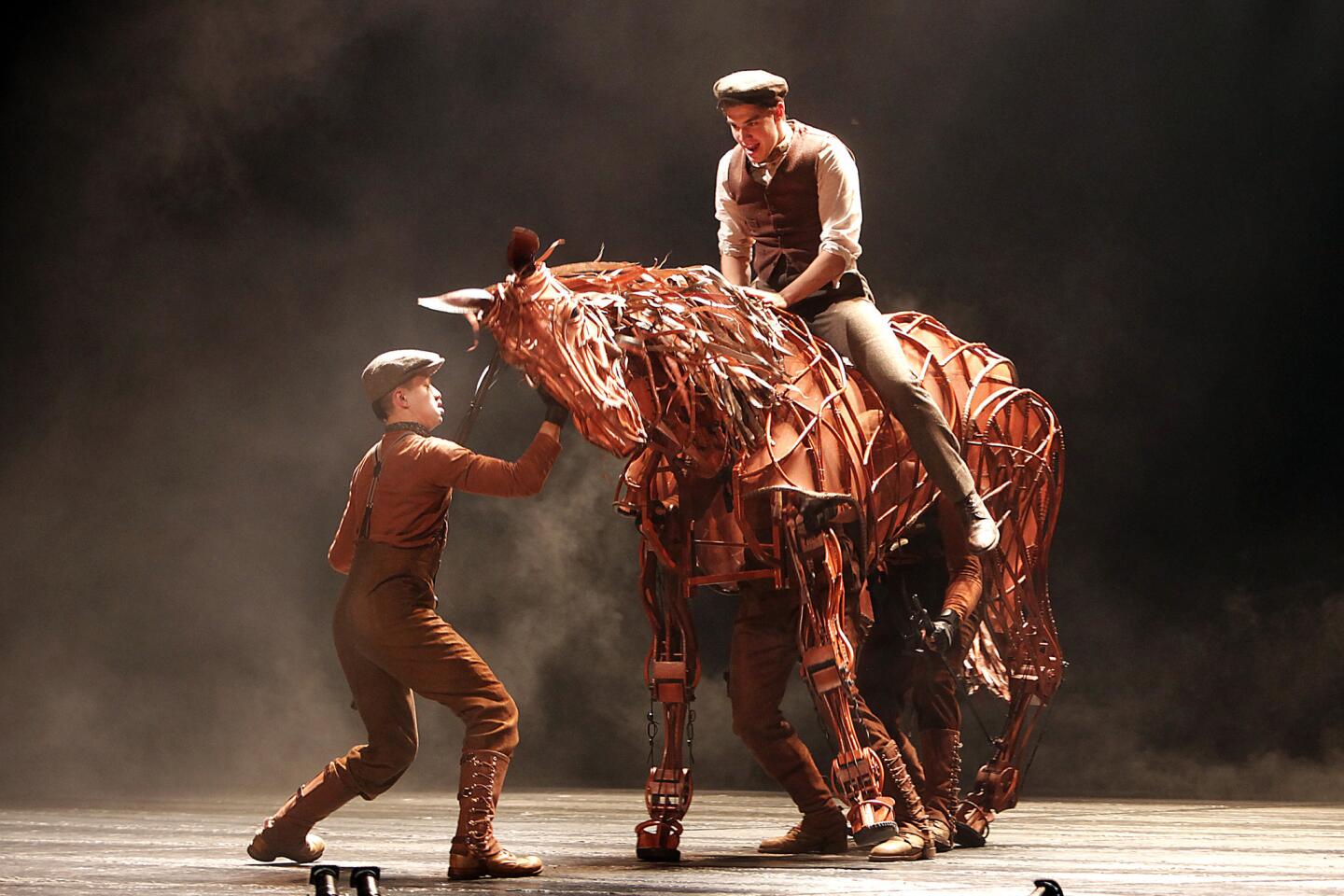
Review: “War Horse” at Ahmanson Theatre is a marvel of stagecraft | Photos (Kirk McKoy / Los Angeles Times)

More: A pop choreographer with a busy schedule (Ricardo DeAratanha / Los Angeles Times)

More: Hammer biennial lends artists a helping hand (Kirk McKoy / Los Angeles Times)

More: Plácido Domingo leads an uptempo life (Robert Gauthier / Los Angeles Times)
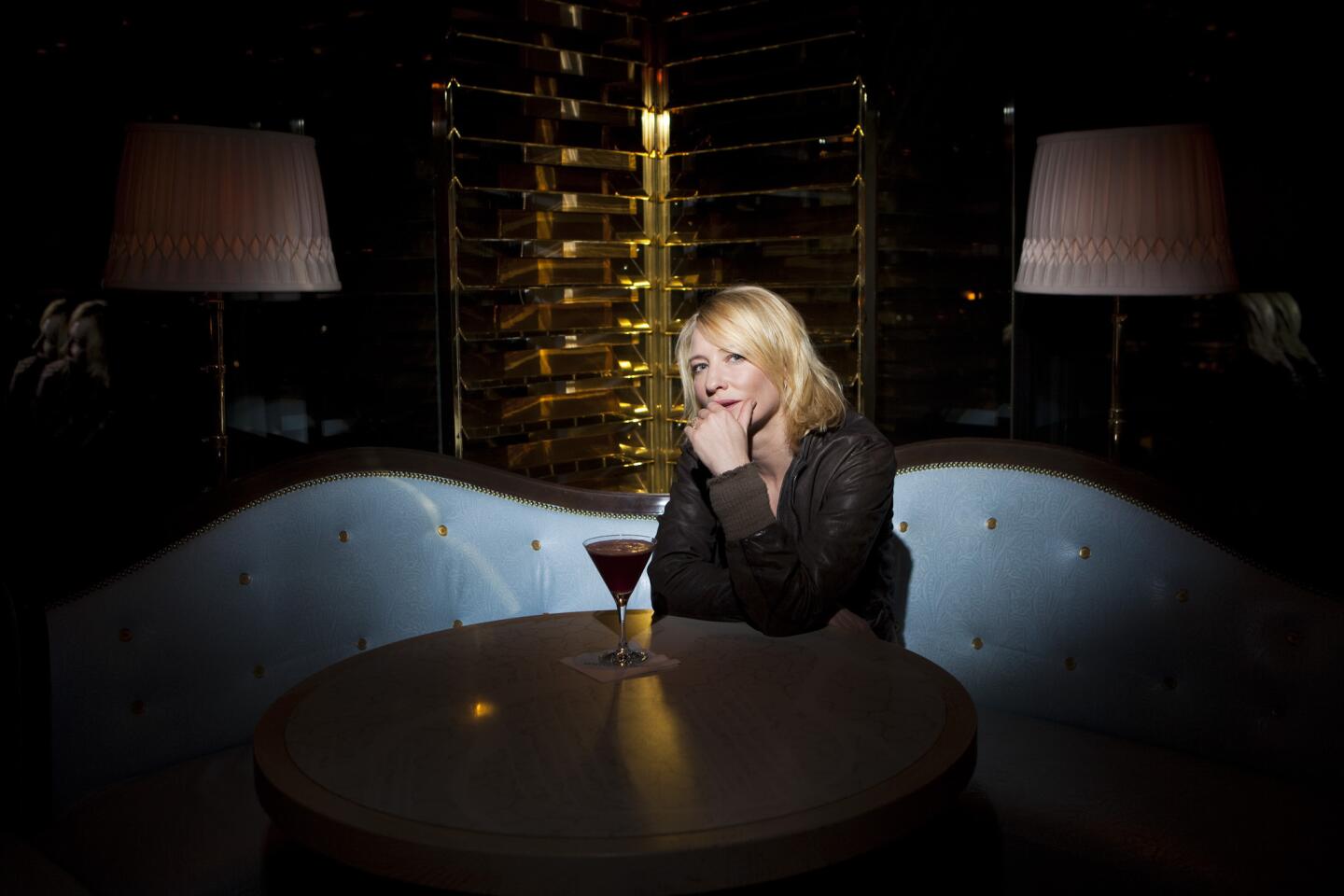
More: In the moment with Cate Blanchett (Jay L. Clendenin / Los Angeles Times)
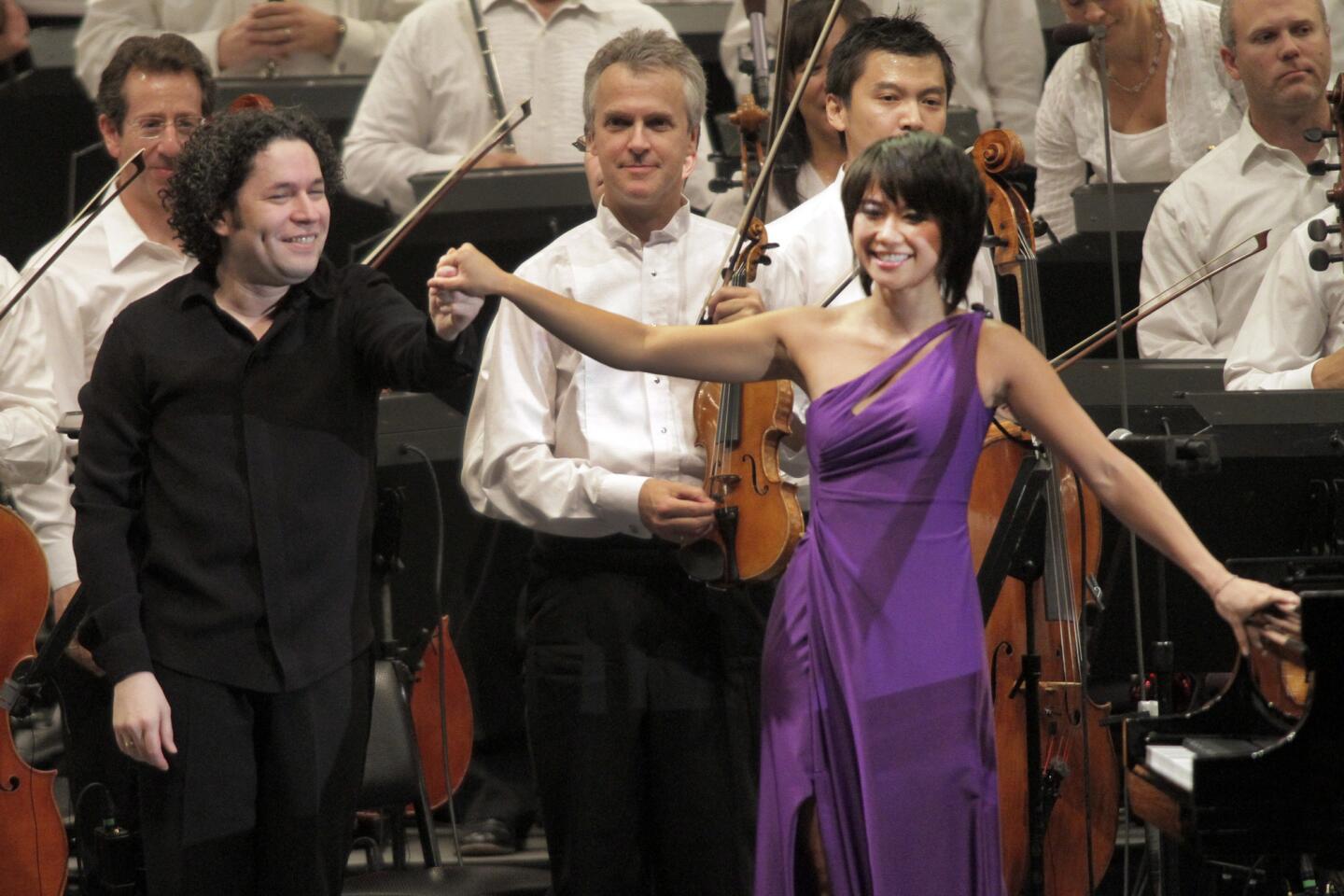
More: Yuja Wang turns heads at the Hollywood Bowl with a purple gown Photos (Lawrence K. Ho / Los Angeles Times)

More: Jesse Tyler Ferguson takes on ‘The Producers’ at the Bowl | Review | Photos (Lawrence K. Ho / Los Angeles Times)

Review: LACMA’s new hunk ‘Levitated Mass’ has some substance | Critic’s Notebook: Art on an architectural scale at LACMA (Gina Ferazzi / Los Angeles Times)
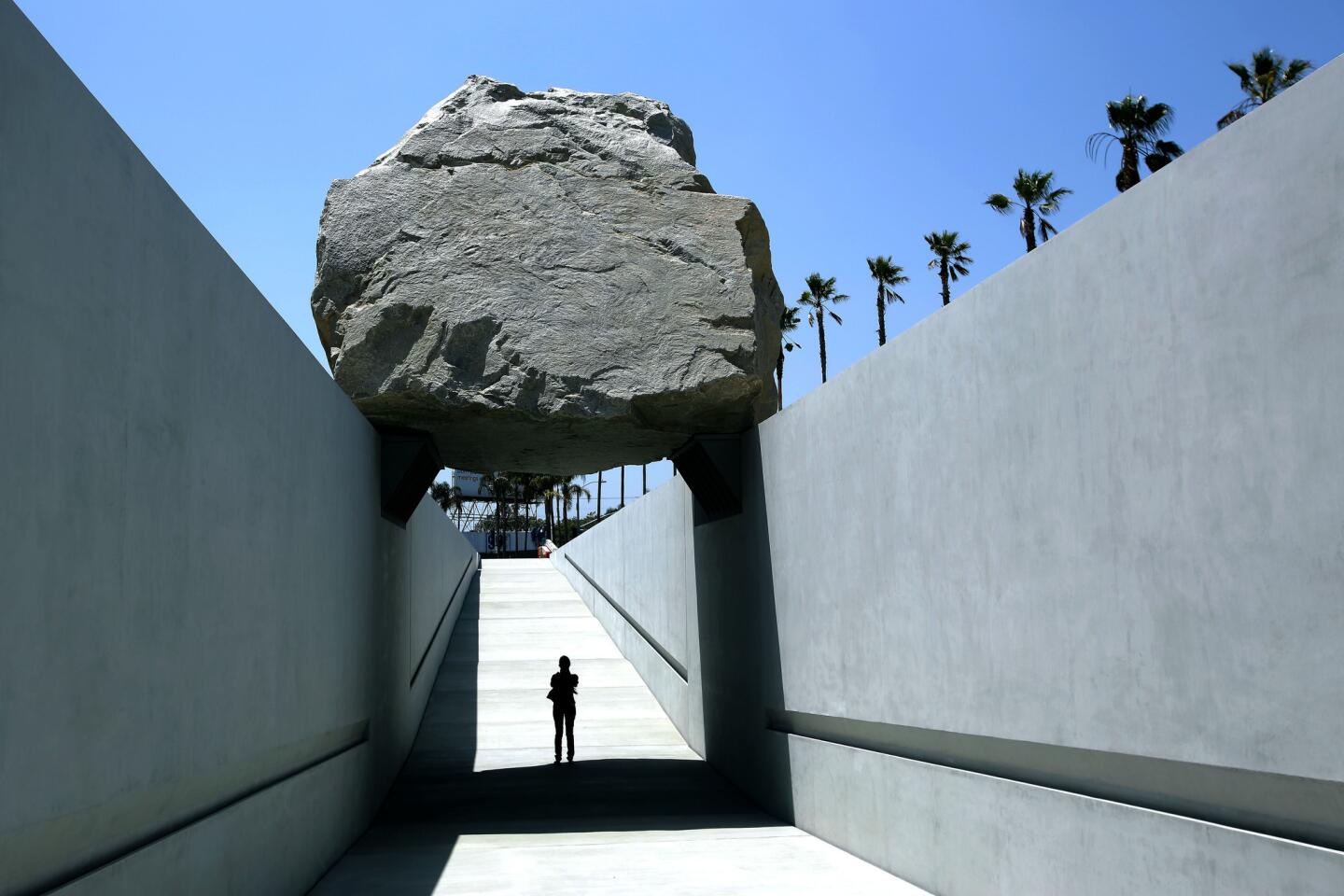
Review: LACMA’s new hunk ‘Levitated Mass’ has some substance | Critic’s Notebook: Art on an architectural scale at LACMA (Mel Melcon / Los Angeles Times)
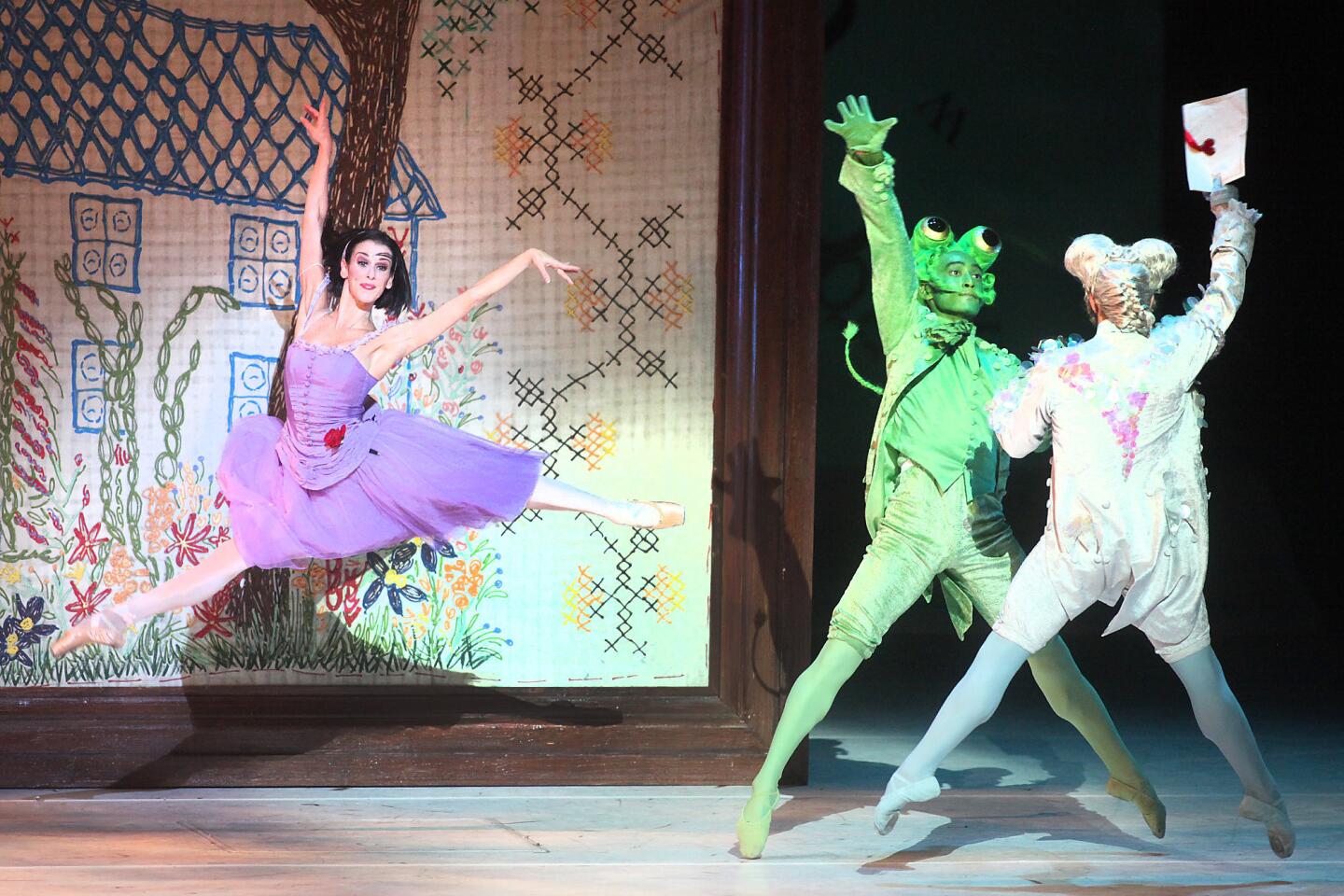
Review: Antic ‘Alice’s Adventures in Wonderland’ a scenic spectacle | More photos (Brian van der Brug / Los Angeles Times)
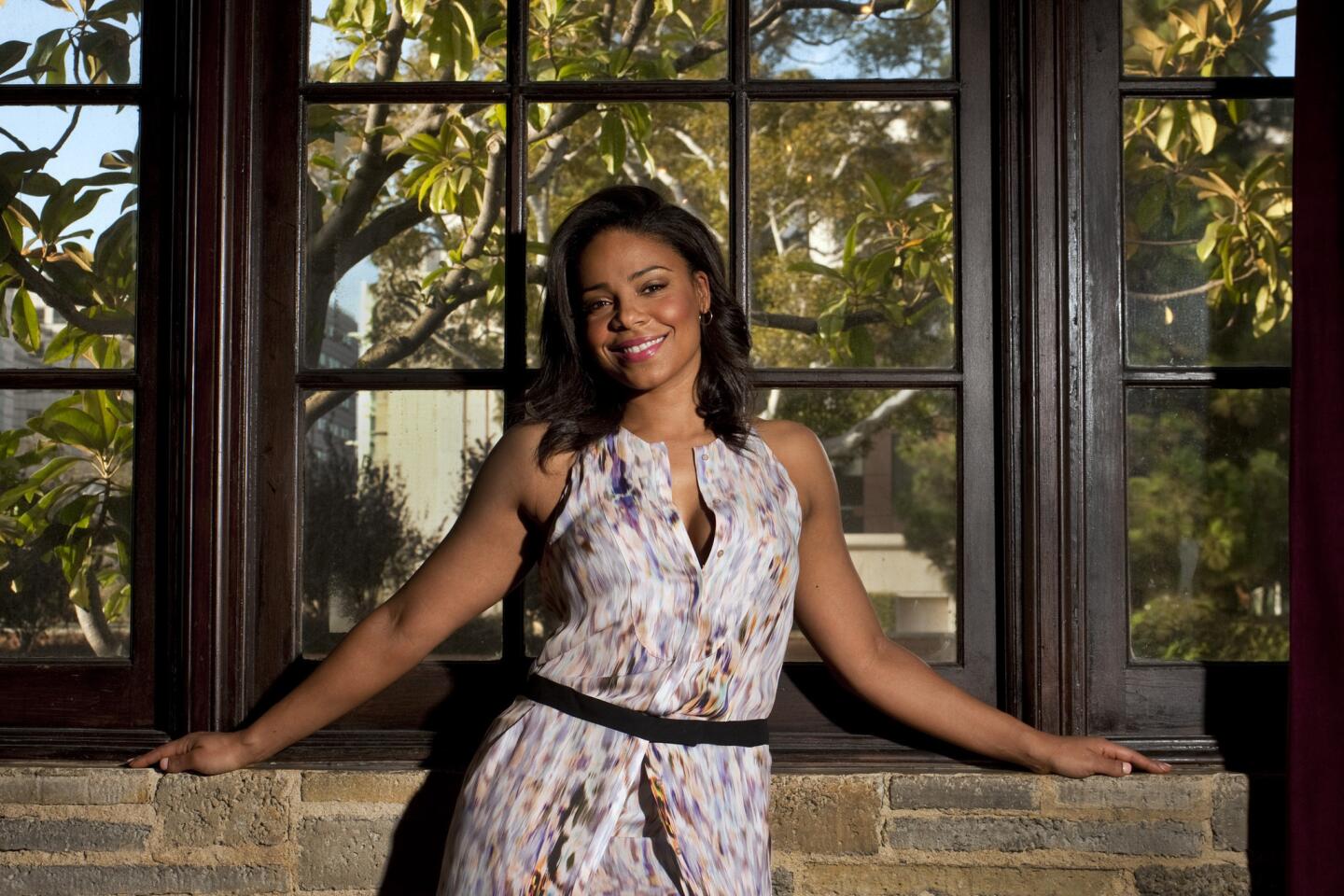
More: Q&A: Sanaa Lathan (Allen J. Schaben / Los Angeles Times)
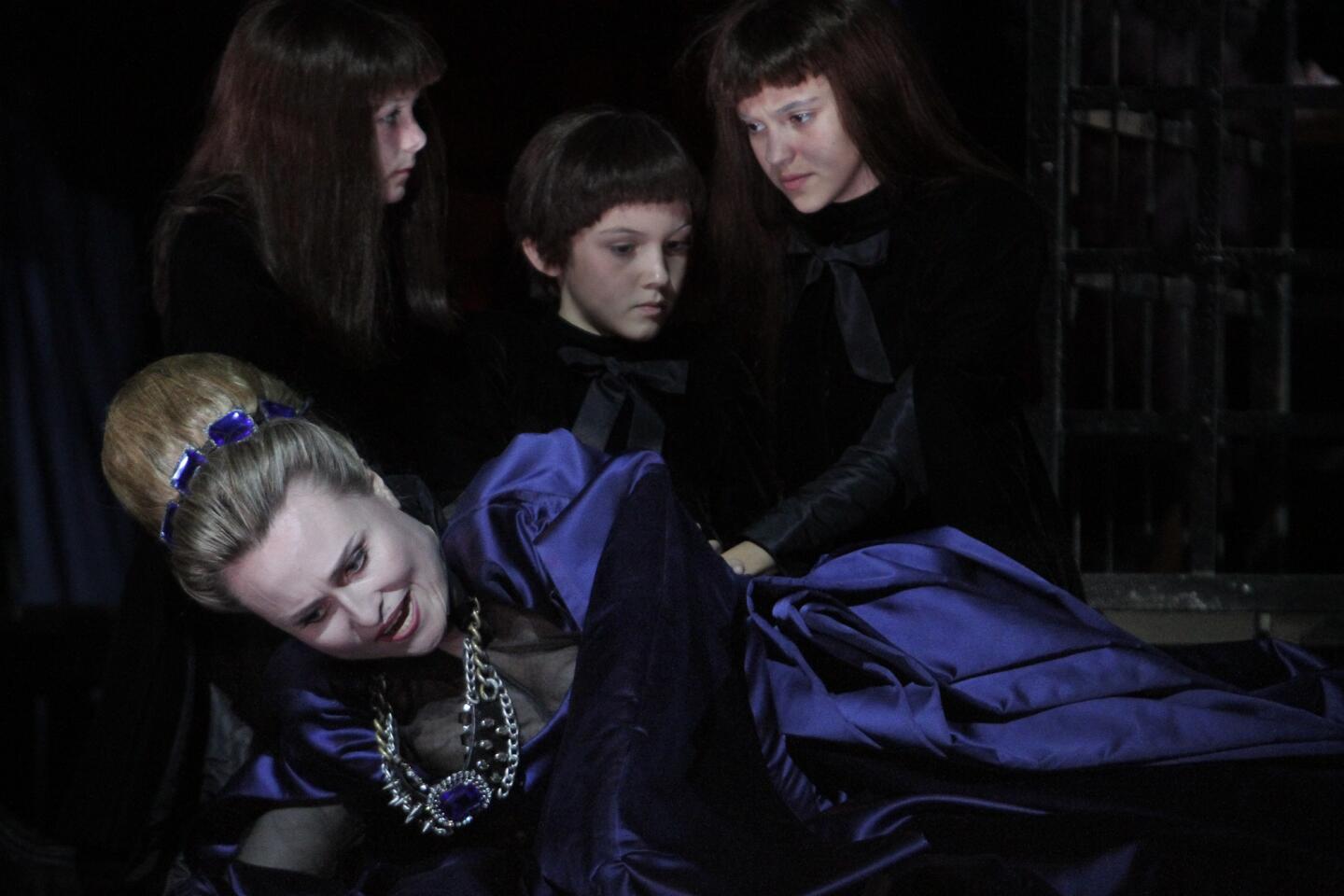
More: Los Angeles Opera takes fresh look at Verdi’s ‘The Two Foscari’ | Review (Lawrence K. Ho / Los Angeles Times)
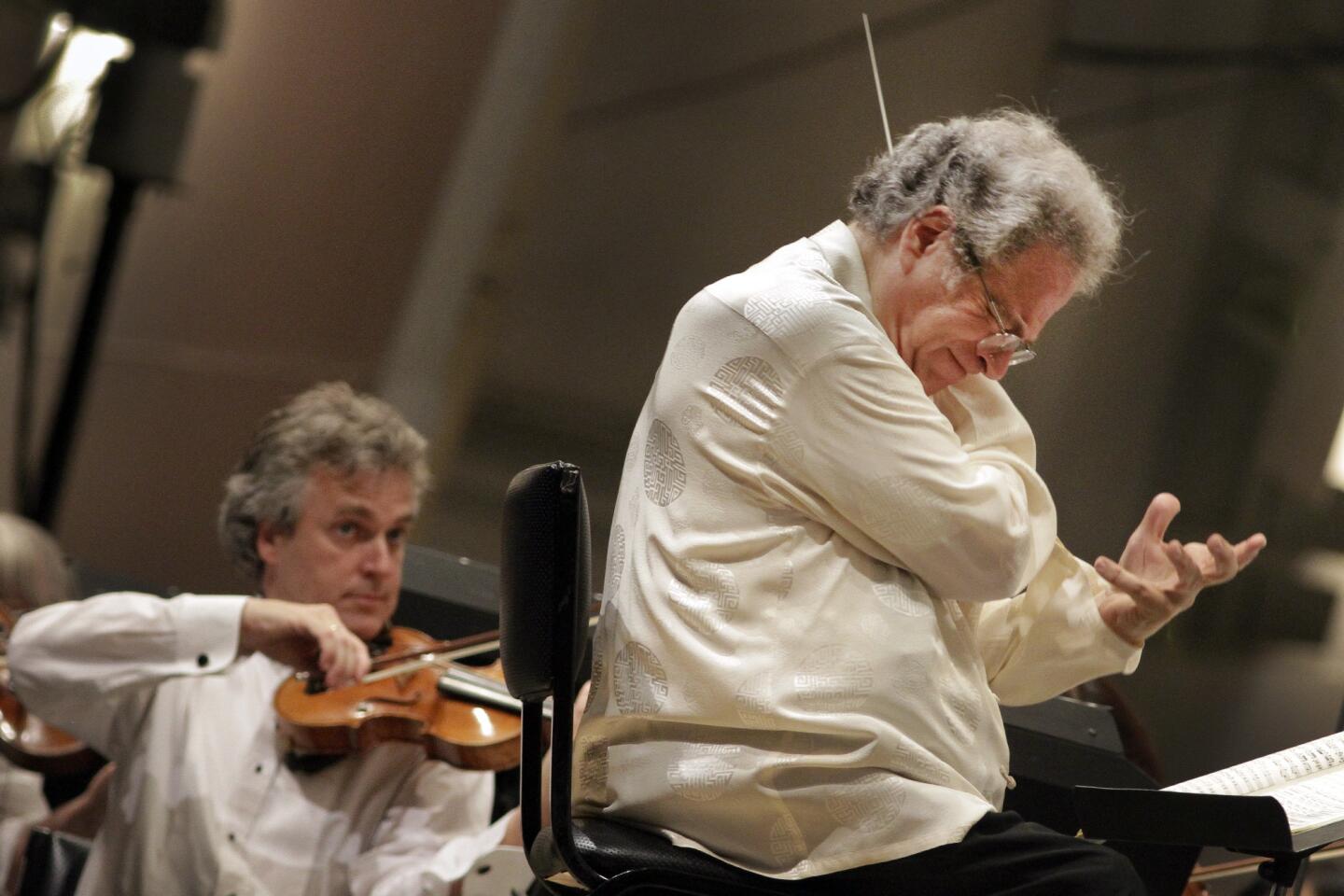
Review: Itzhak Perlman closes Hollywood Bowl classical season (Lawrence K. Ho / Los Angeles Times)
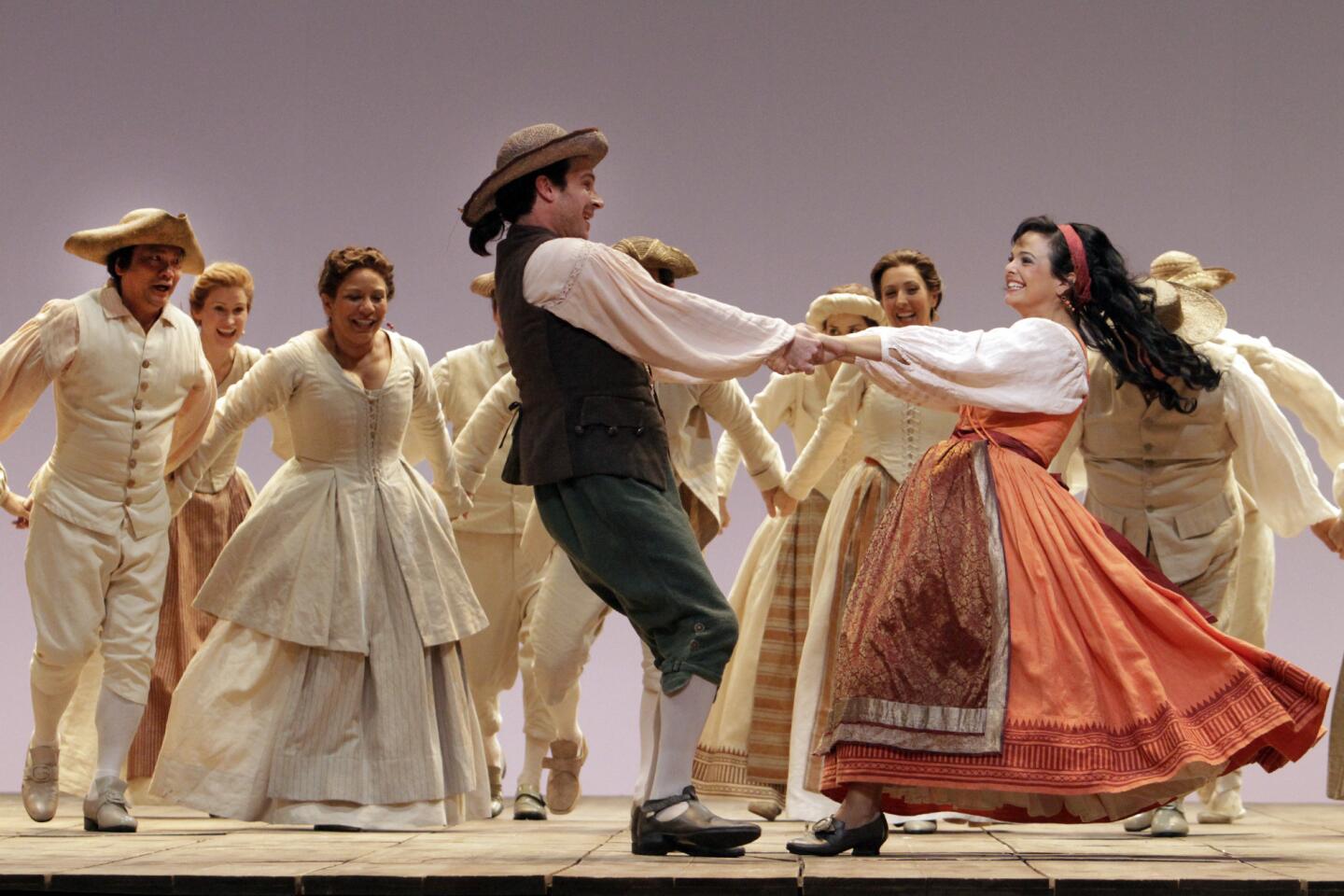
Review: L.A. Opera’s ‘Don Giovanni’ upholds tradition expertly | Photos (Lawrence K. Ho / Los Angeles Times)
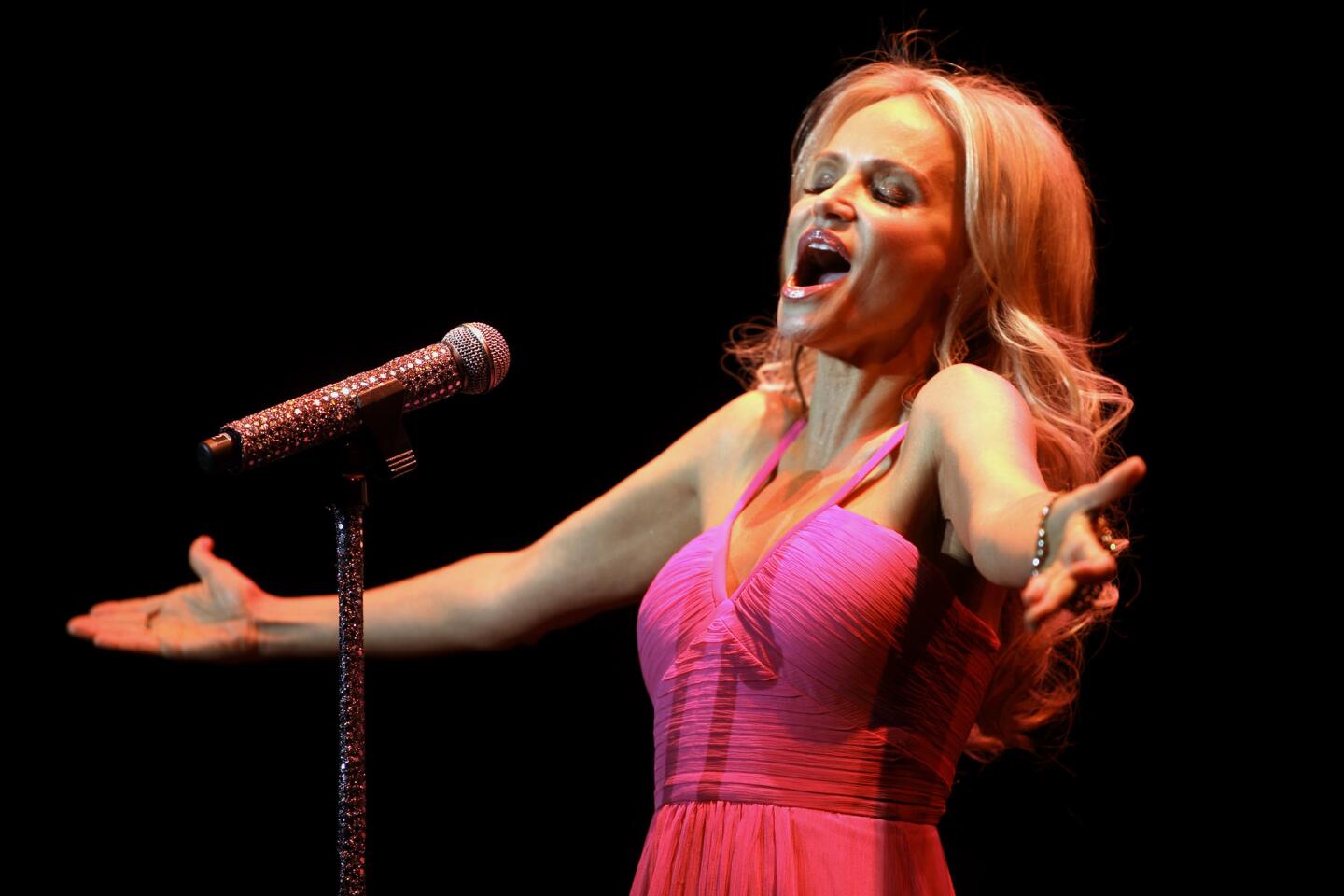
More: Kristin Chenoweth warms up for California concerts (Carolyn Cole / Los Angeles Times)
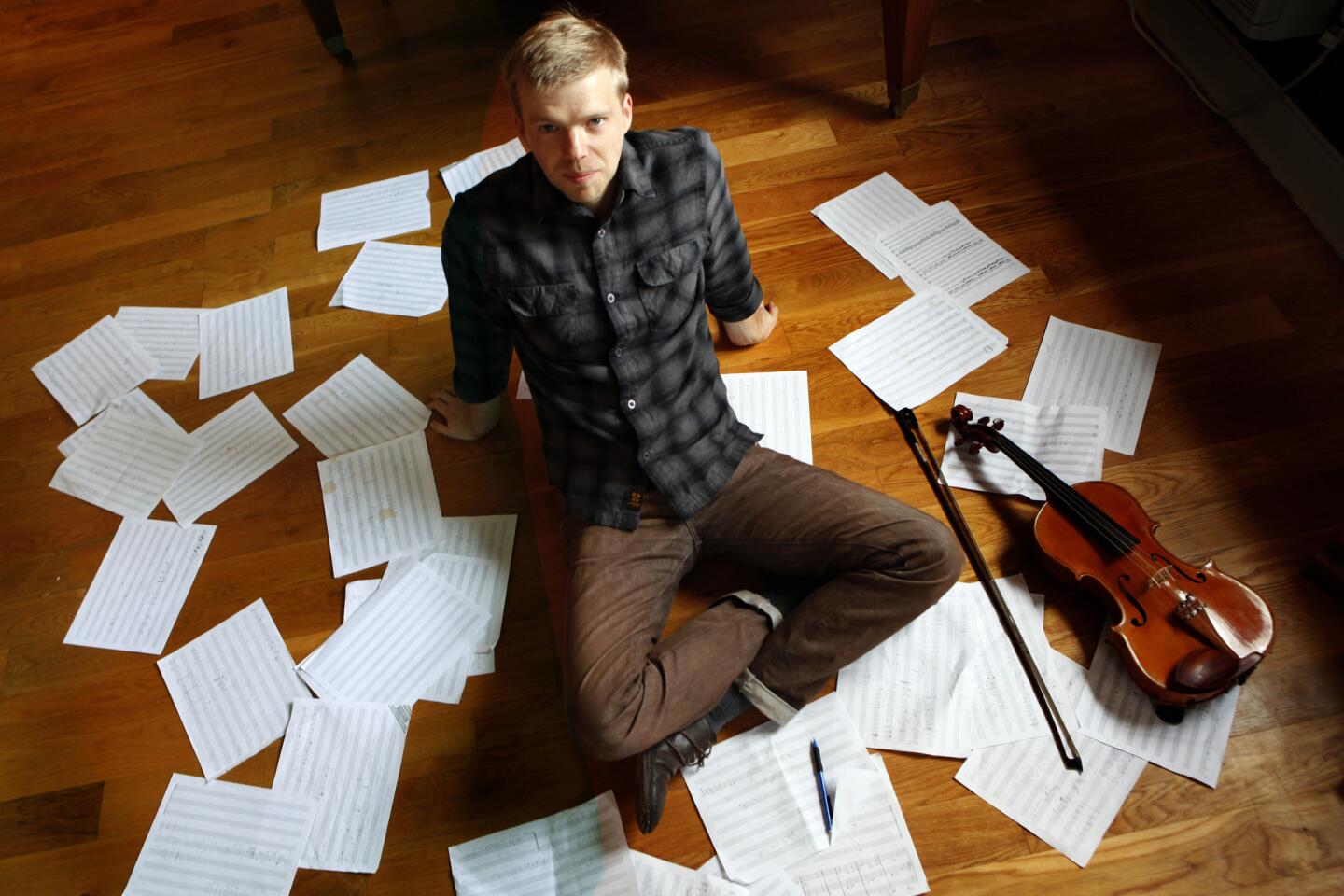
More: Composer Andrew Norman’s imagination has taken residence (Carolyn Cole / Los Angeles Times)
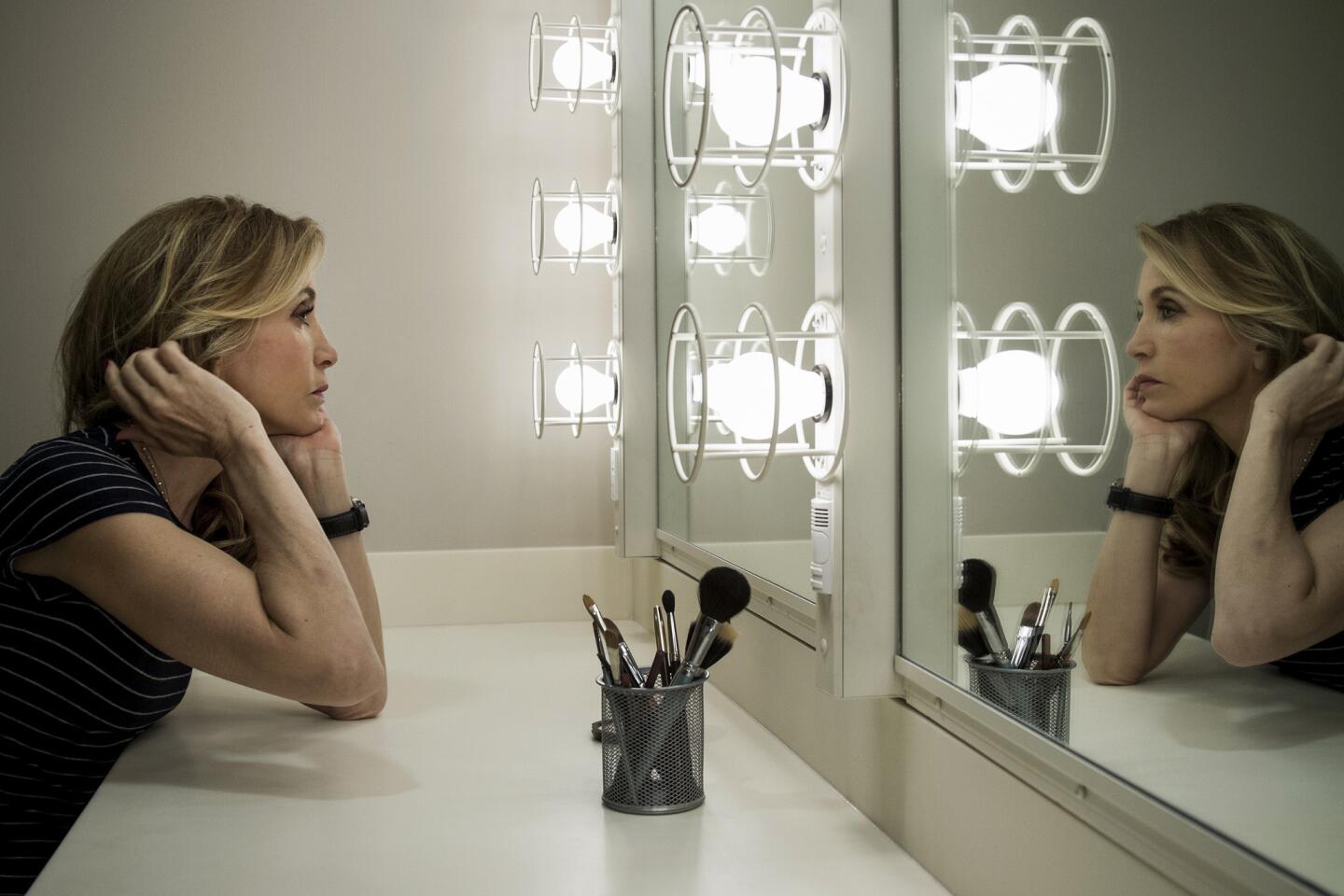
More: It’s no easy act for Felicity Huffman (Jay L. Clendenin / Los Angeles Times)
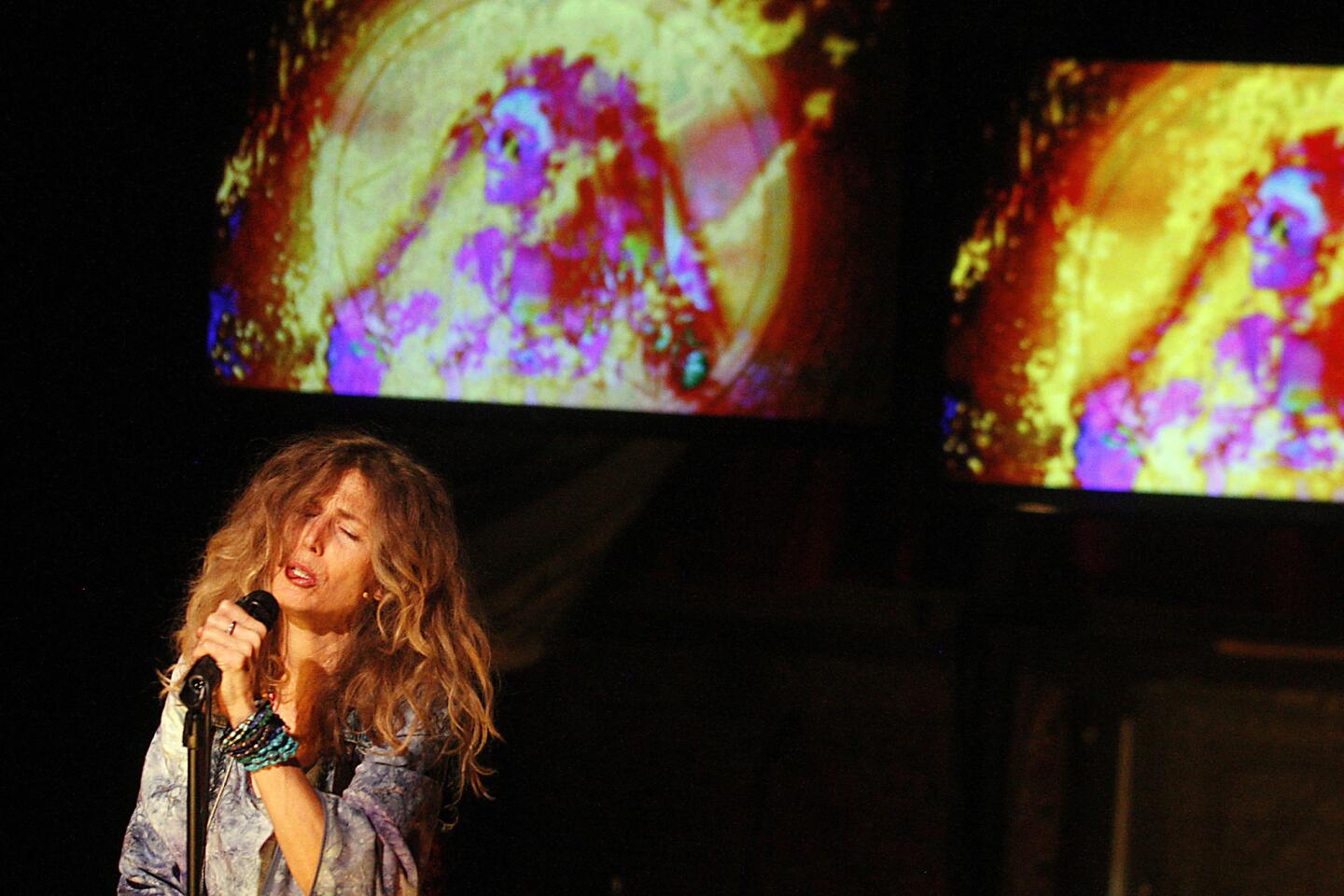
More: Sophie B. Hawkins channels Janis Joplin’s spirit in ‘Room 105’ (Luis Sinco / Los Angeles Times)
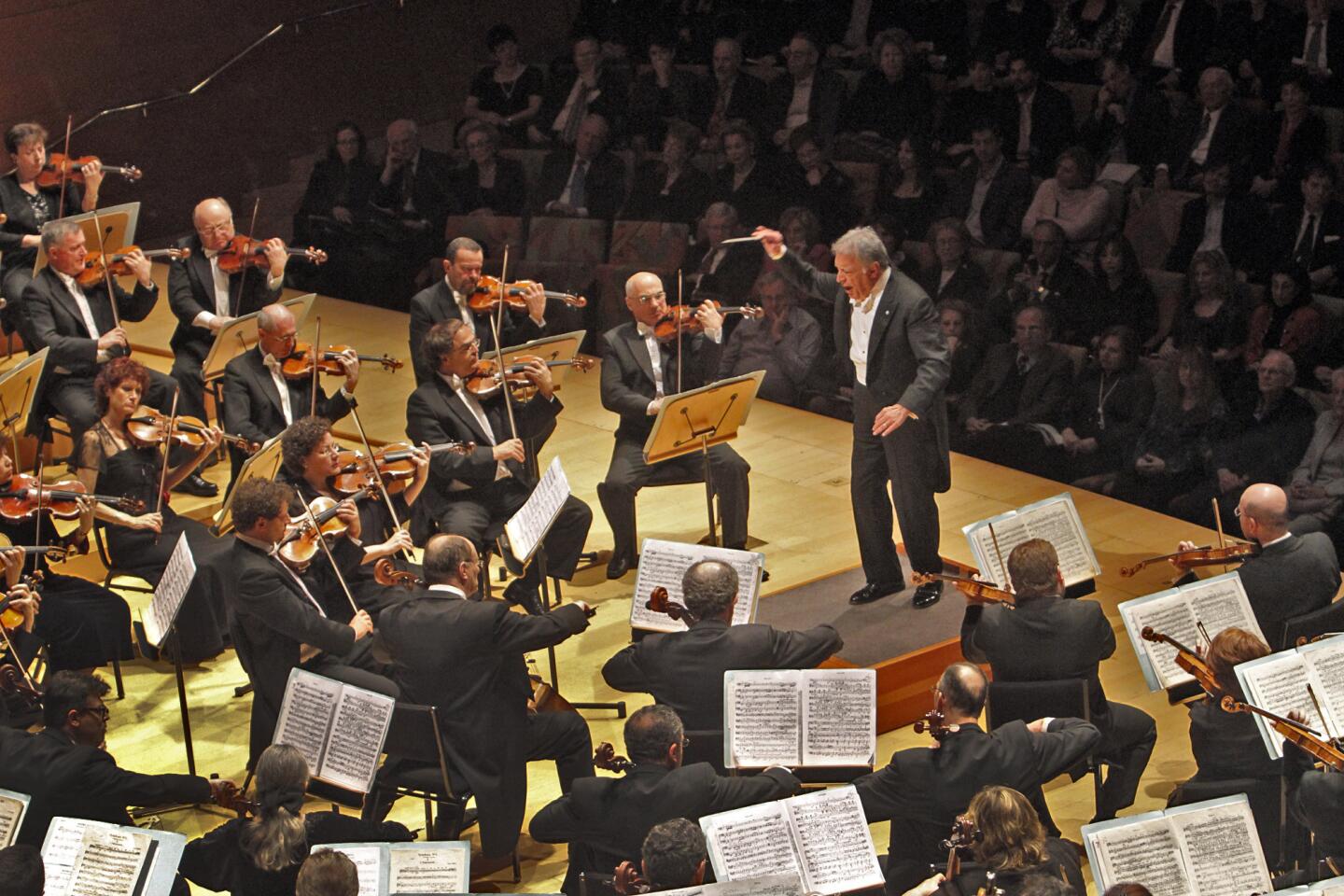
Review: Israel Philharmonic, rising above differences (Lawrence K. Ho / Los Angeles Times)
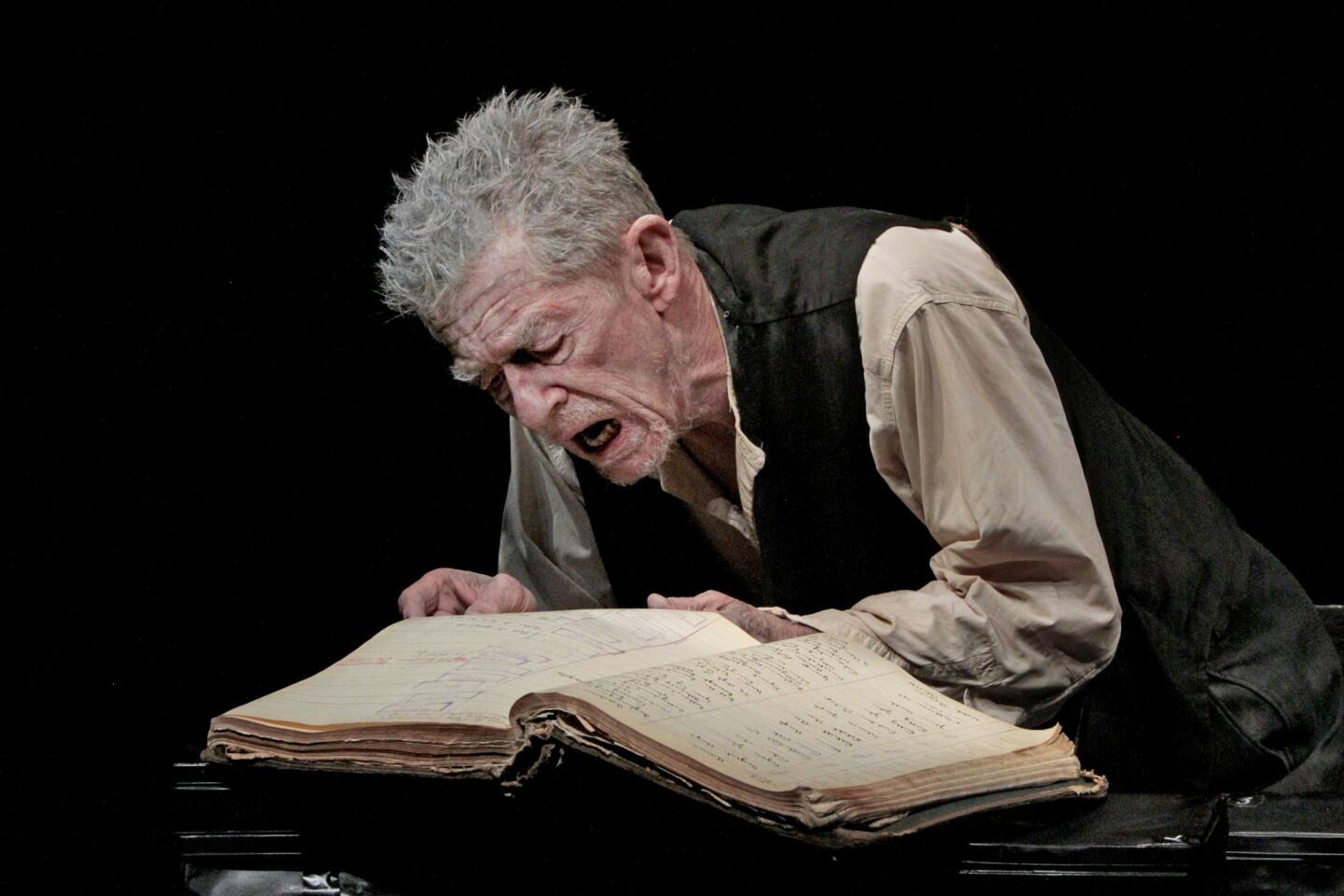
More: John Hurt plays back ‘interrupted pause’ of ‘Krapp’s Last Tape’ | Review (Anne Cusack / Los Angeles Times)

More: Teatro ZinZanni sets up a tent and fills it with elegant chaos (Lawrence K. Ho / Los Angeles Times)

More: Performance review: A down-to-Earth ‘Dirtday!’ (Lawrence K. Ho / Los Angeles Times)
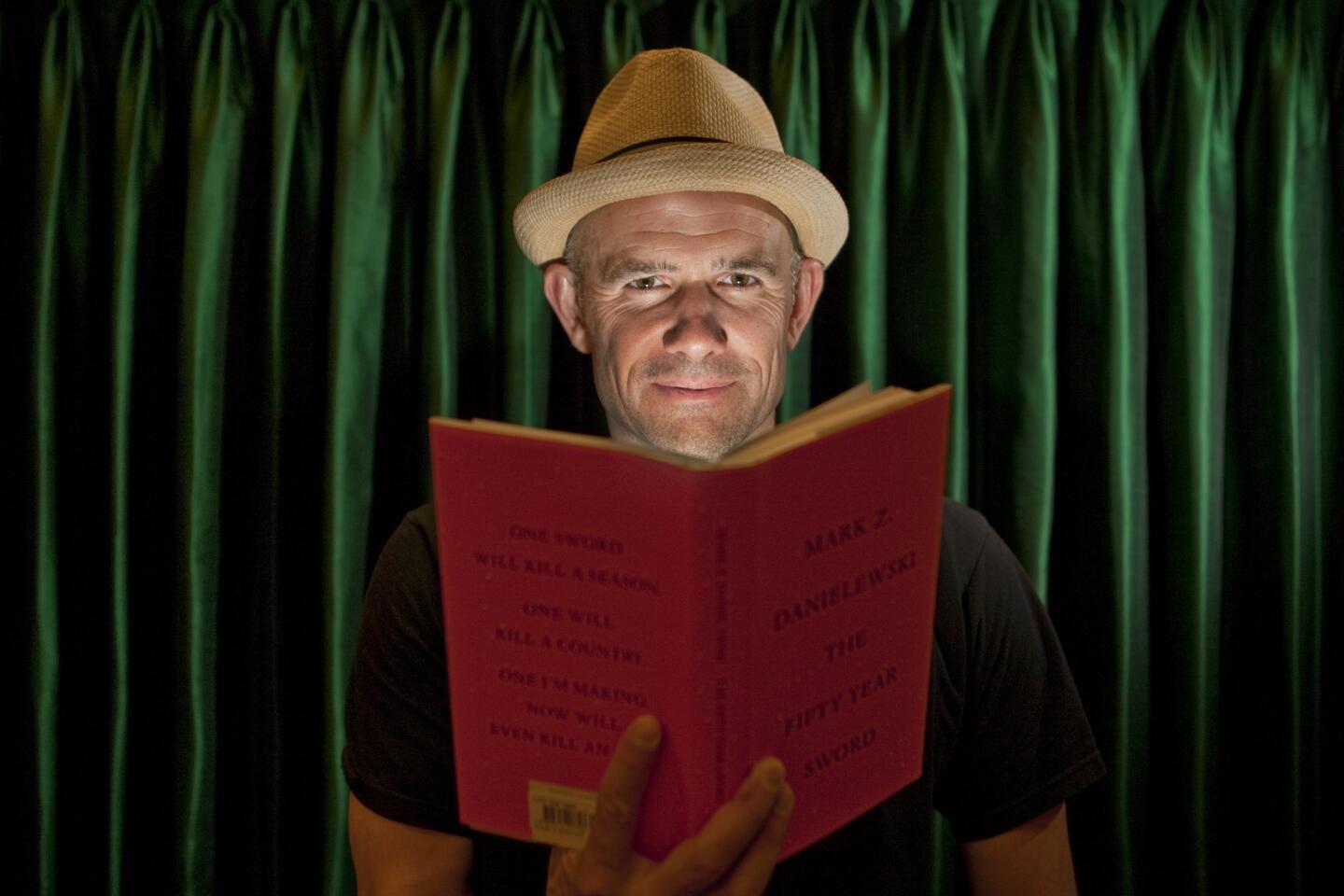
More: Mark Z. Danielewski: The writer as needle and thread (Allen J. Schaben / Los Angeles Times)
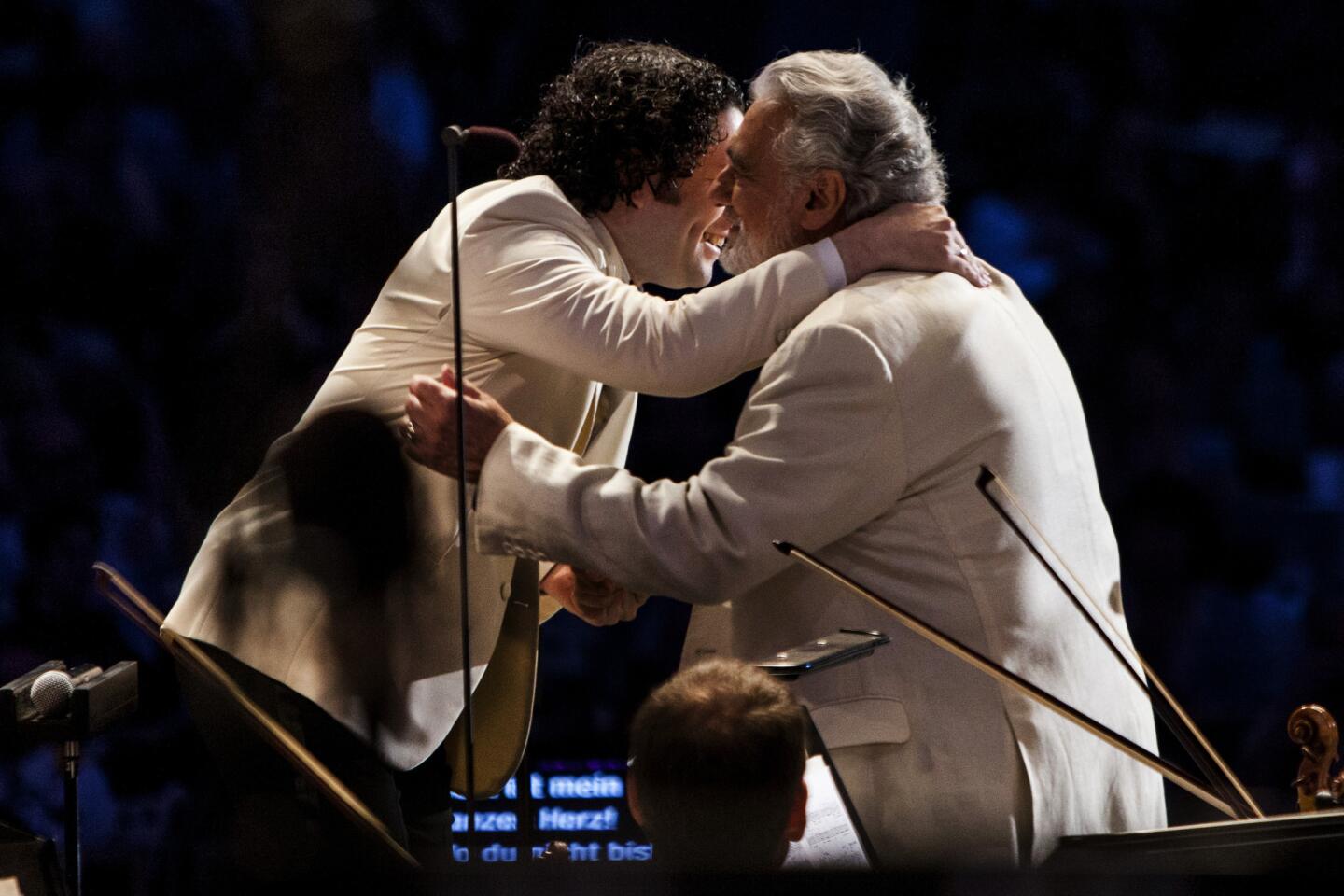
More: Gustavo Dudamel’s captivating theatrics serve the music | More photos (Jay L. Clendenin / Los Angeles Times)
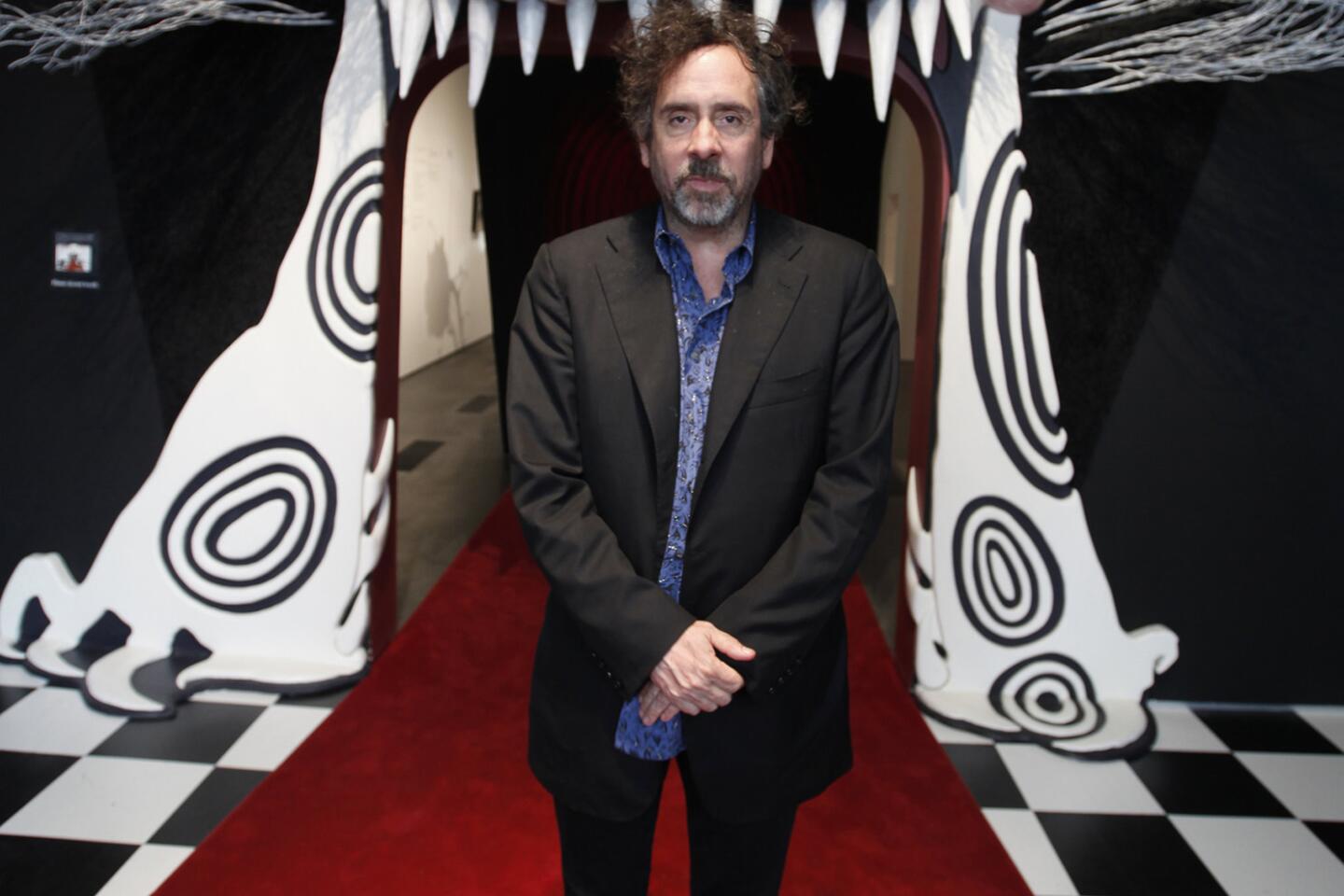
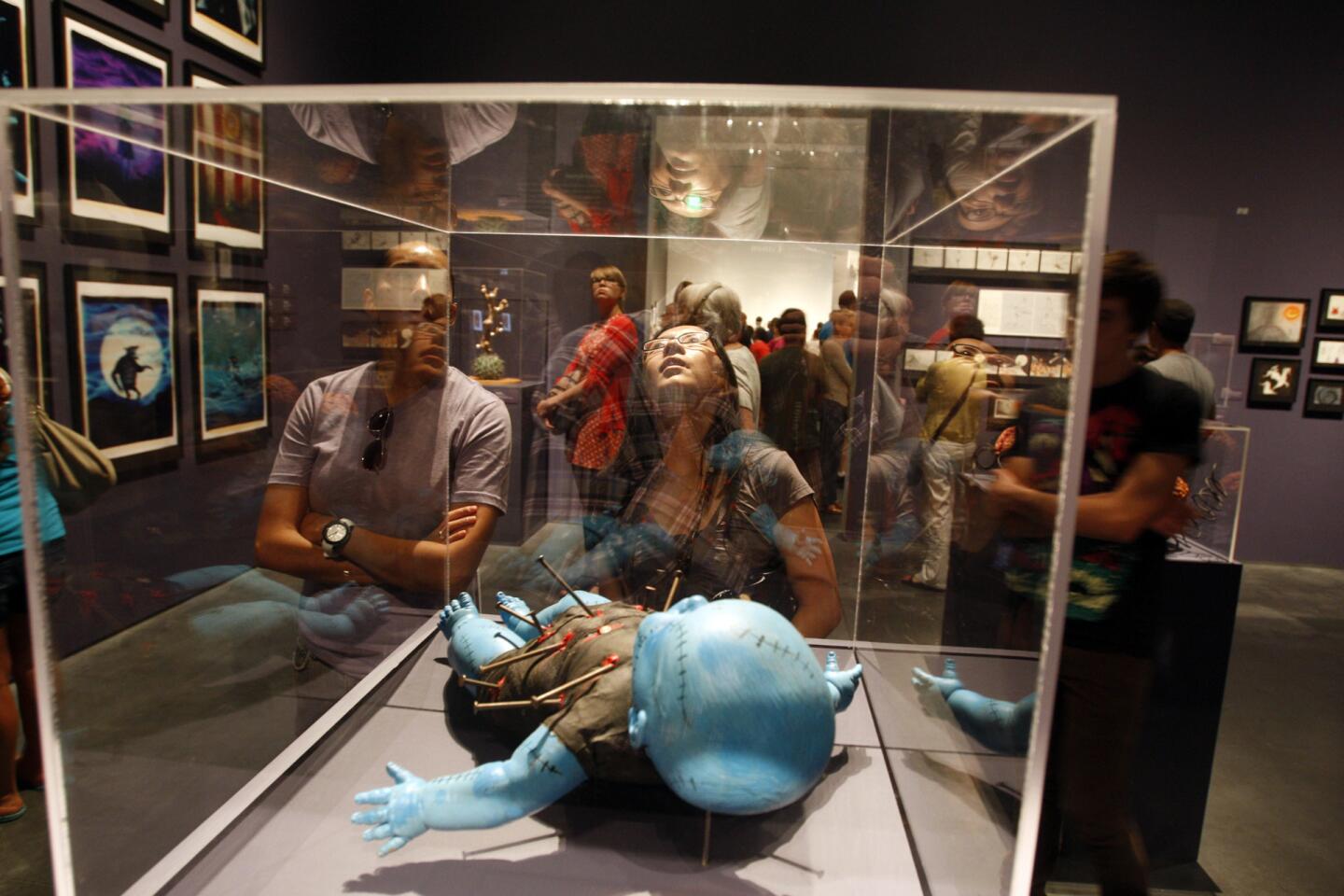
MORE: Doing the numbers on LACMA’s Tim Burton show (Gary Friedman / Los Angeles Times)
It may take a while for Mary Magdalene to catch up in song with the Mary music history knows so much better. But thus far, this has been the year of the other Mary. The Los Angeles Philharmonic mounted a production of John Adams’ “The Gospel According to the Other Mary” at the Walt Disney Concert Hall. San Francisco Opera premiered Mark Adamo’s “The Gospel of Mary Magdalene.”
Along with those West Coast Mary Magdalenes, Libby Larsen’s “The Magdalene” for soprano and piano had its premiere in Texas, and Friday night it came our way. Written for soprano and piano, it opened a SongFest program devoted mostly to Larsen at the Colburn School’s Zipper Hall. There’s more, though. The evening also included a glorious new piece by the animated Bay Area composer Gabriela Lena Frank for two singers and piano. One of those singers happened to be mezzo-soprano Kelly O’Connor, who had been Adams’ intensely dramatic Mary Magdalene across the street at Disney in the spring.
Larsen’s “Magdalene” is a 13-minute monologue in which Mary describes the redemption of a female deity known as Sophia. The printed text, though, was not meant to be the point on Friday, since the hall was darkened for dramatic effect and intelligibility, beginning with the production of consonants, did not appear a priority to composer or performer.
PHOTOS: LA Opera through the years
But if little could be understood (even when, once or twice a few lines of text were projected for further dramatic effect), Clarissa Lyons’ luxuriant large soprano made much of Mary’s liquid vocal lines full of Middle Eastern melisma, while Leann Osterkamp achieved the desired flashiness for the piano accompaniment. I would have thought that seduction was part of the plan. In fact, Magdalene’s text extols the anguish of abuse as the price for radiance.
Frank’s “Honey, the first song of a projected song cycle, “Cantos de la Cocina” (Songs of the Kitchen) went for another kind of radiance. Commissioned by SongFest and written for O’Connor and soprano Jessica Rivera with a text by playwright Nil Cruz, it is a dialogue, affectionately barbed and wonderfully affecting, about a jar of spilled honey and a mother/daughter relationship that won’t allow for spilled dreams.
And if there is vocal music that mimics the viscous sweetness, the fragrance and headiness of honey, this is it. In L.A., we’ve been able to watch both Rivera and O’Connor blossom from students into I suspect two of the most able and astonishing young singers of their generation. They here expressed both the said and the unsaid that are essential in all loving relationships.
Frank particularly relished an intoxicating acoustic phenomenon these singers can produce singing together, where they seem to amplify each other’s voice, causing the whole hall and everyone in it to vibrate on their intersecting wavelengths. Raqel Gorgojo was the fine pianist. Frank, a composer who is herself coming of age, has begun something special here.
PHOTOS: Arts and culture in pictures by The Times
The rest of the evening involved the coming and going of many singers and pianists in various Larsen song cycles, all but one for women and concerning love and/or loss. The cycle for baritone, however, concerned murder.
In “The Peculiar Case of H.H. Holmes,” Larsen enters into the head of Herman Webster Mudgett, a 19th-century Chicagoan who built a hotel in which he killed his guests. The score may not precisely penetrate the psychology of the macabre, but Michael Kelly (who was accompanied by Pierre-André Doucet) proved a fairly seductive Mudgett. That was apparently the point. Elsewhere there were Larsen songs serious and light. The composer almost always put the voice first, urging on voluptuous singing, and that was most effective in mezzo-soprano Loralee Songer’s performances of the cycle “Love after 1950,” slightly humorous songs about stolen kisses, makeup, moonlight and magic in the era of “Mad Men.”
The somber final cycle, “Sifting Through the Ruins,” written for mezzo Suzanne Mentzer and violist James Dunham with Liza Stepanova as Friday’s pianist, sifts through the detritus of 9/11. Larsen cannot here escape the maudlin, but since the music was meant as a memorial, she’s allowed.
Even so, pass the honey.
ALSO:
Review: Colburn’s SongFest brings fervor to Bernstein’s ‘Songfest’
Robert Craft explains writing about Stravinsky’s homosexual affairs
Lessons from Bernstein for students at Colburn School’s SongFest 2013
The biggest entertainment stories
Get our big stories about Hollywood, film, television, music, arts, culture and more right in your inbox as soon as they publish.
You may occasionally receive promotional content from the Los Angeles Times.











